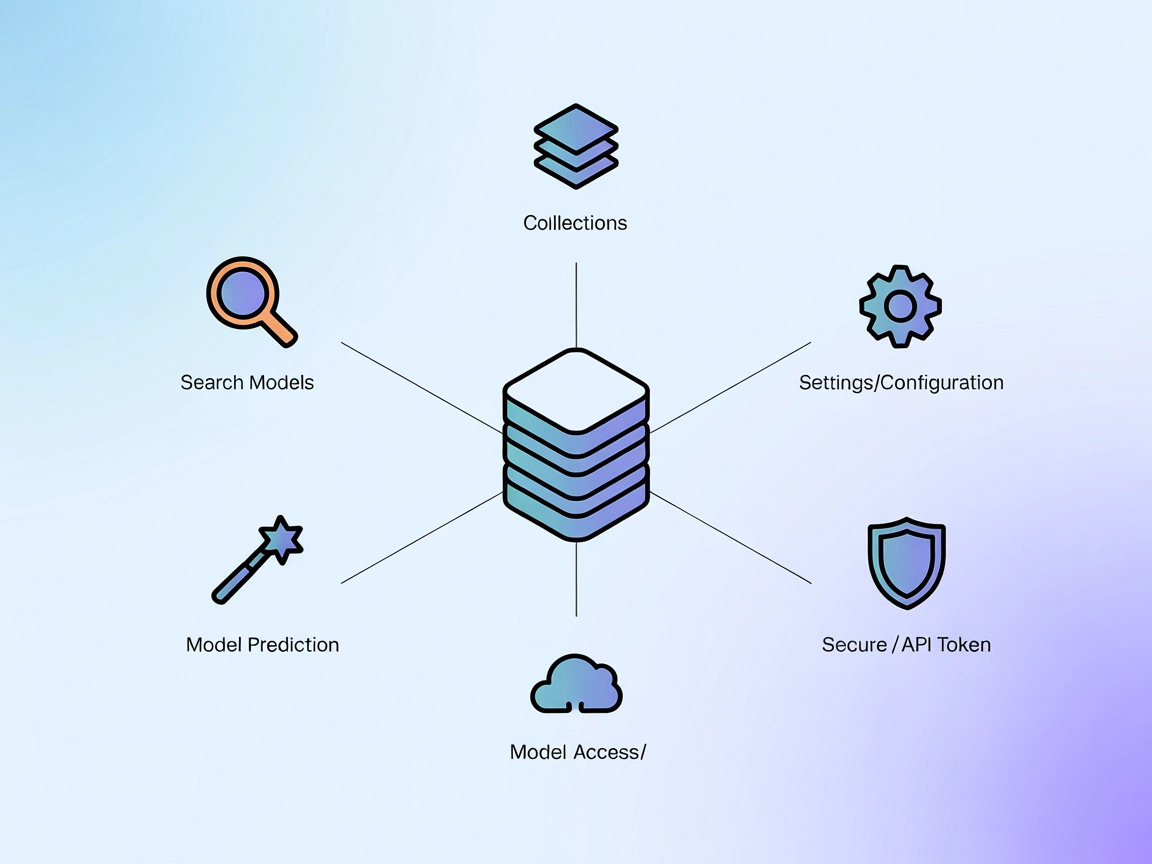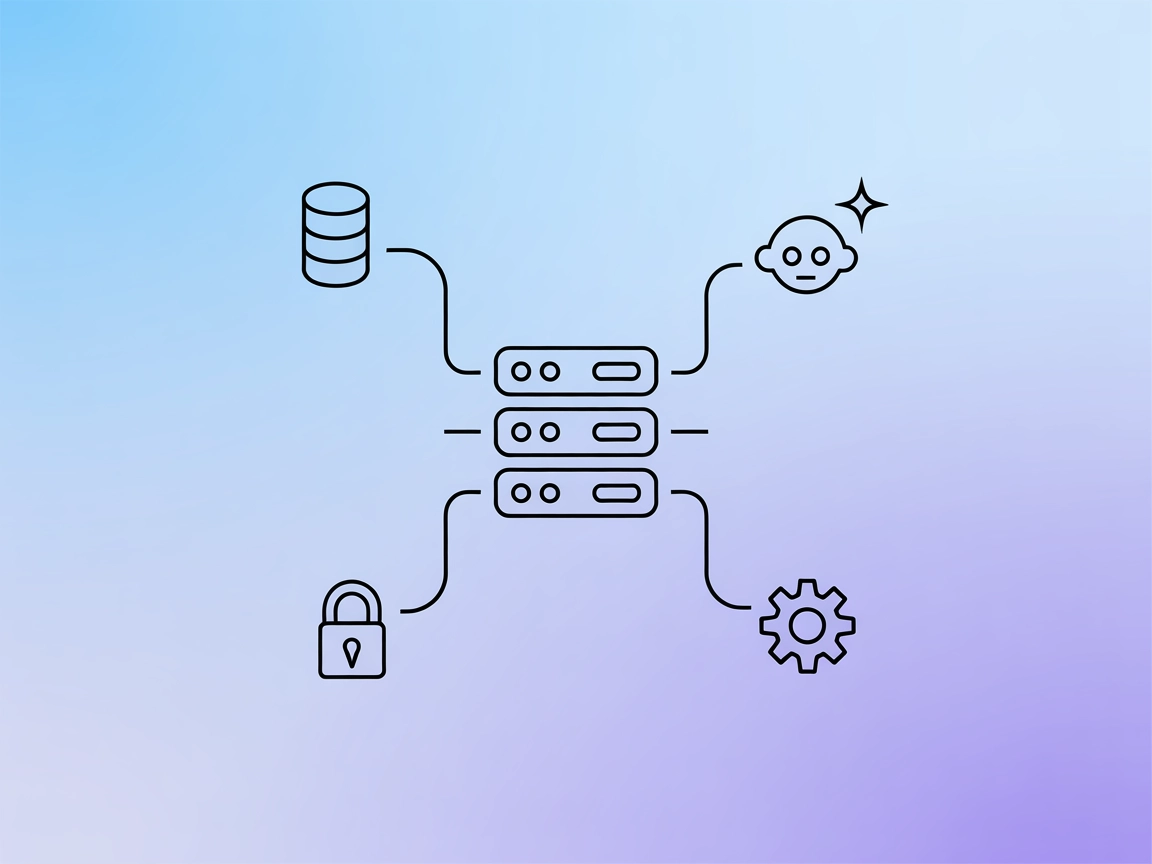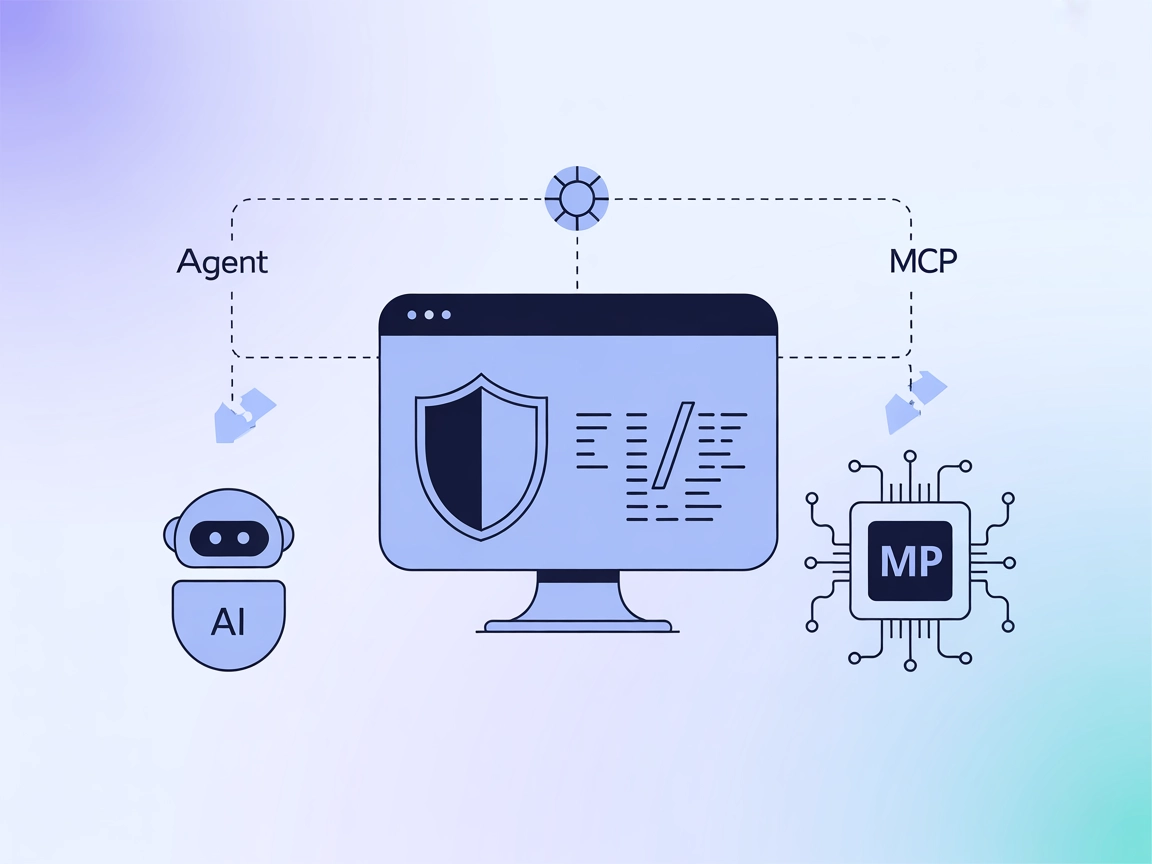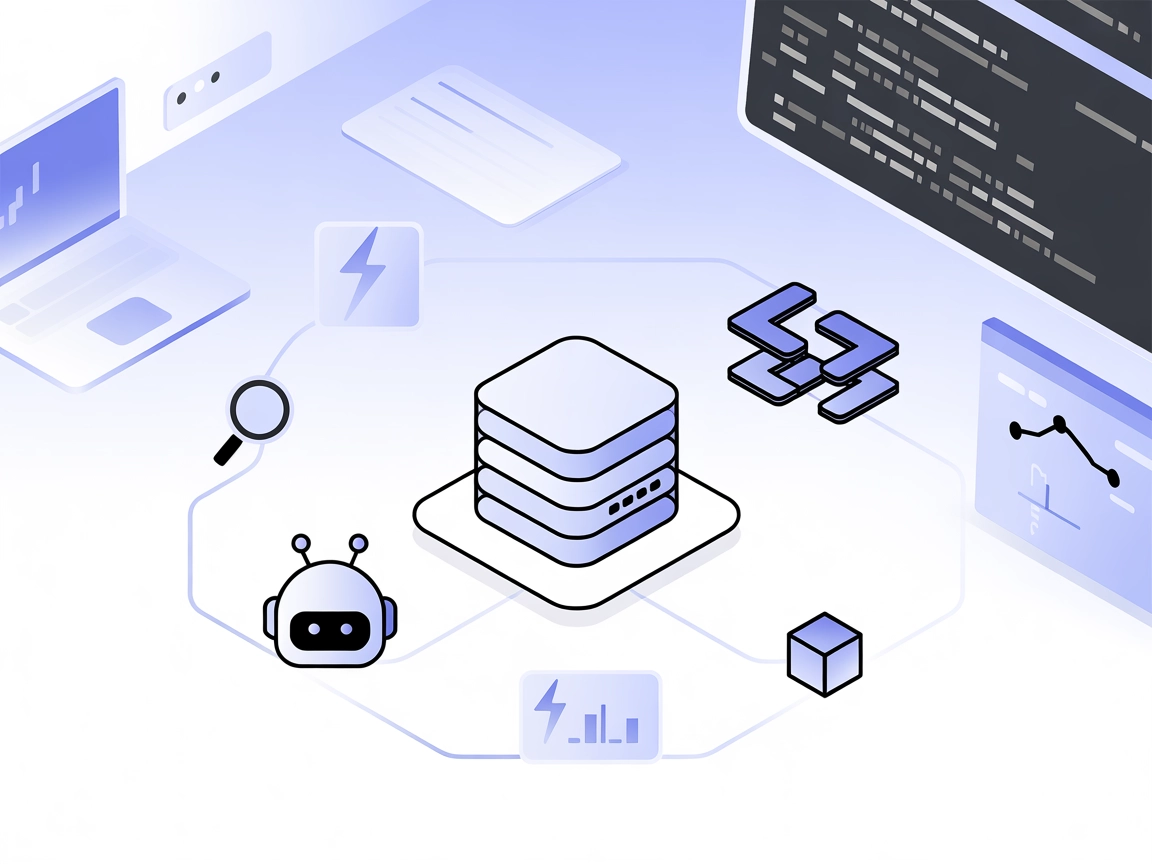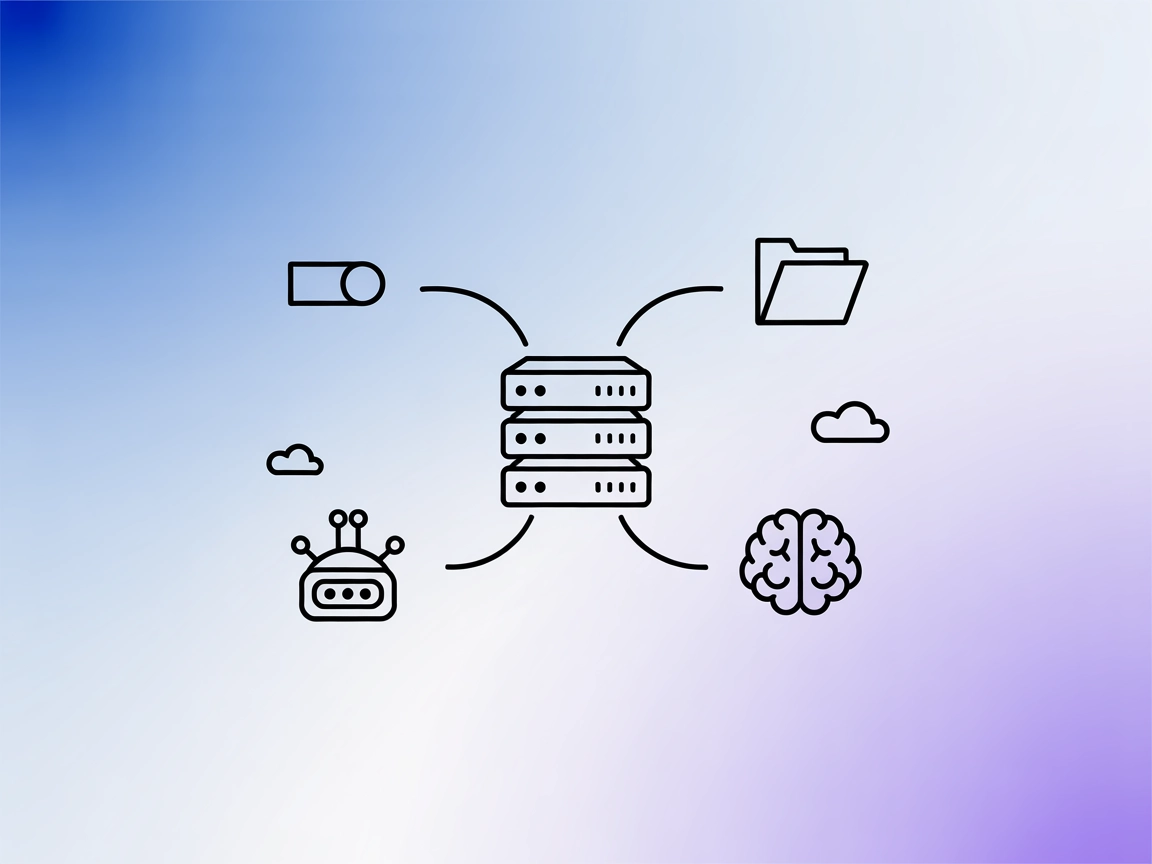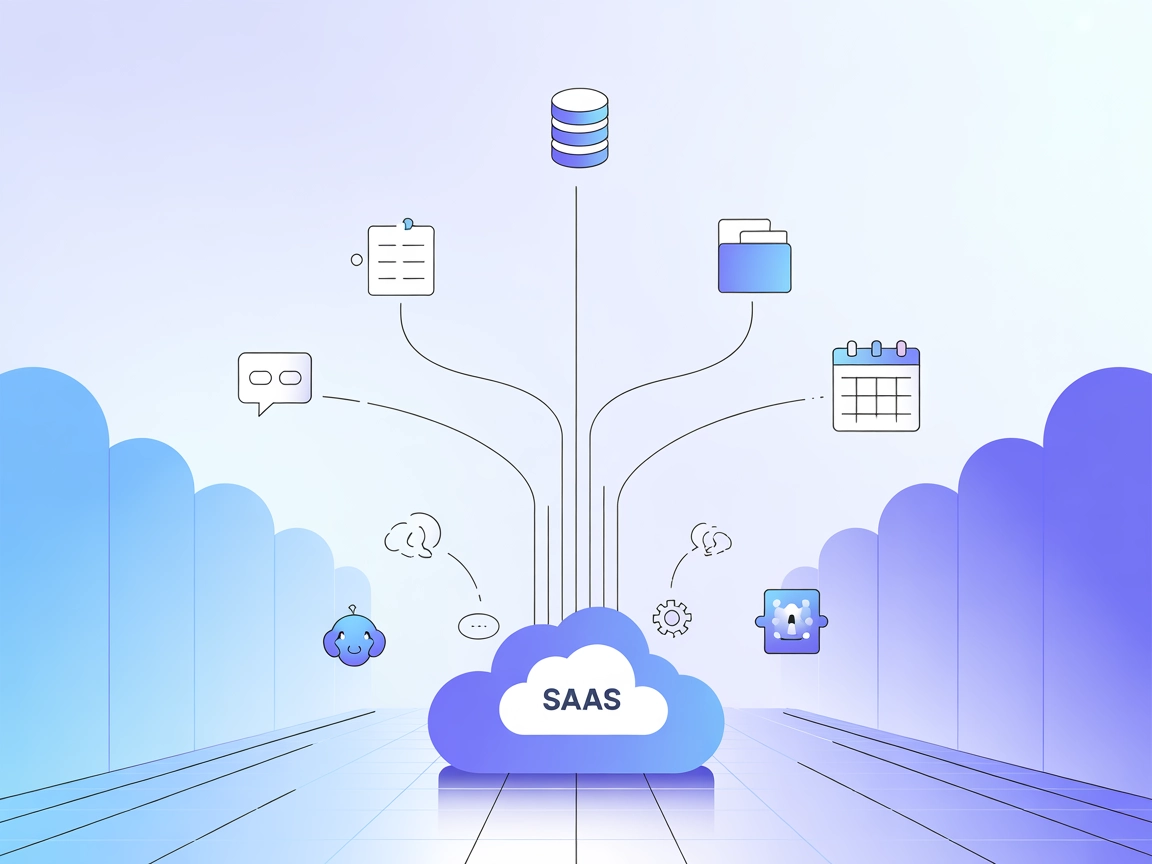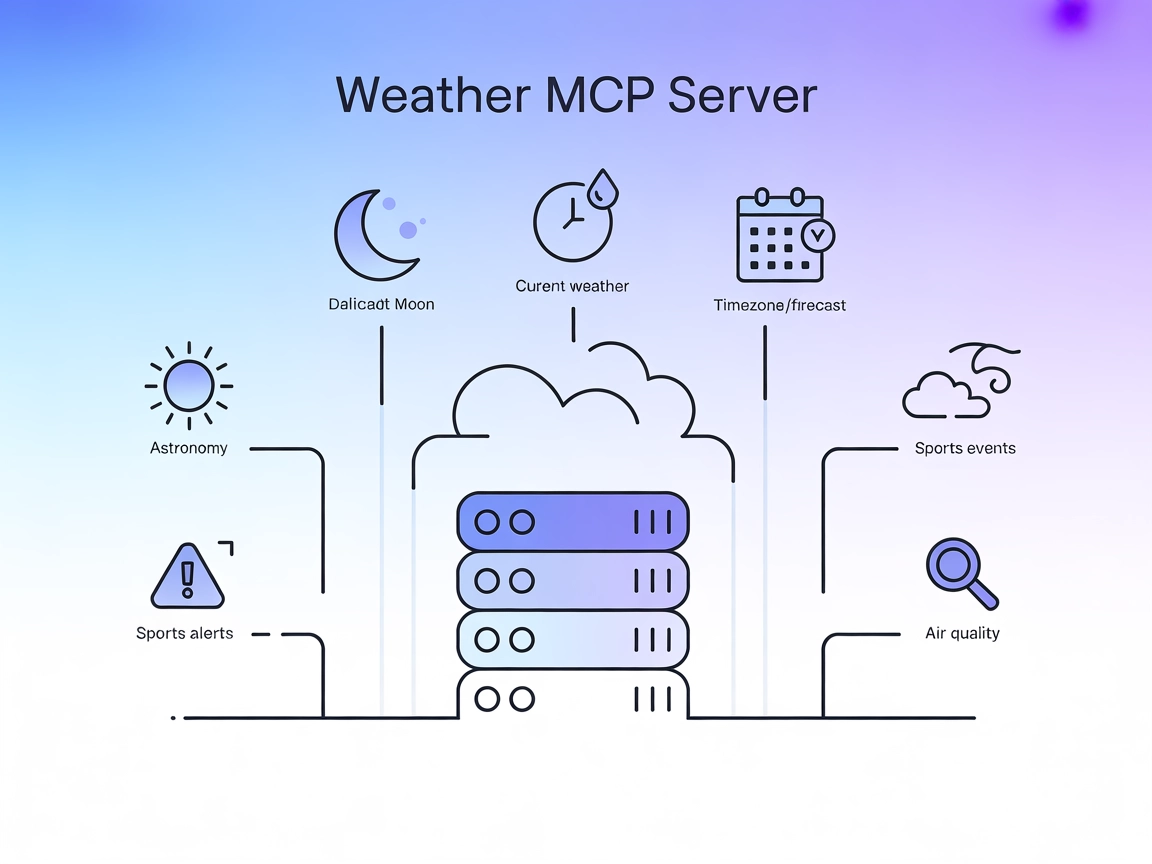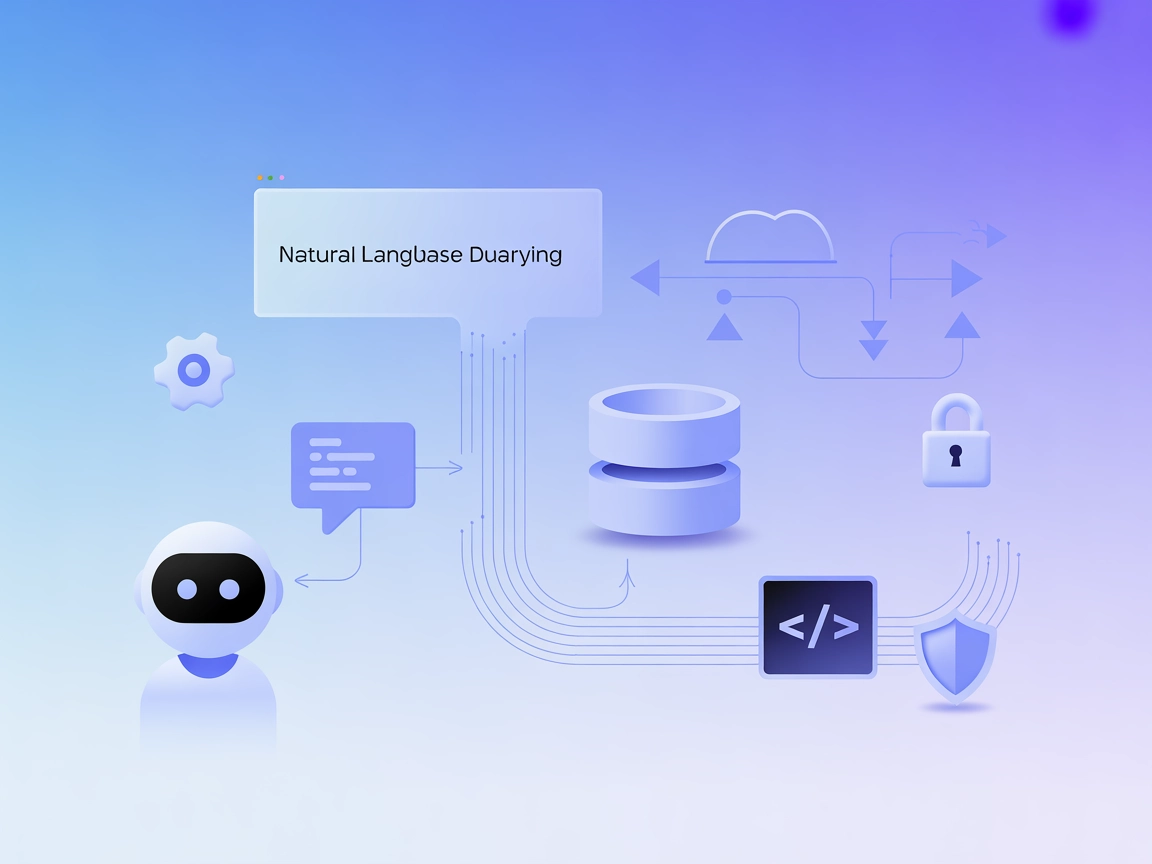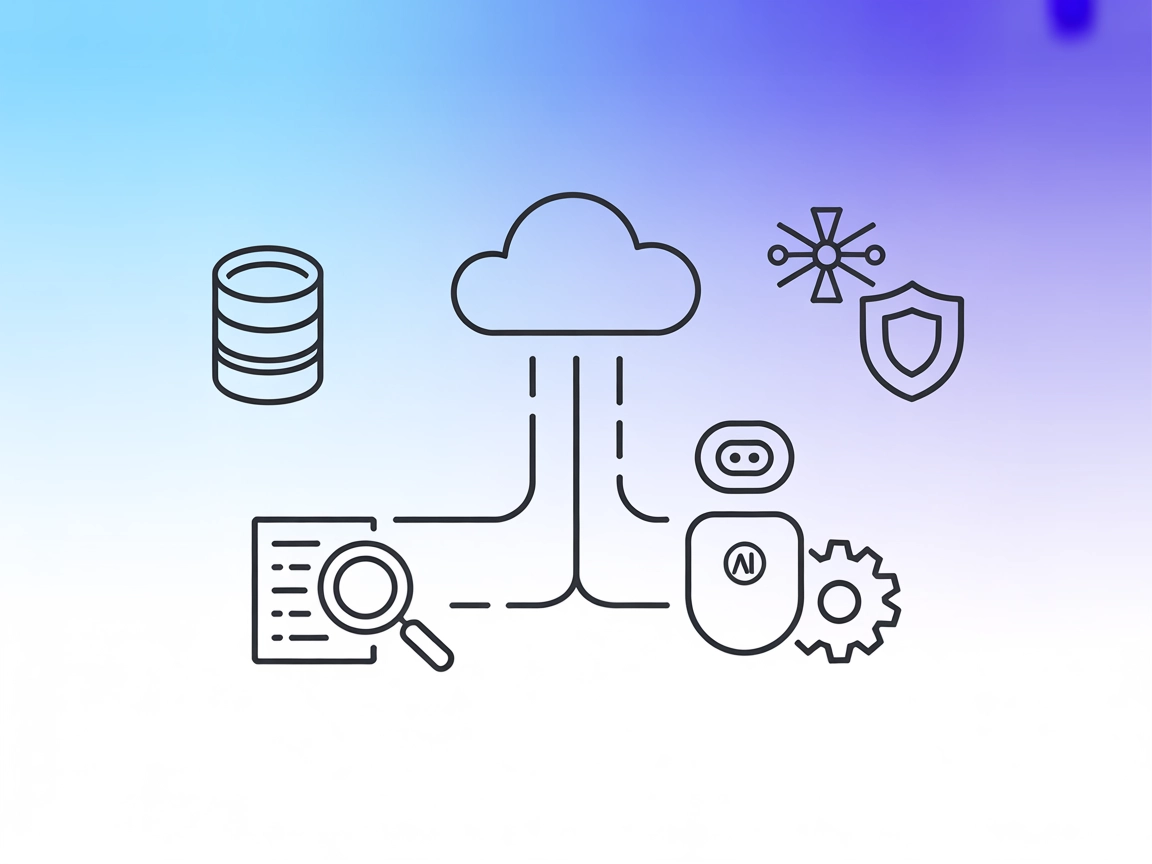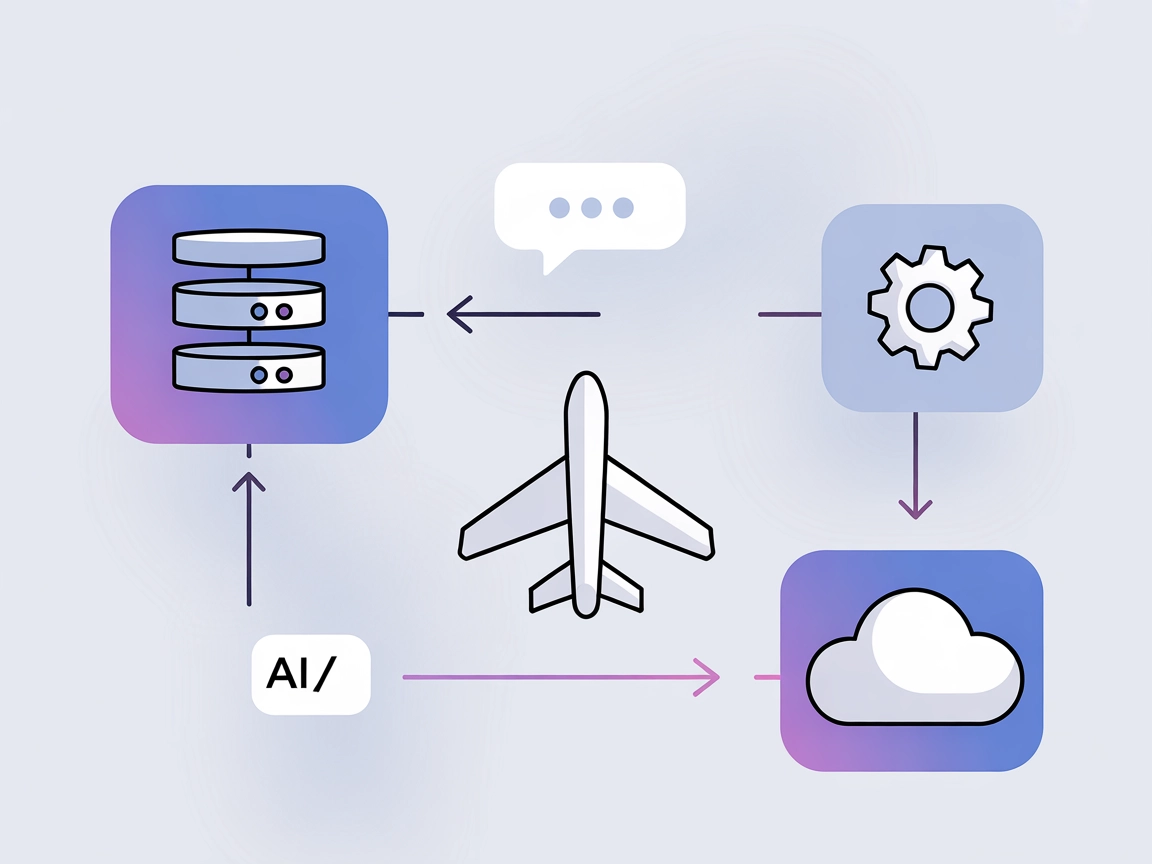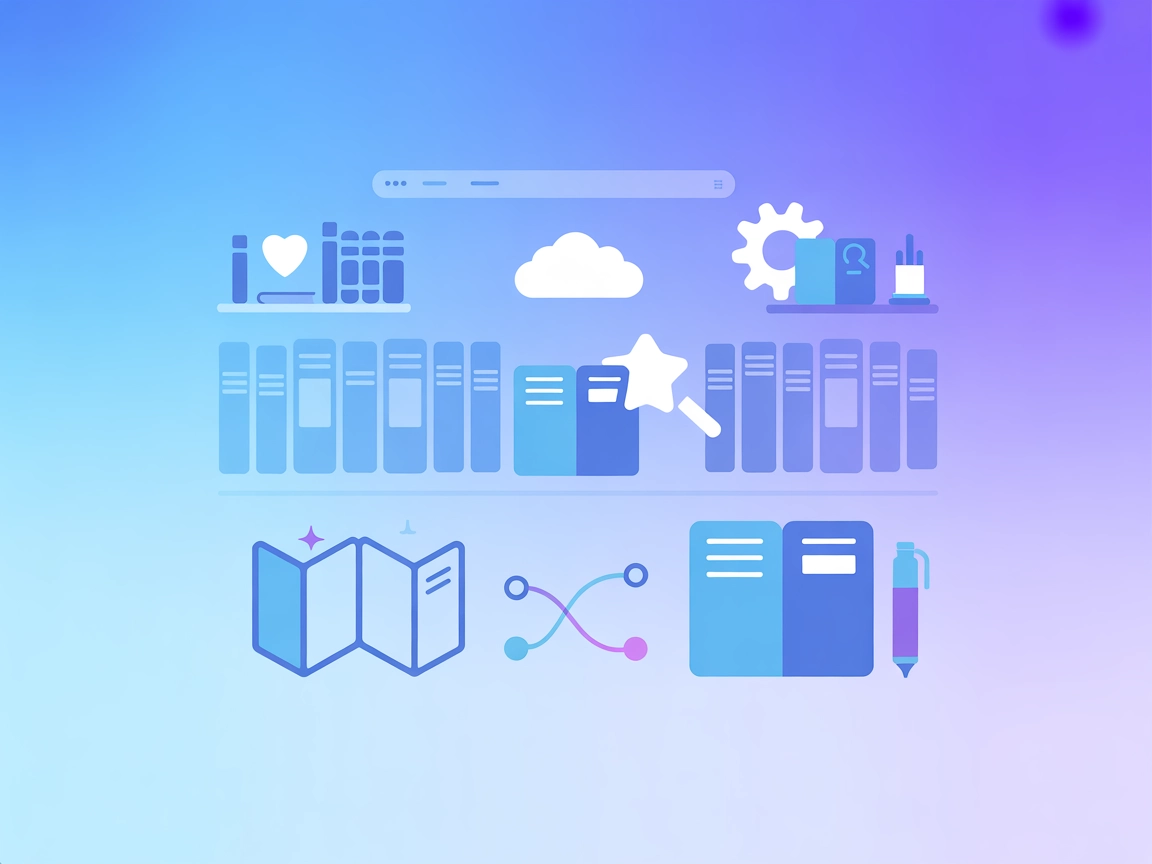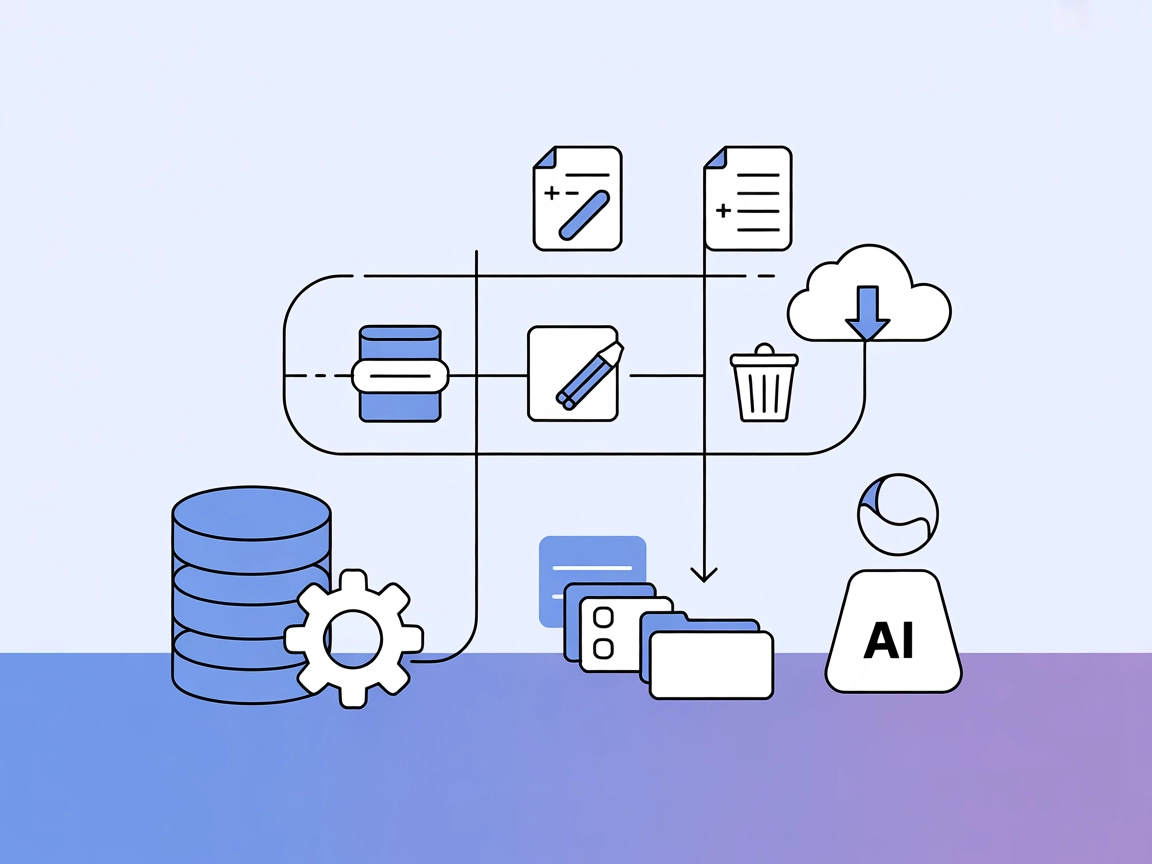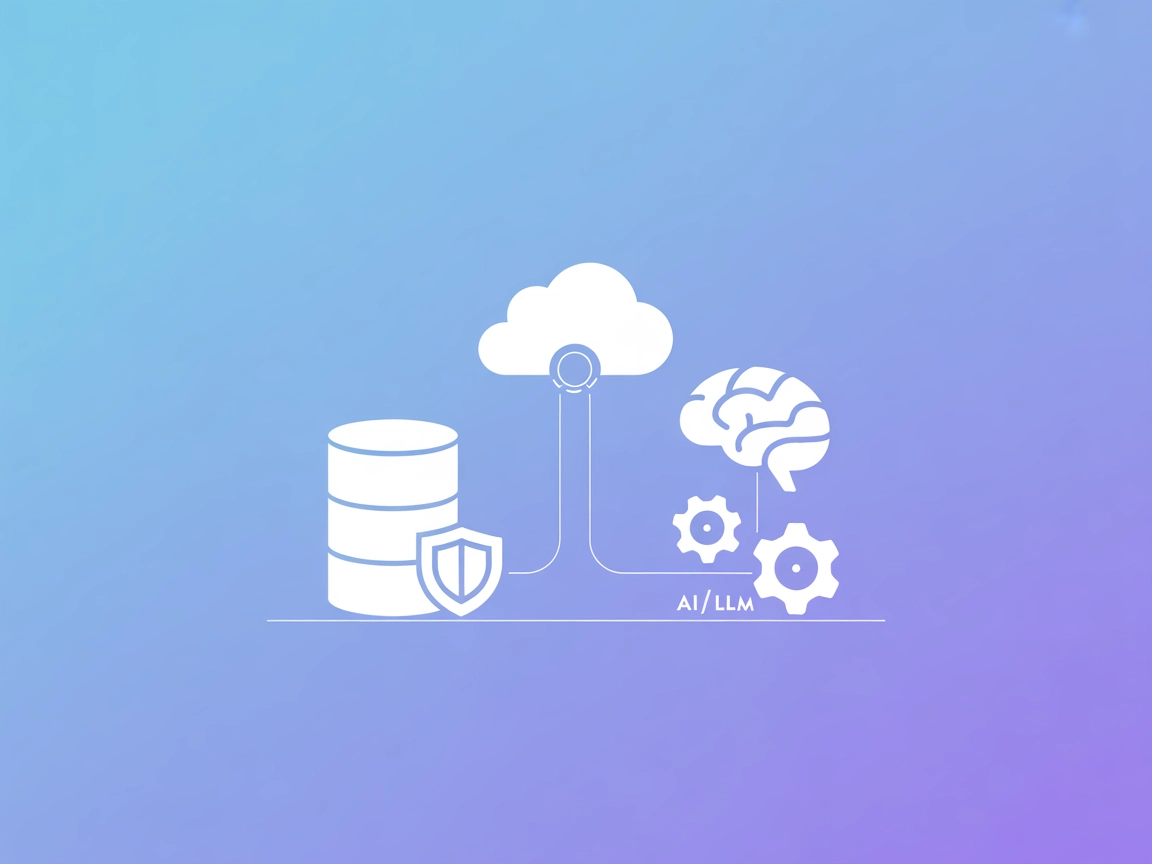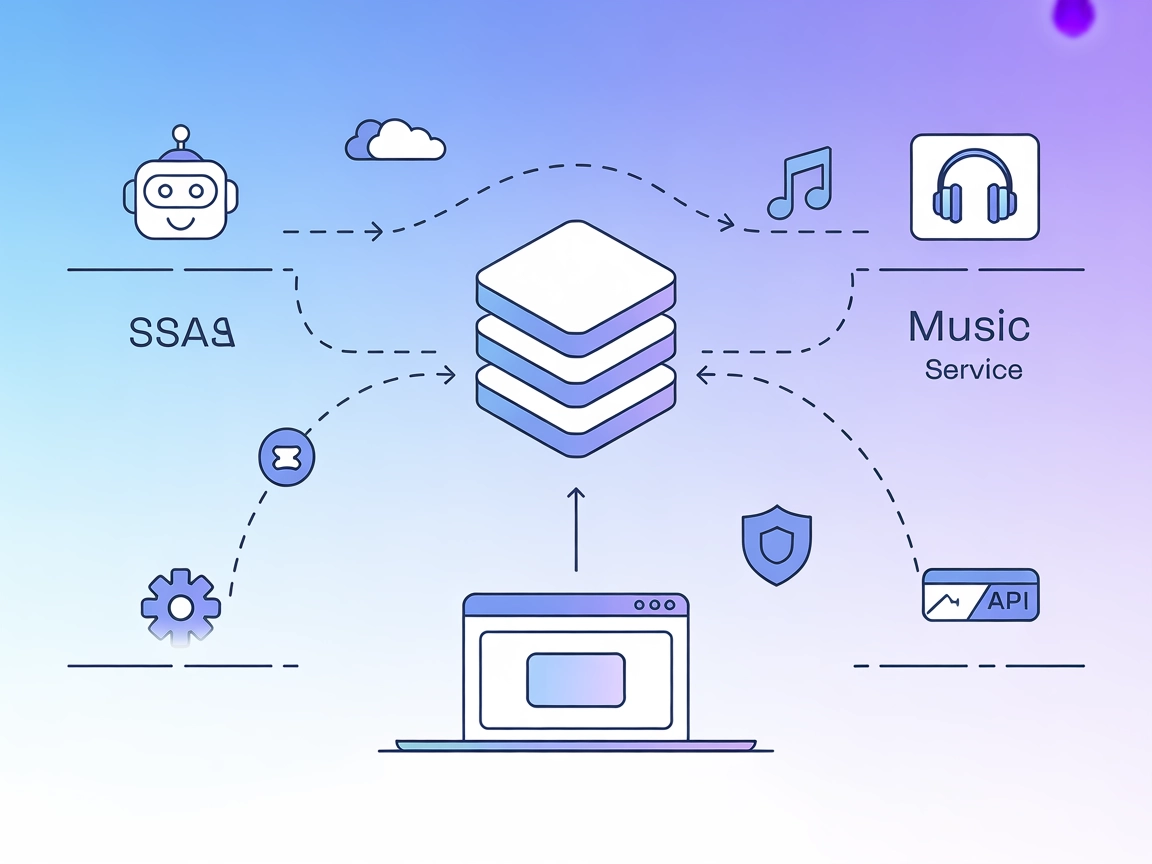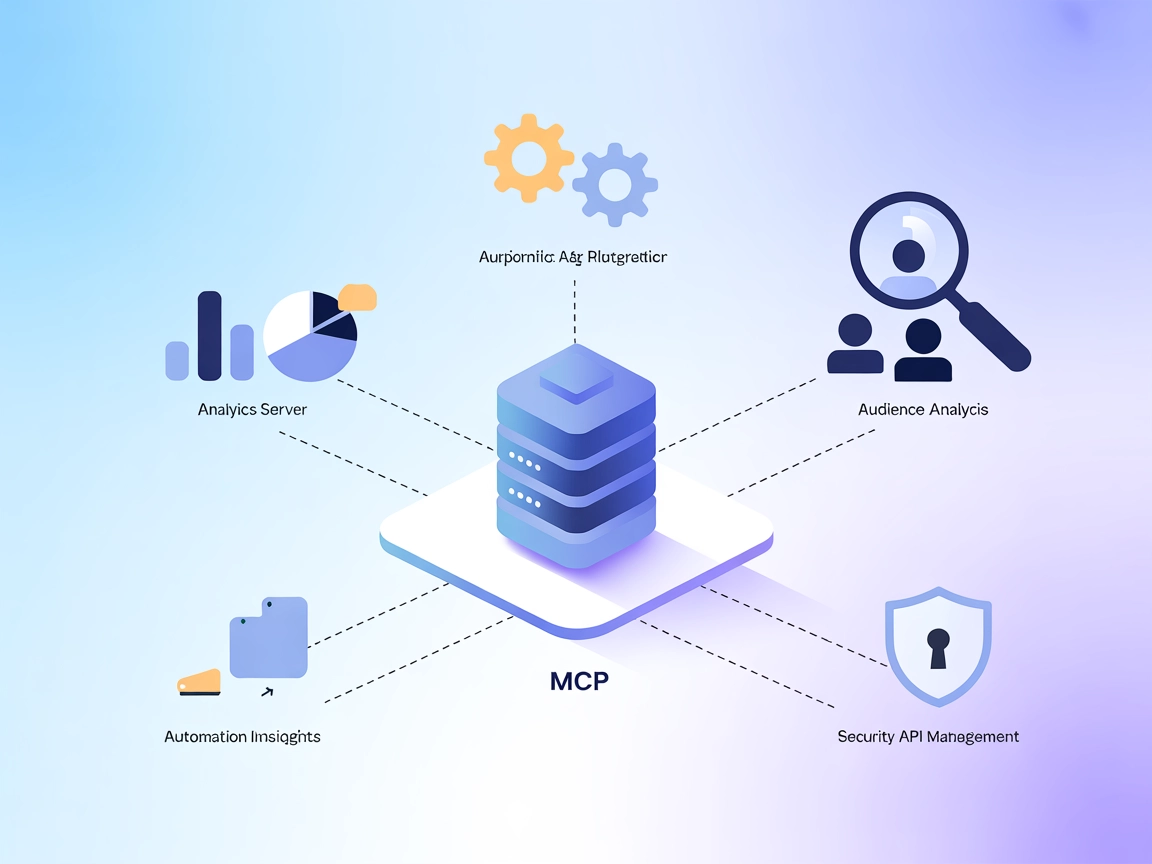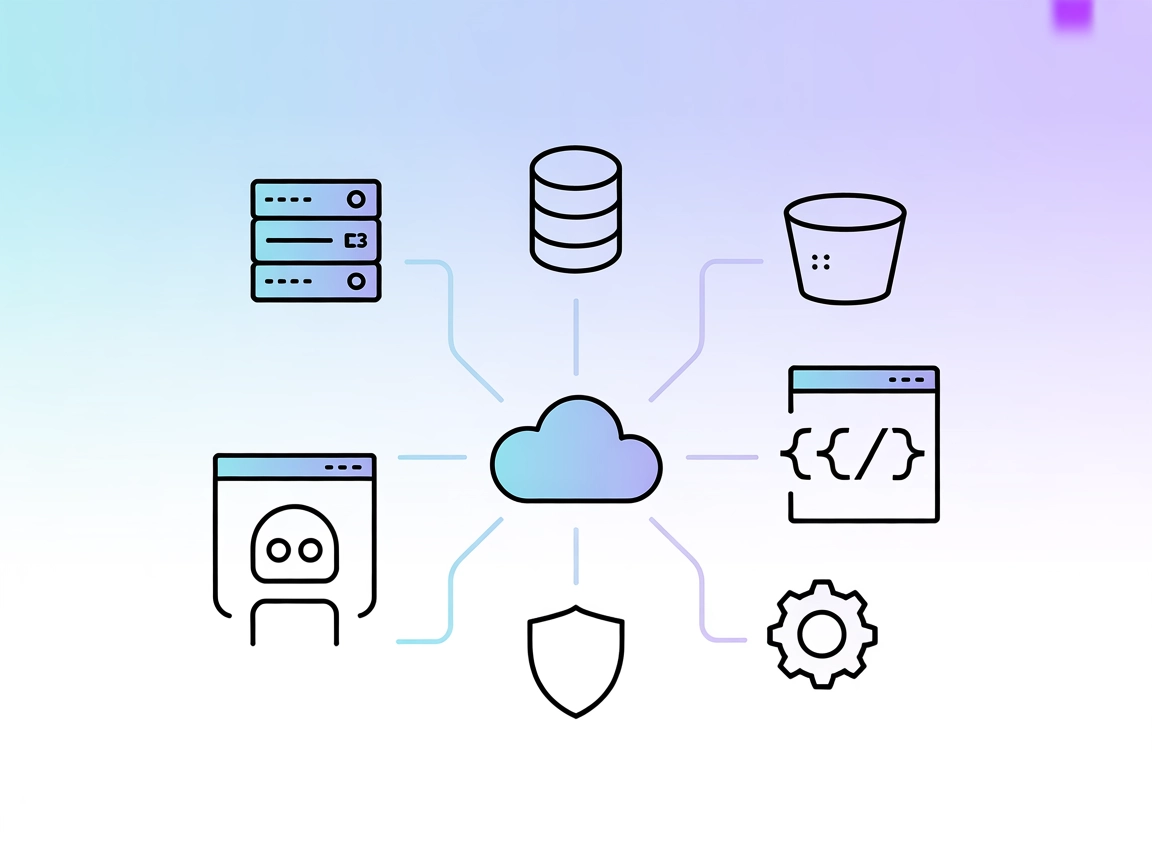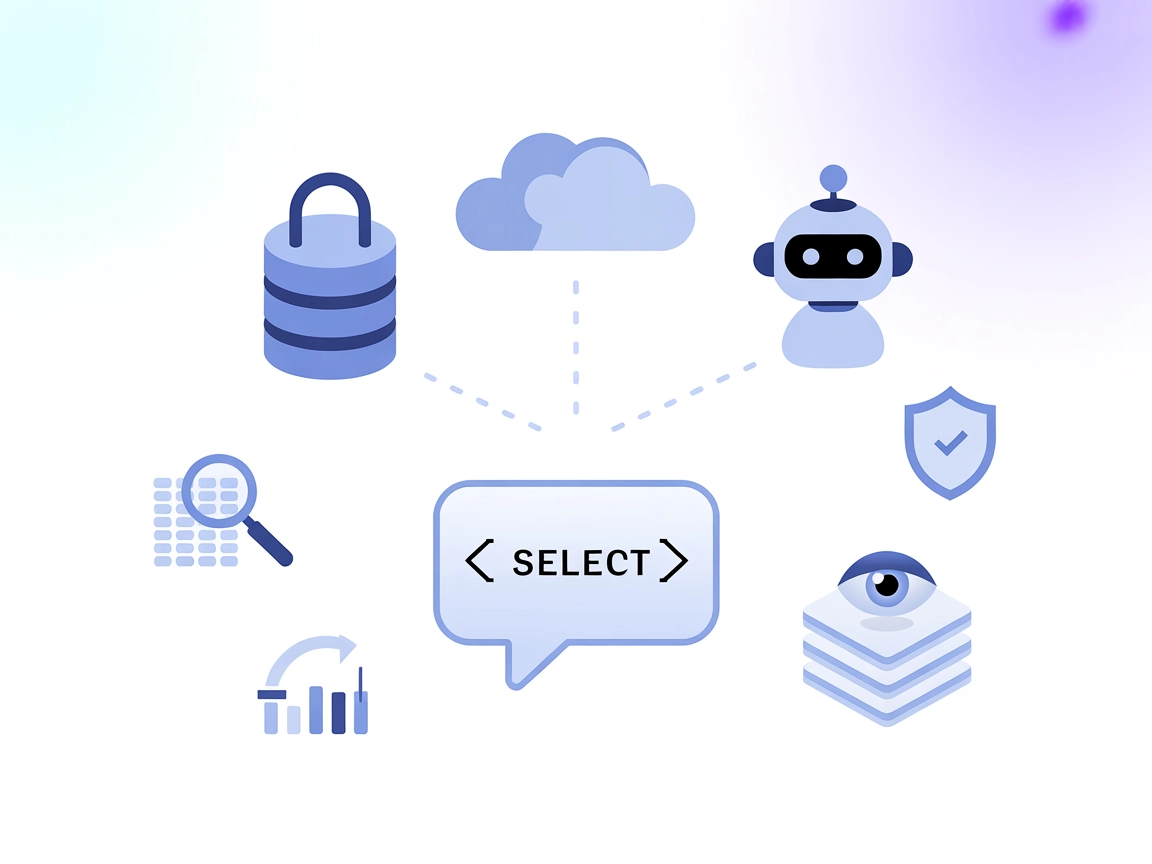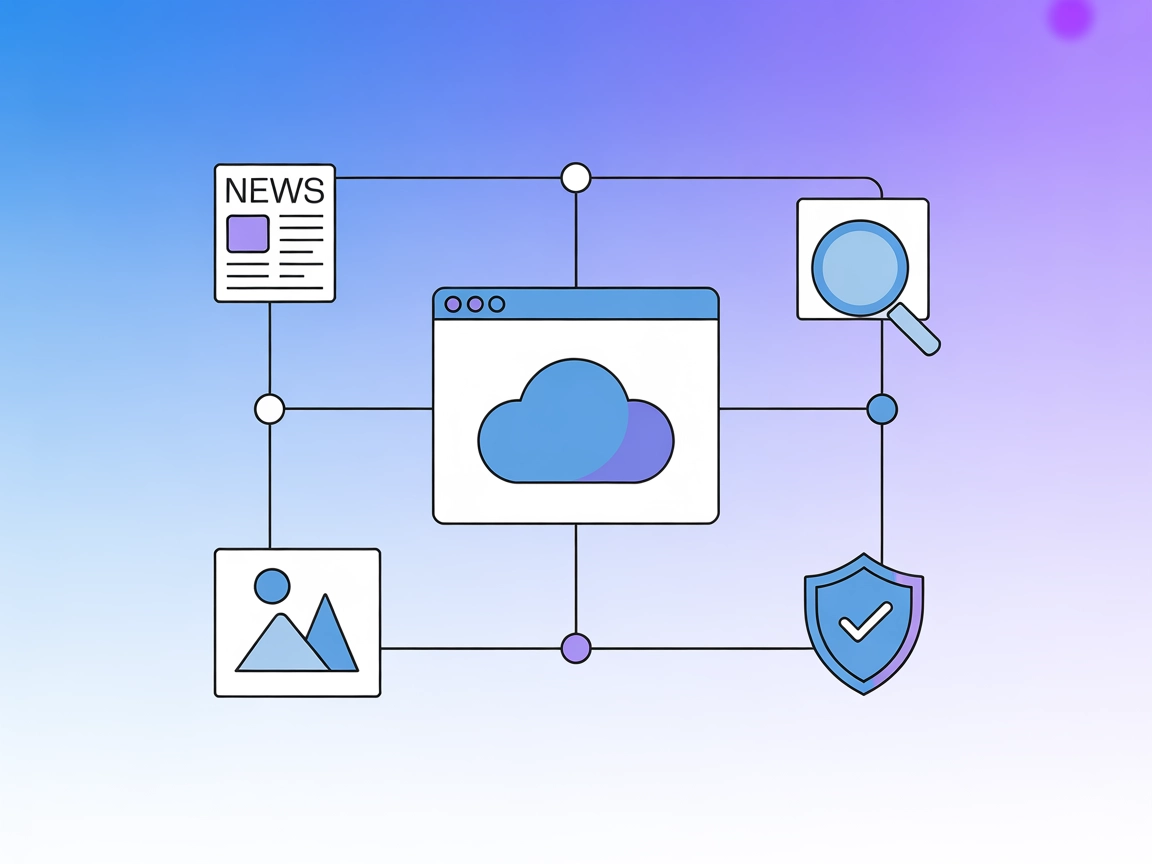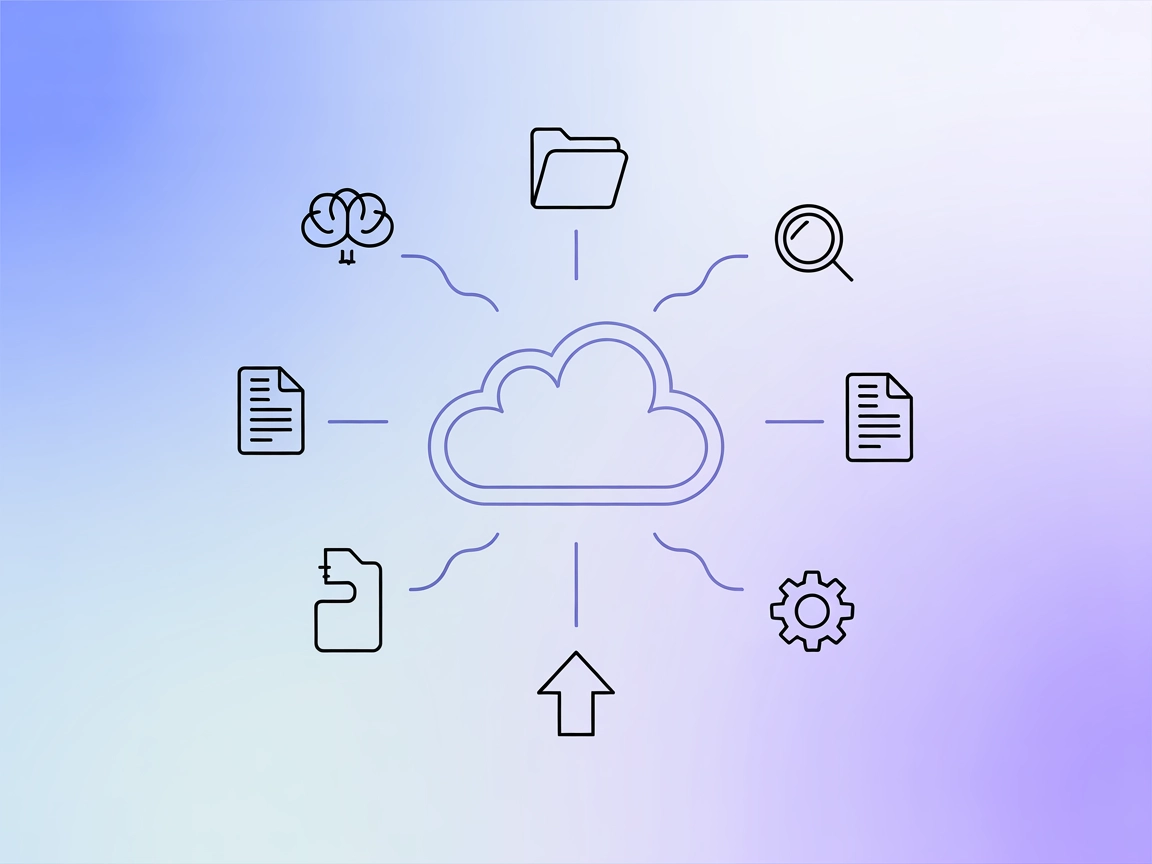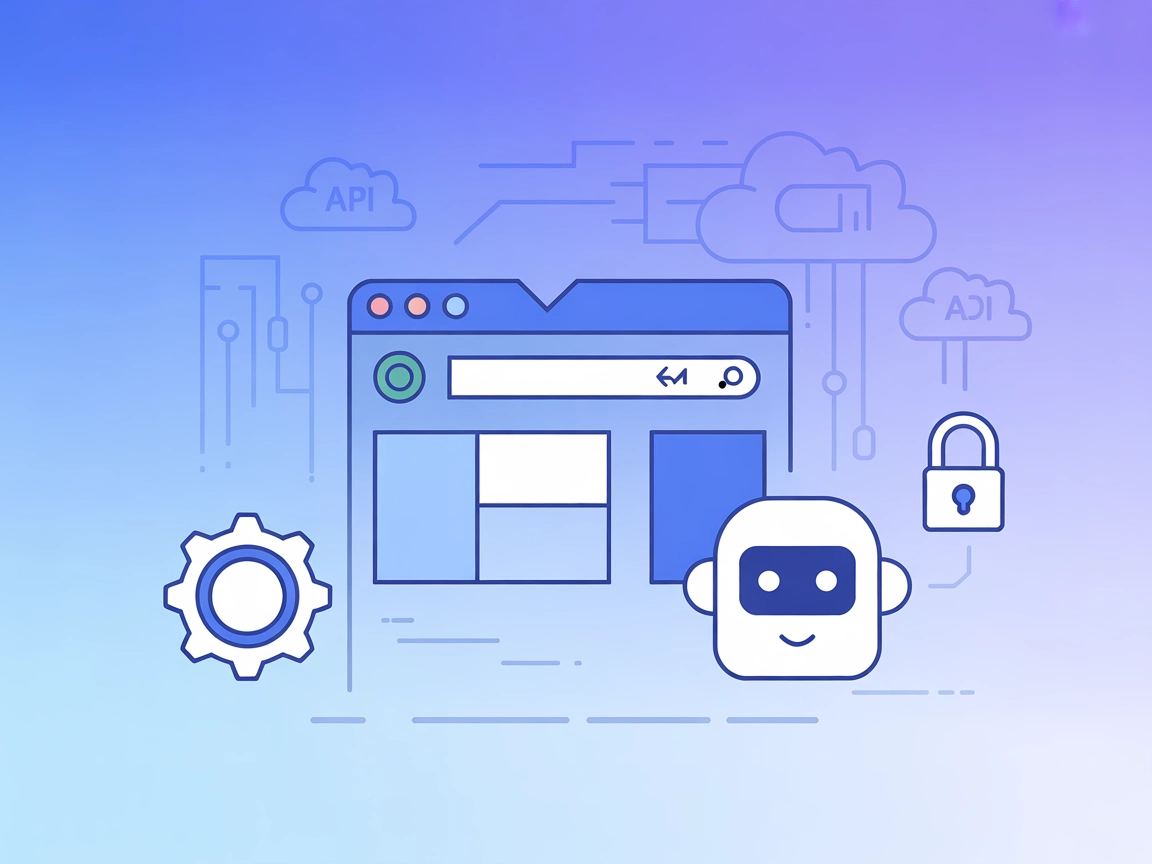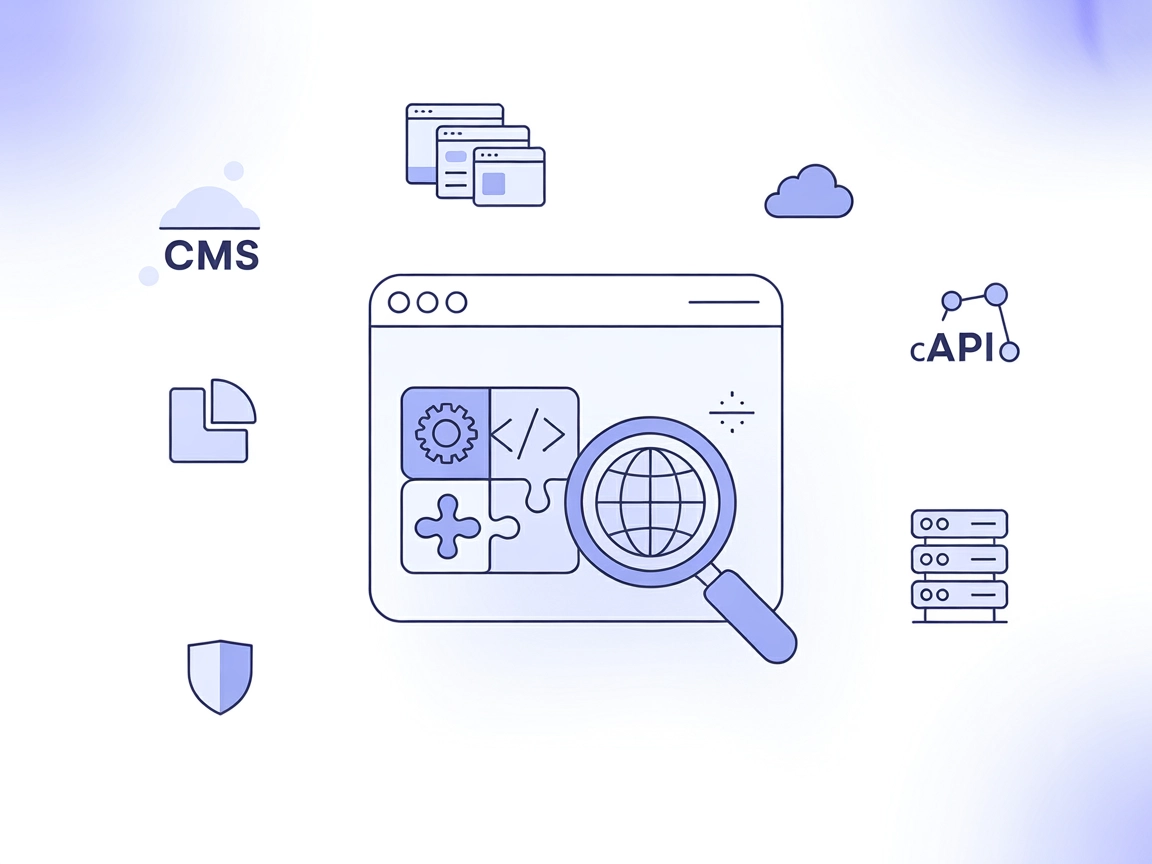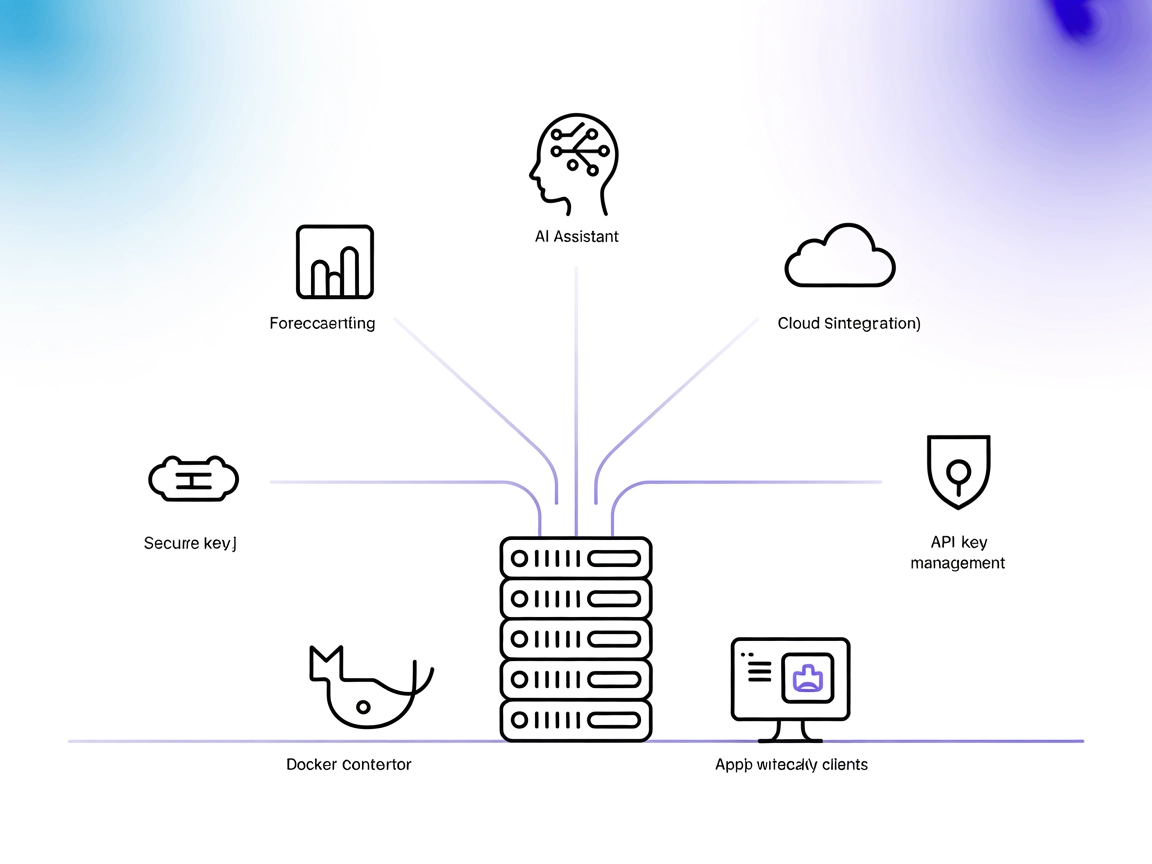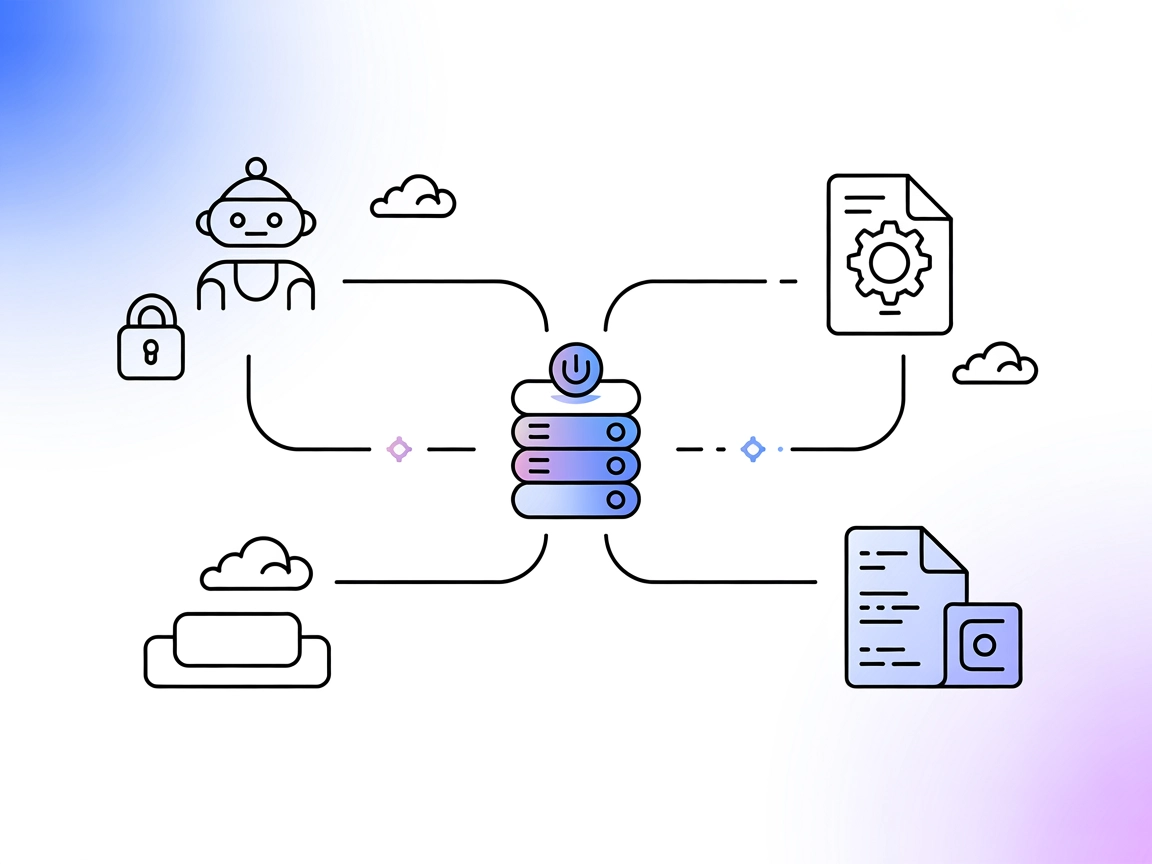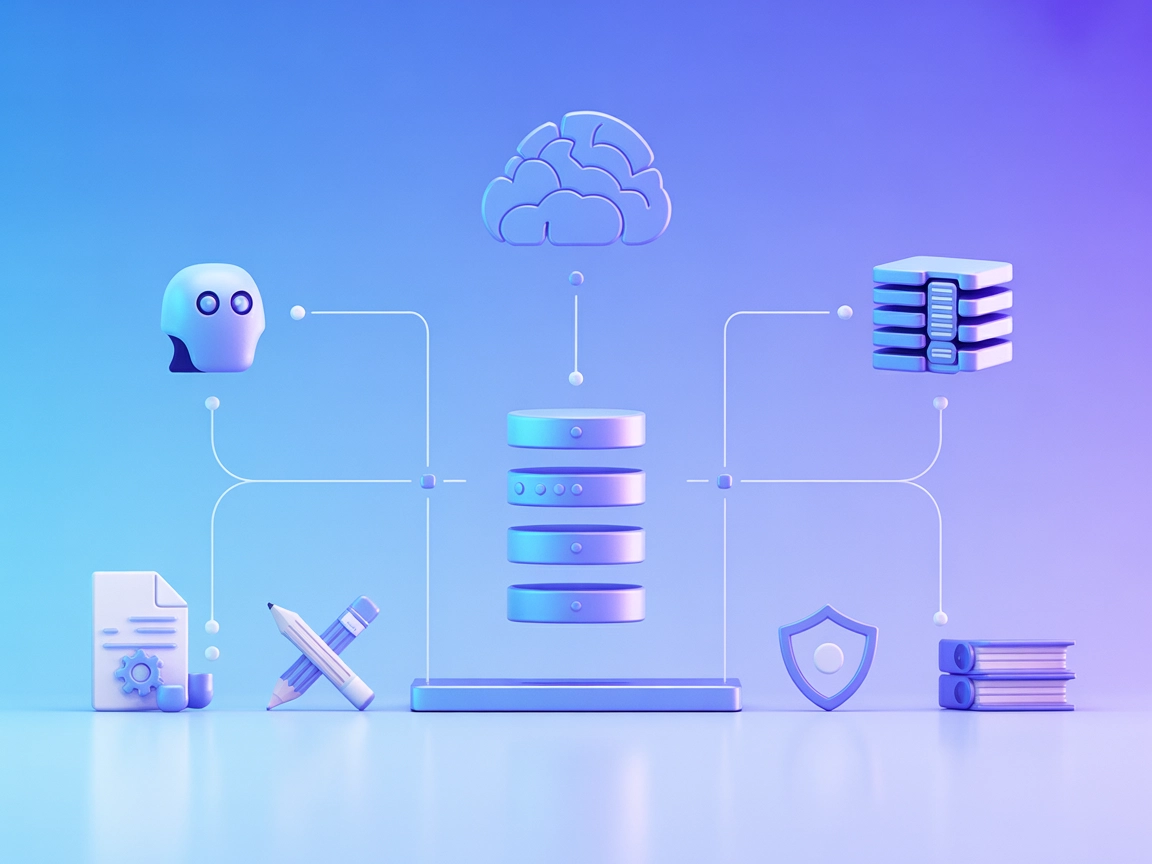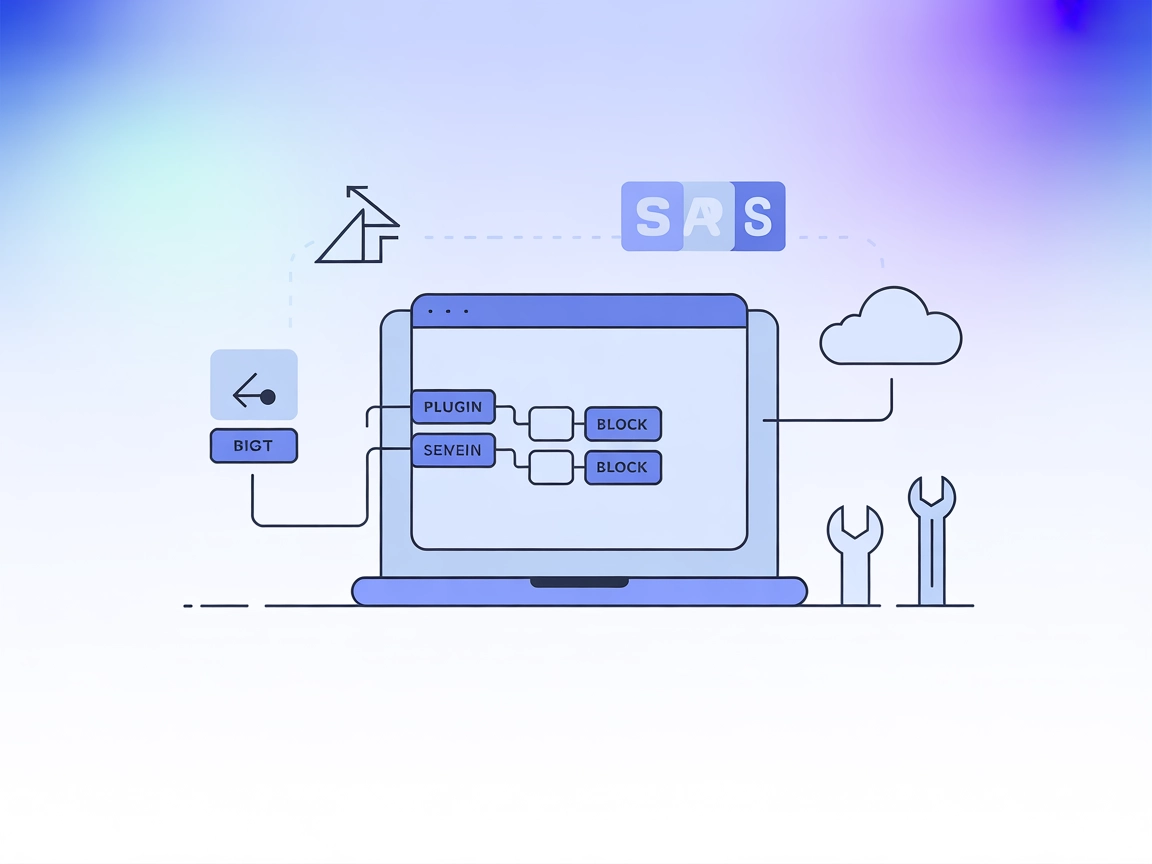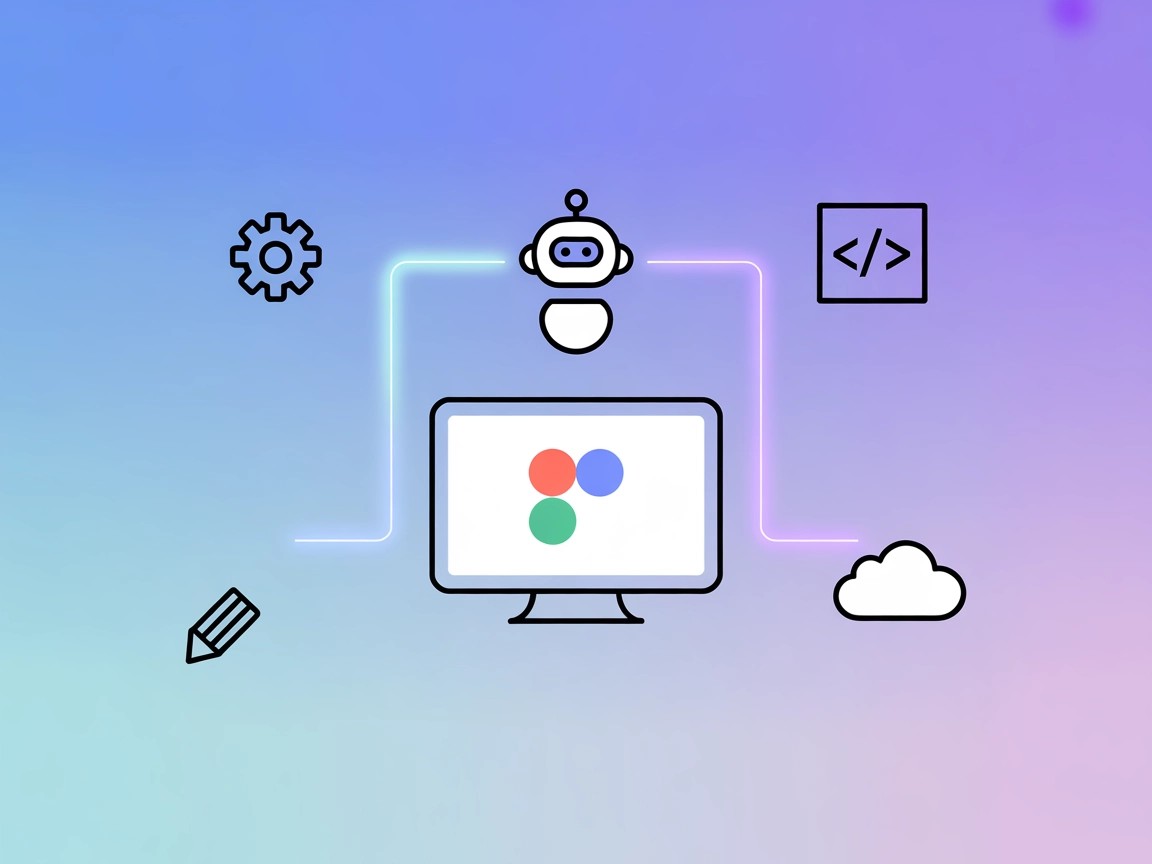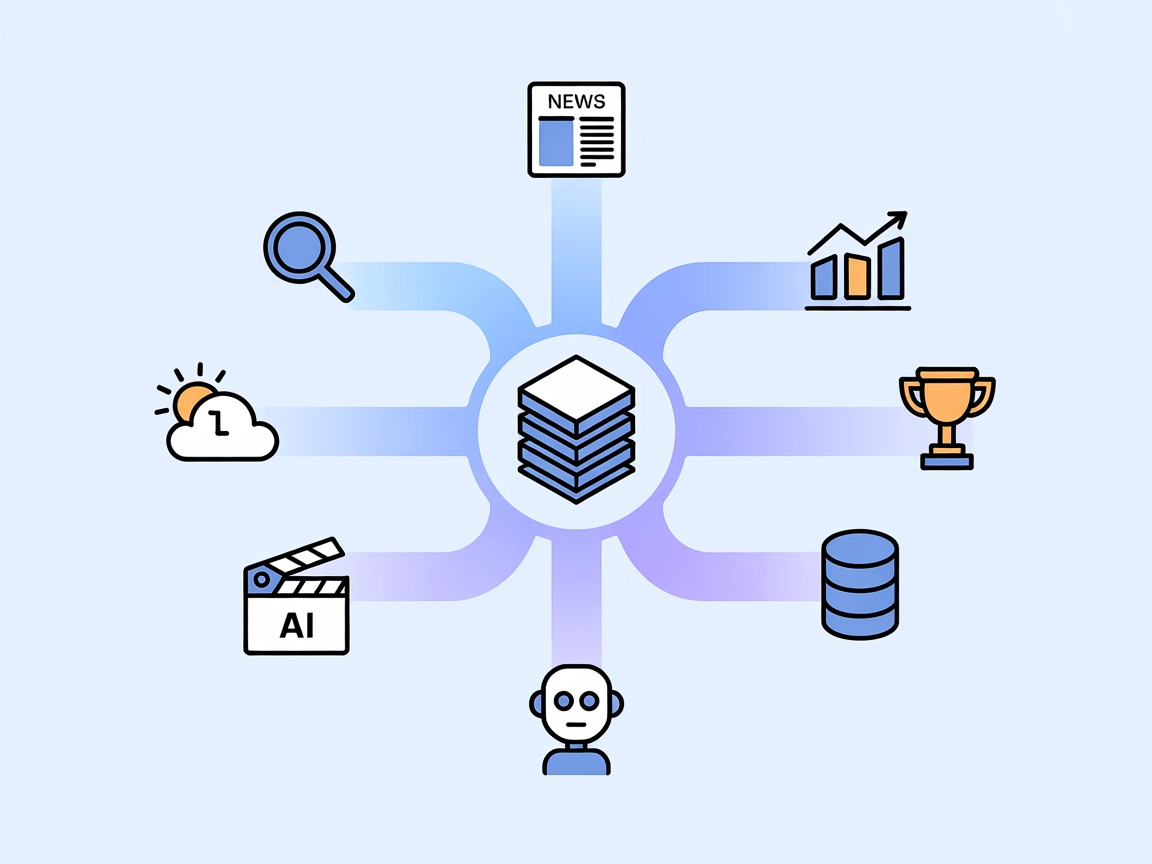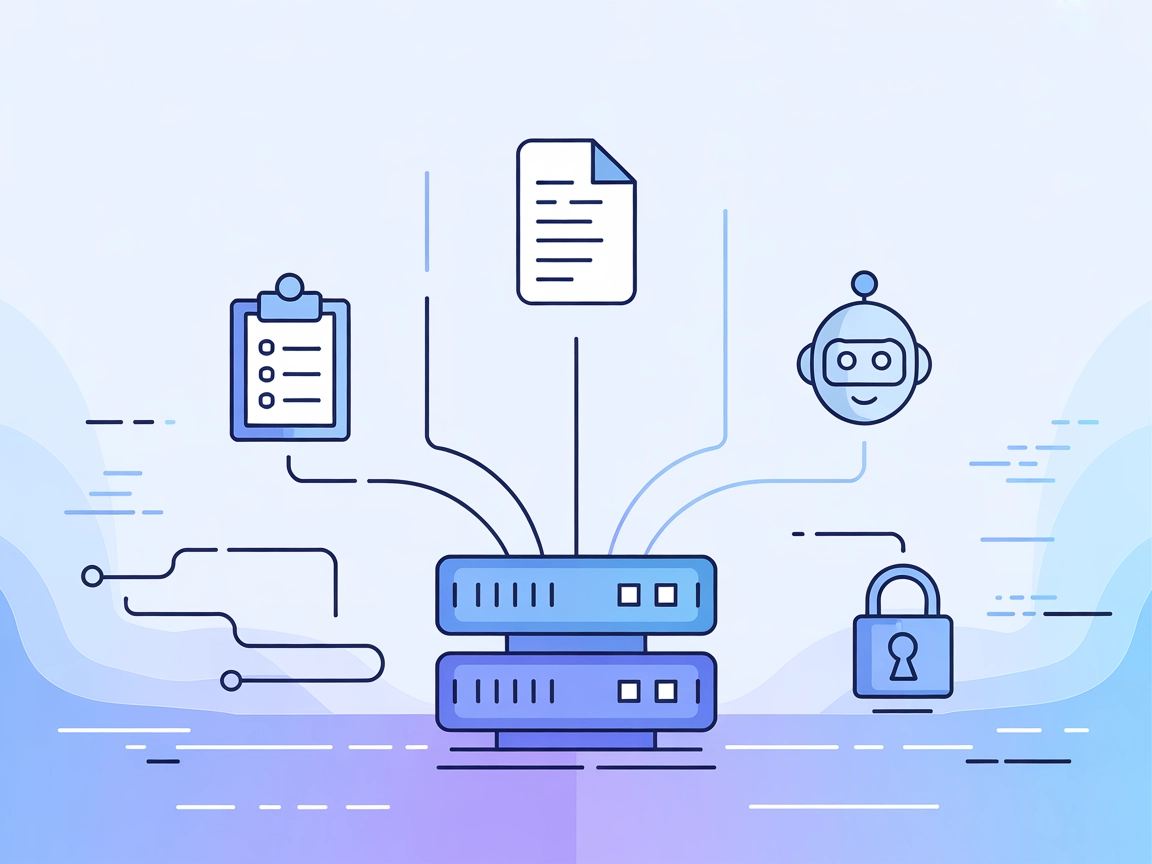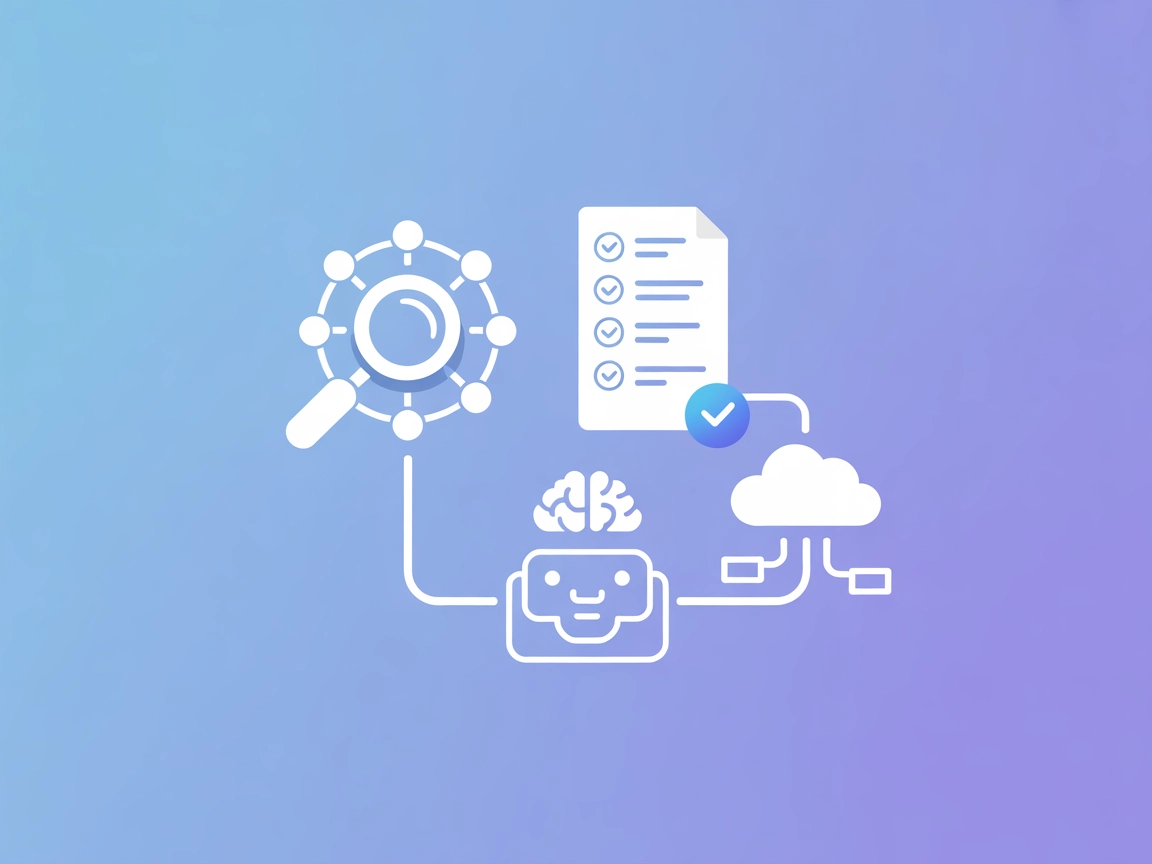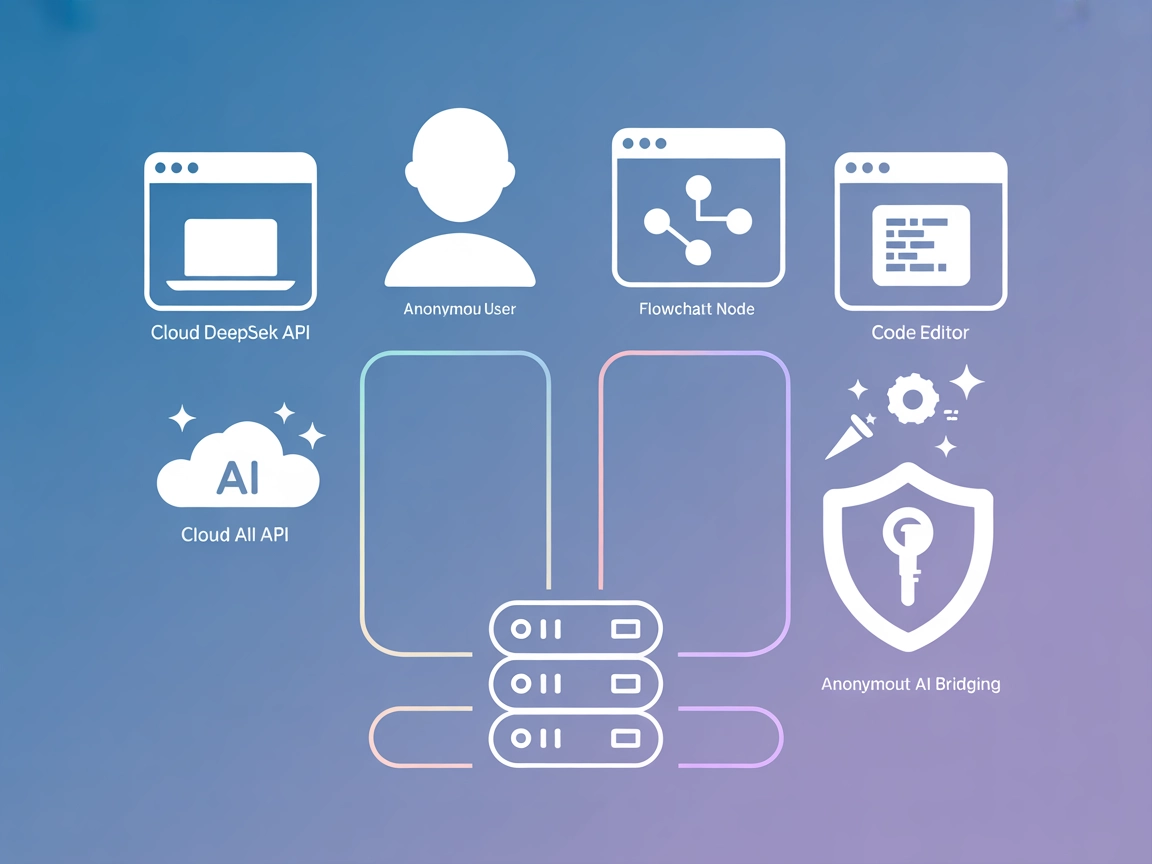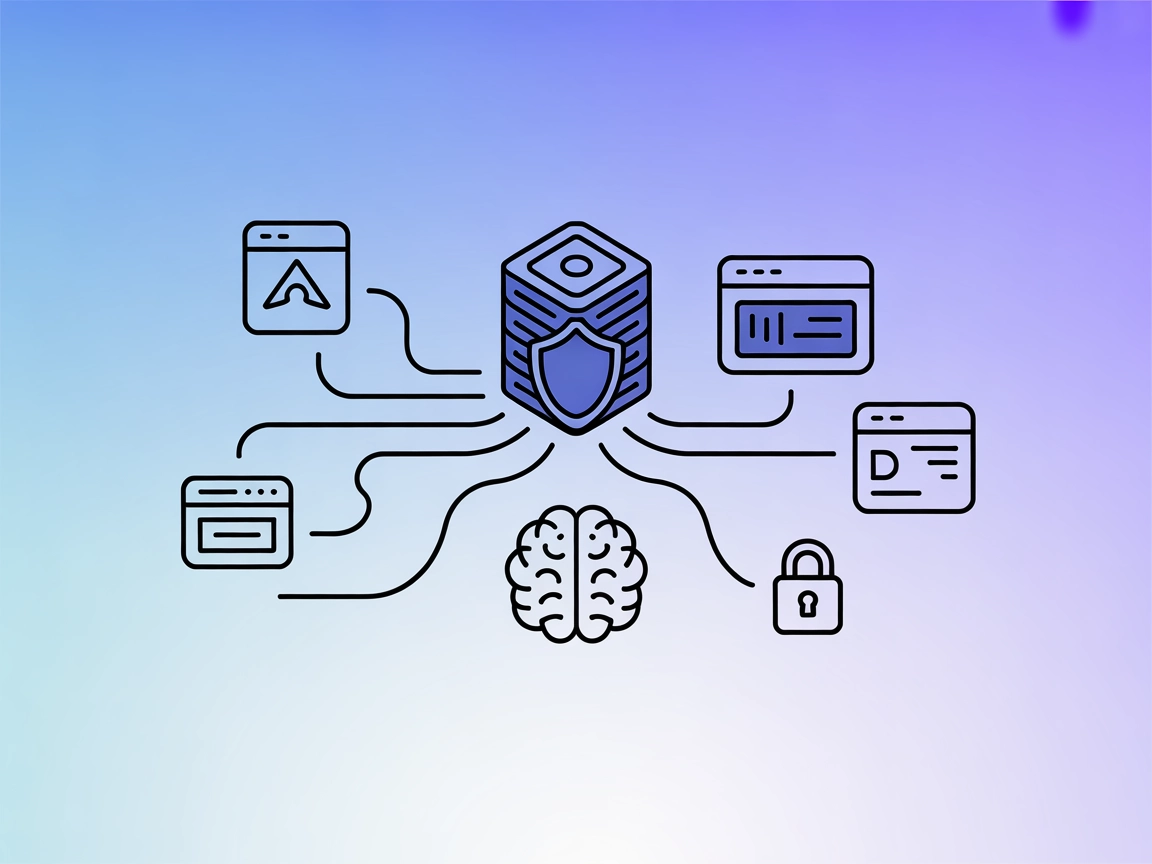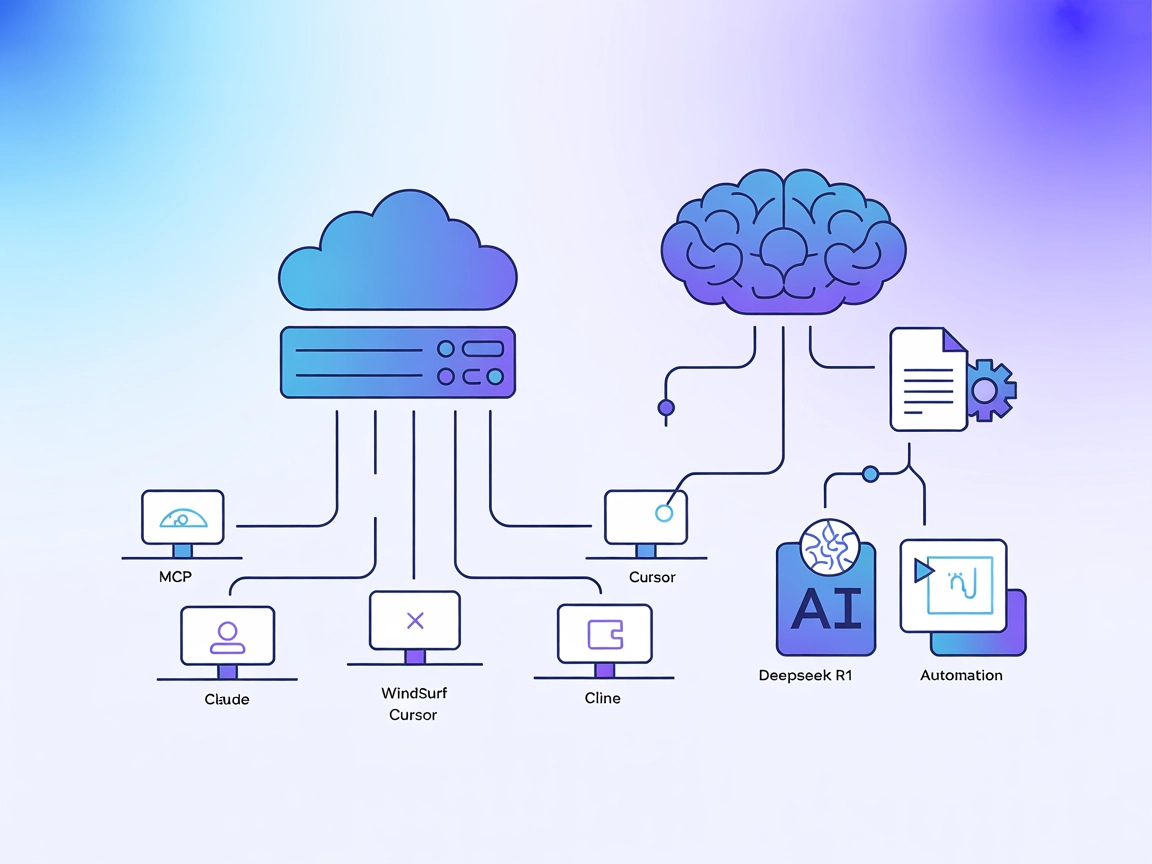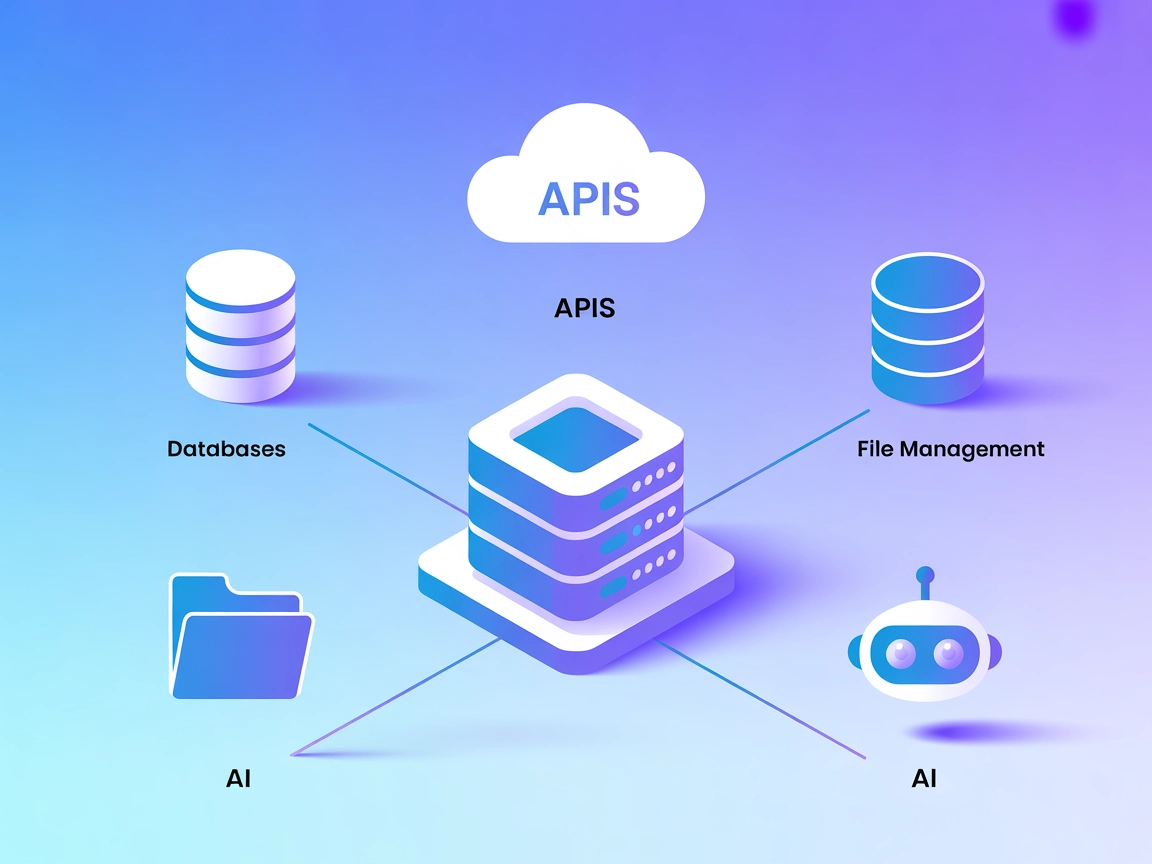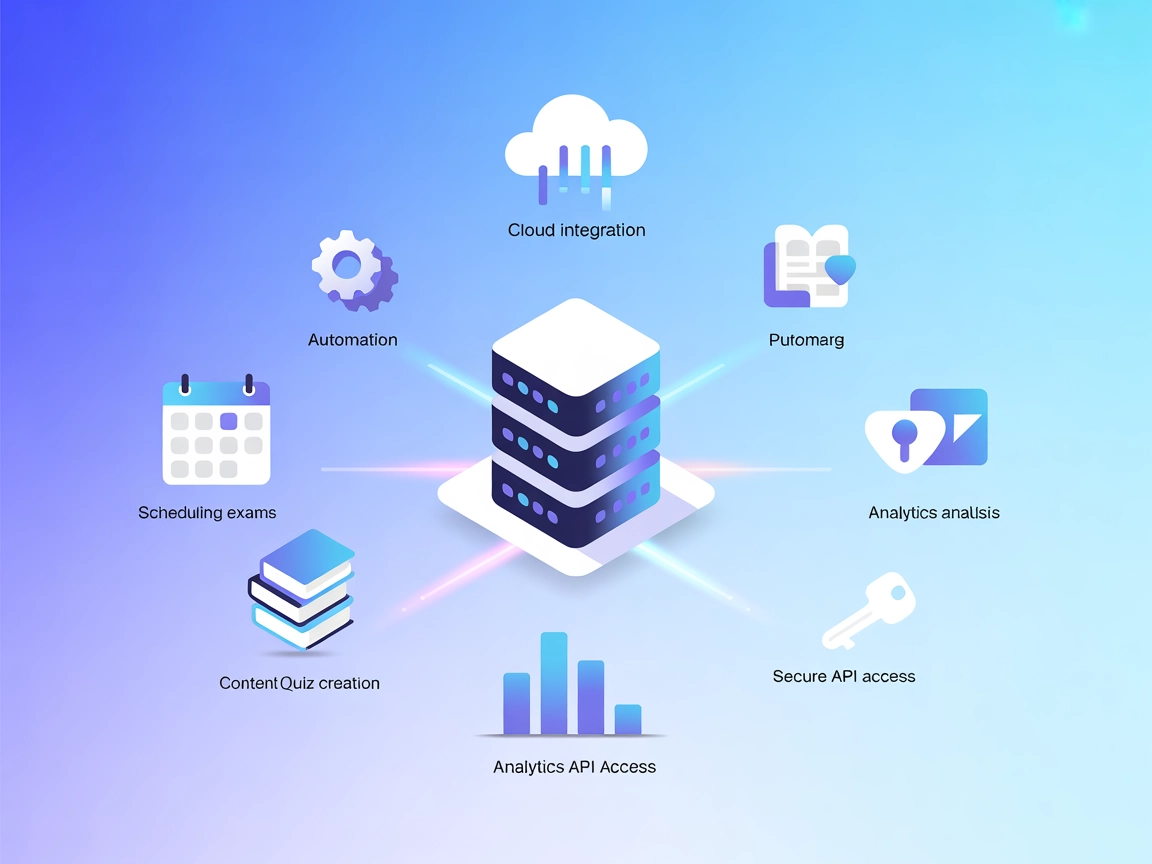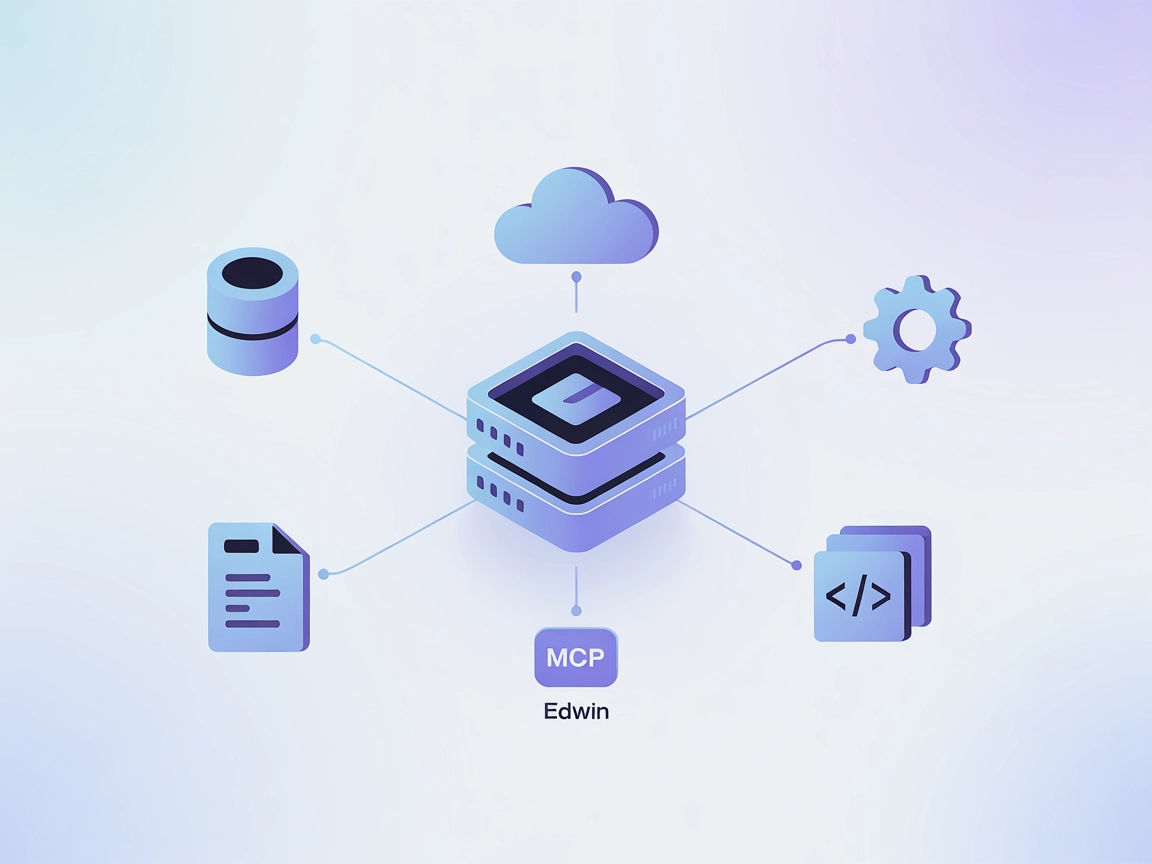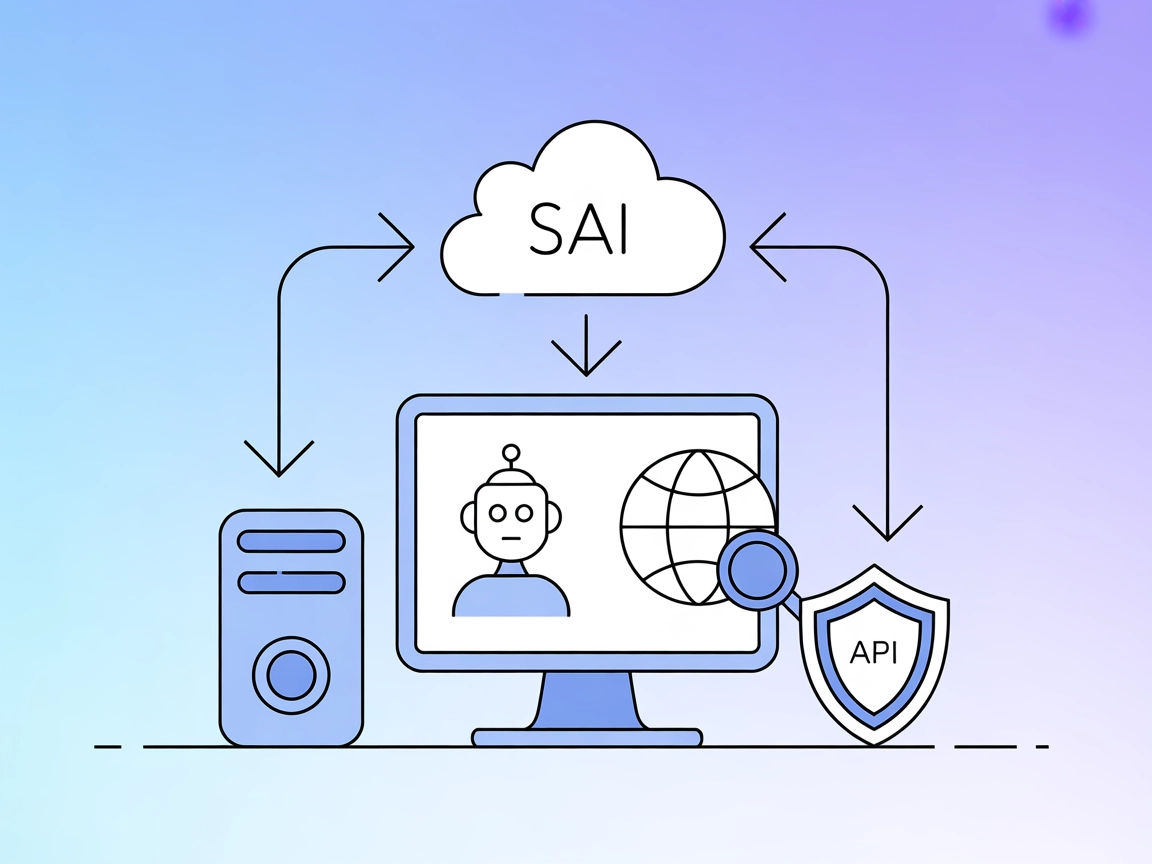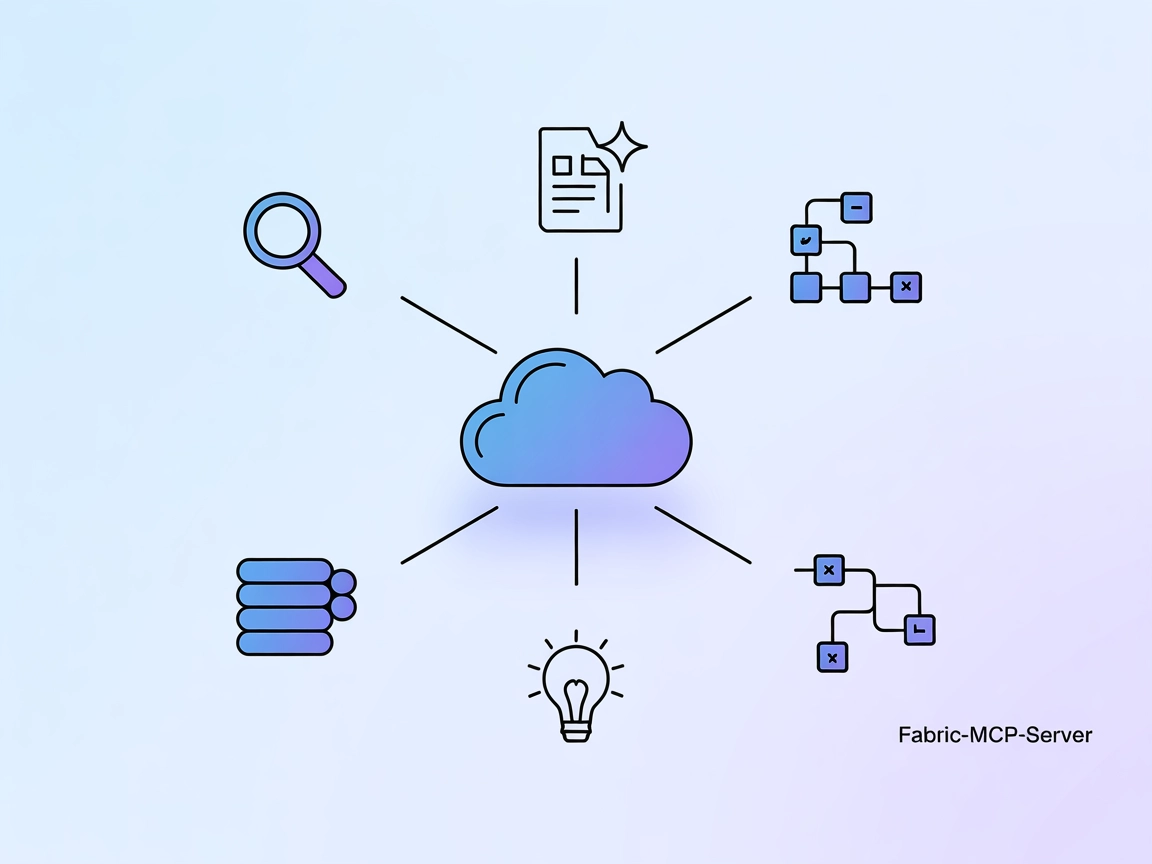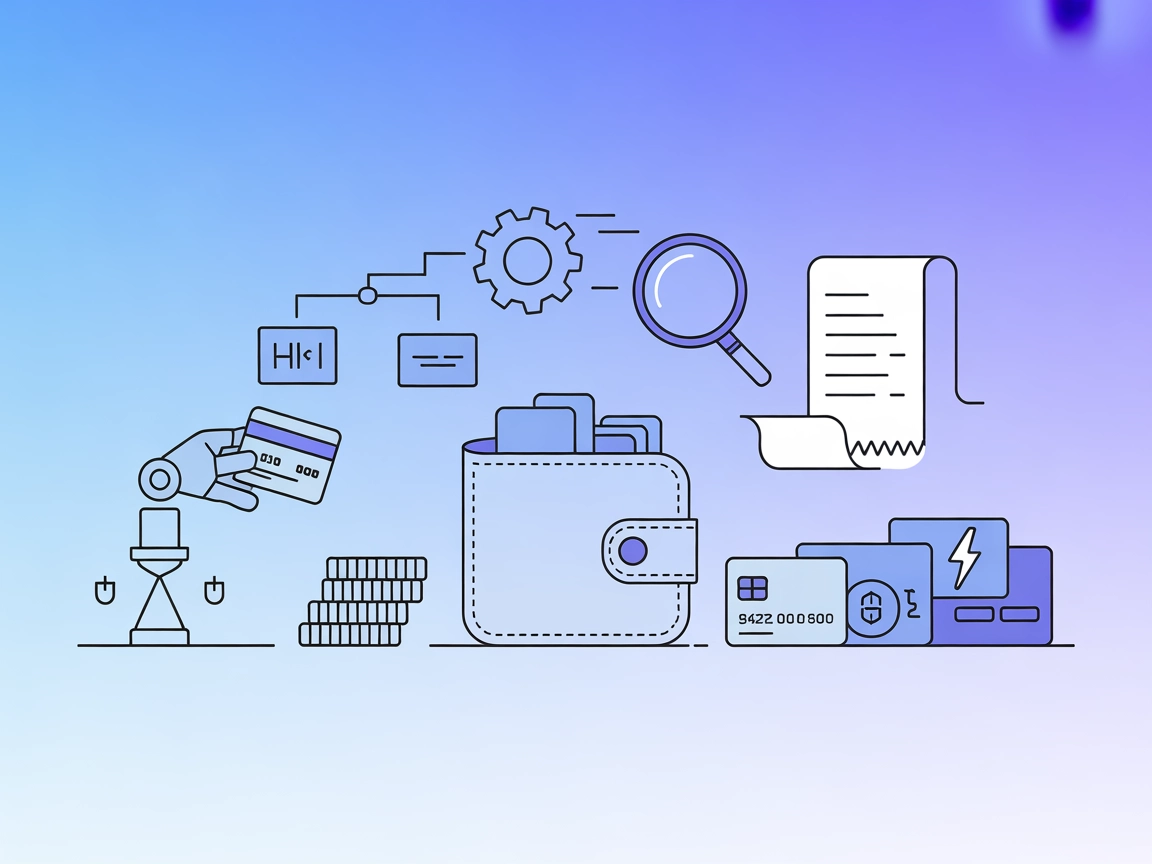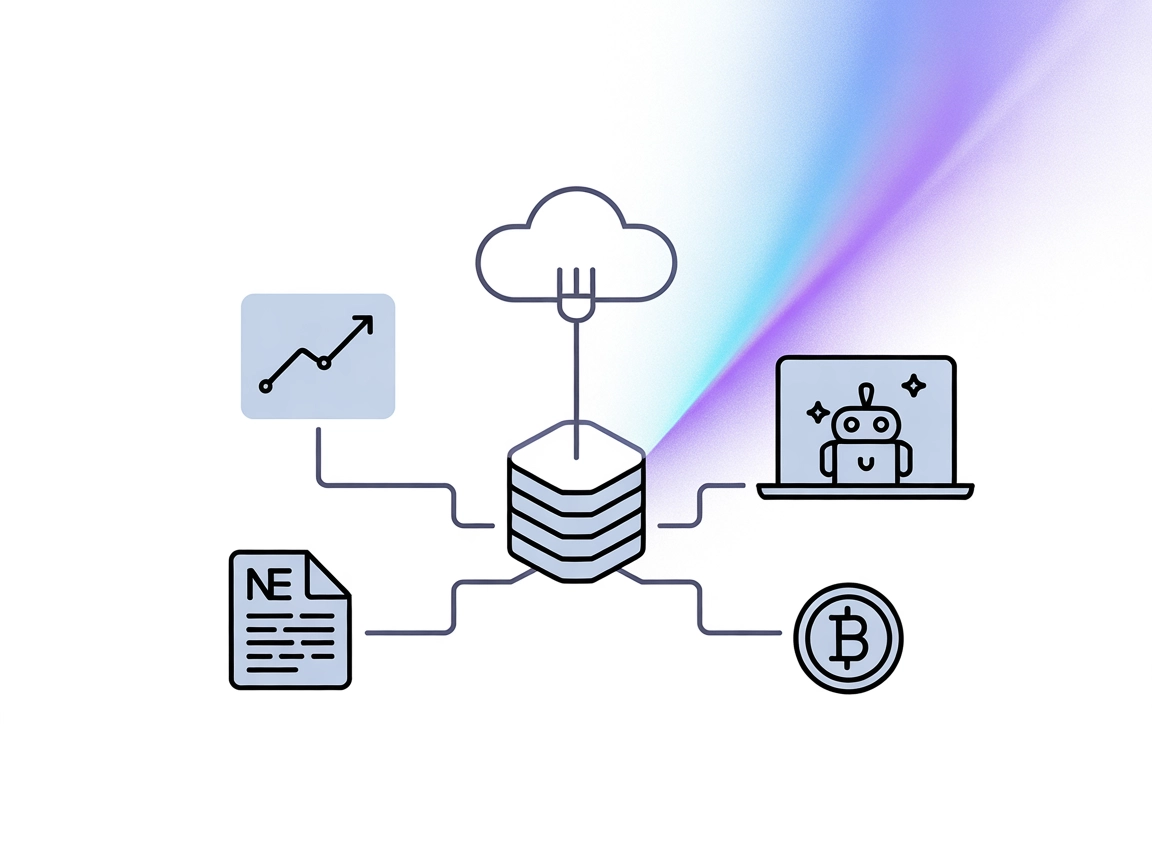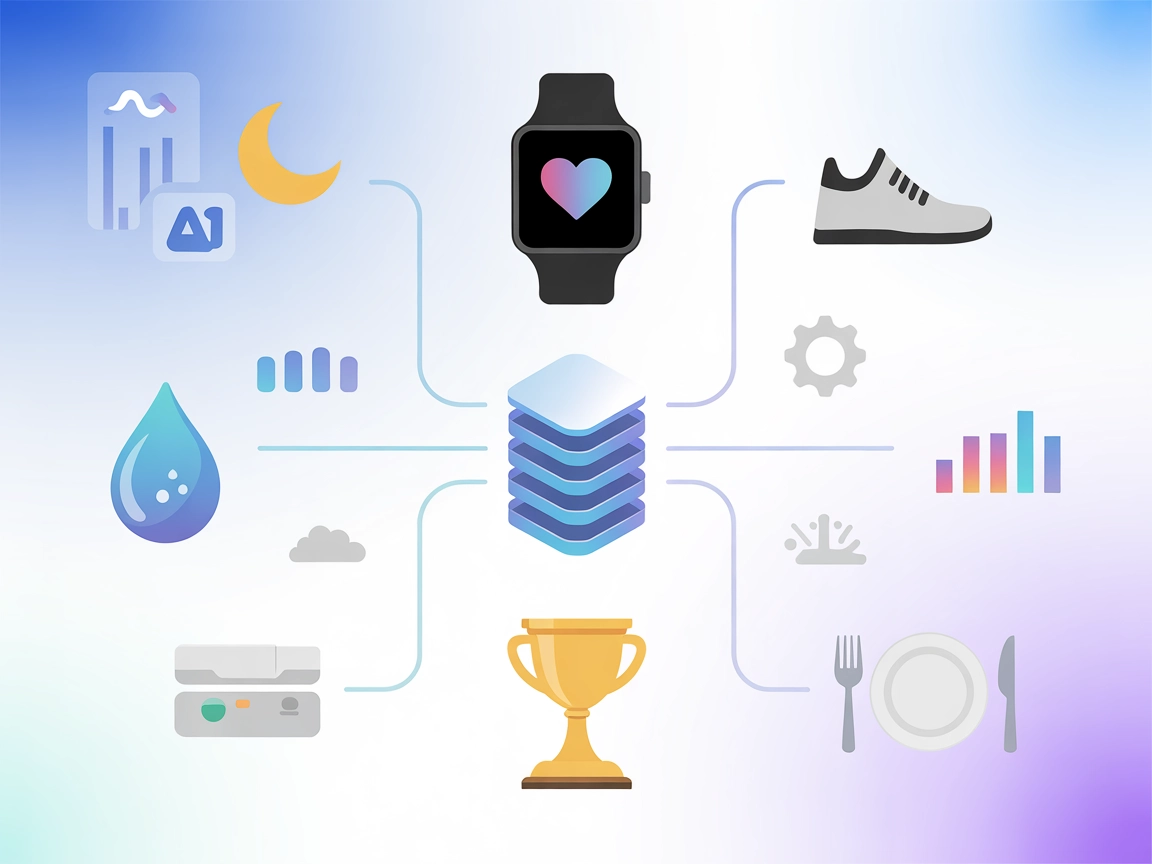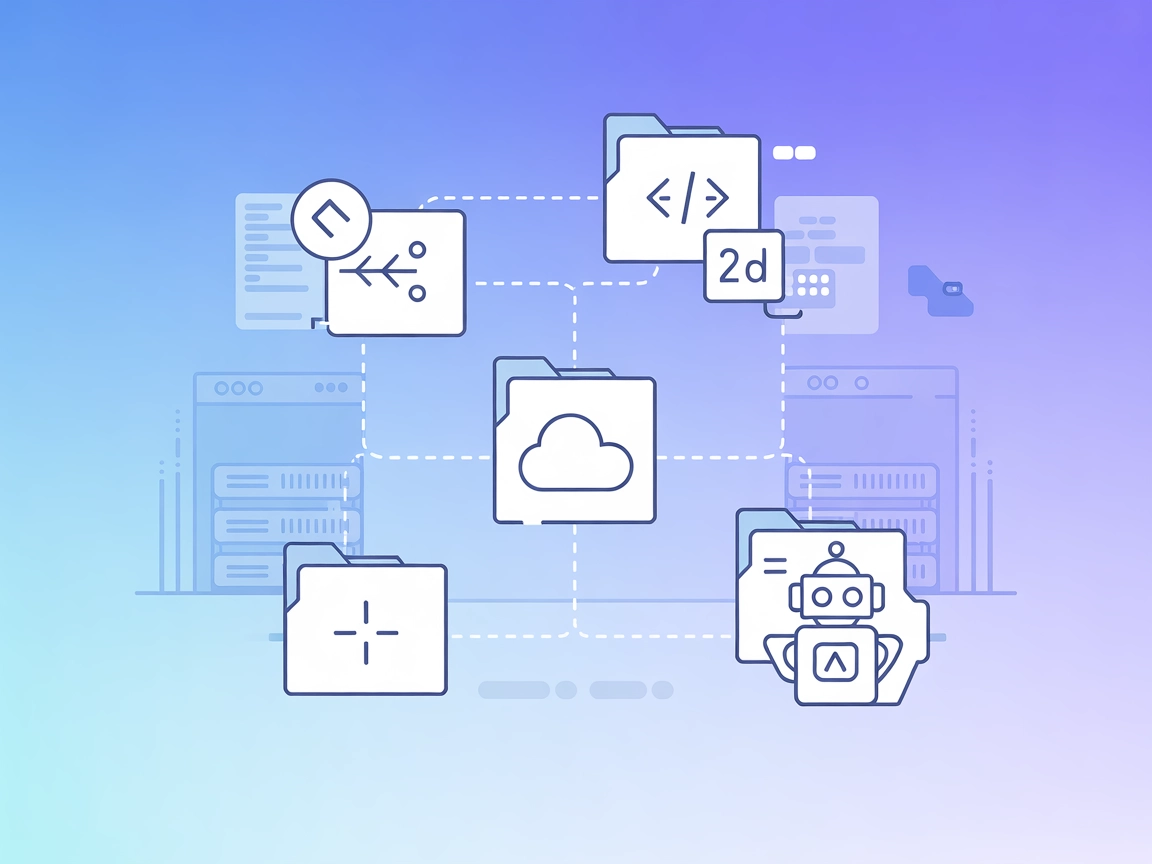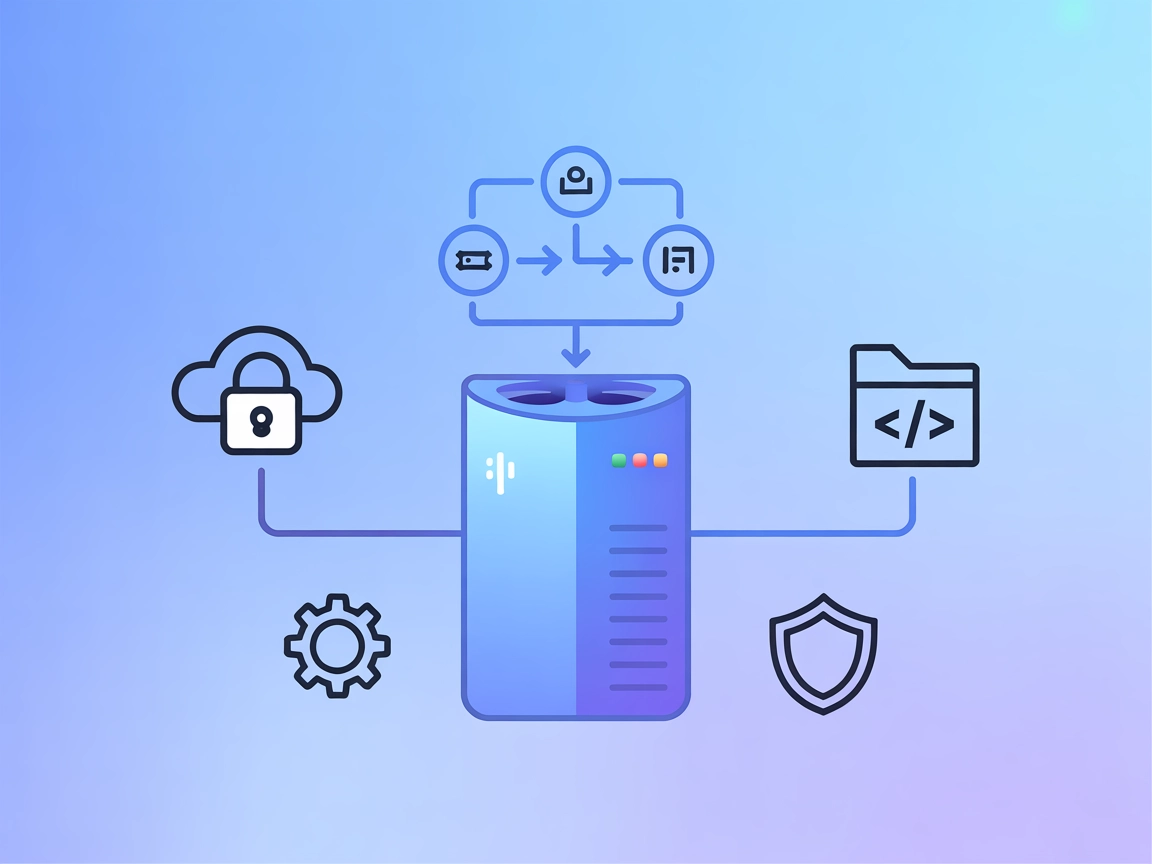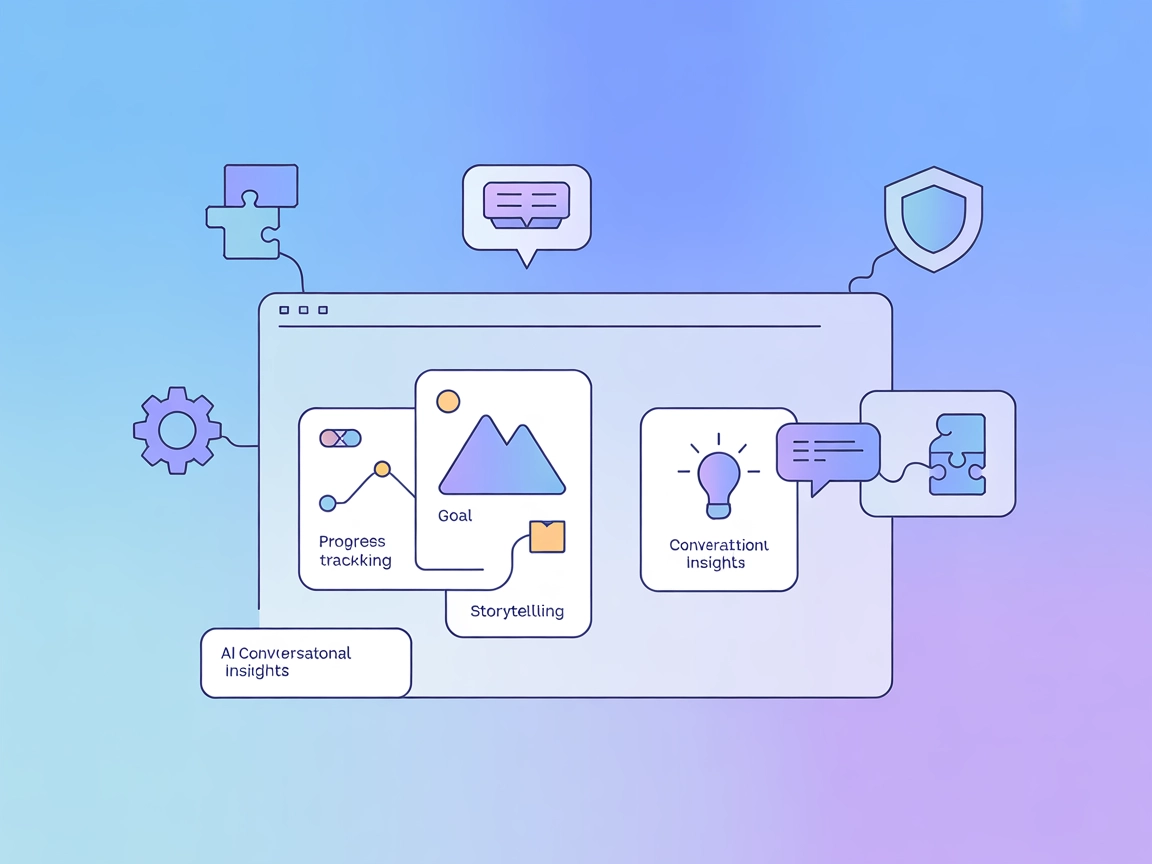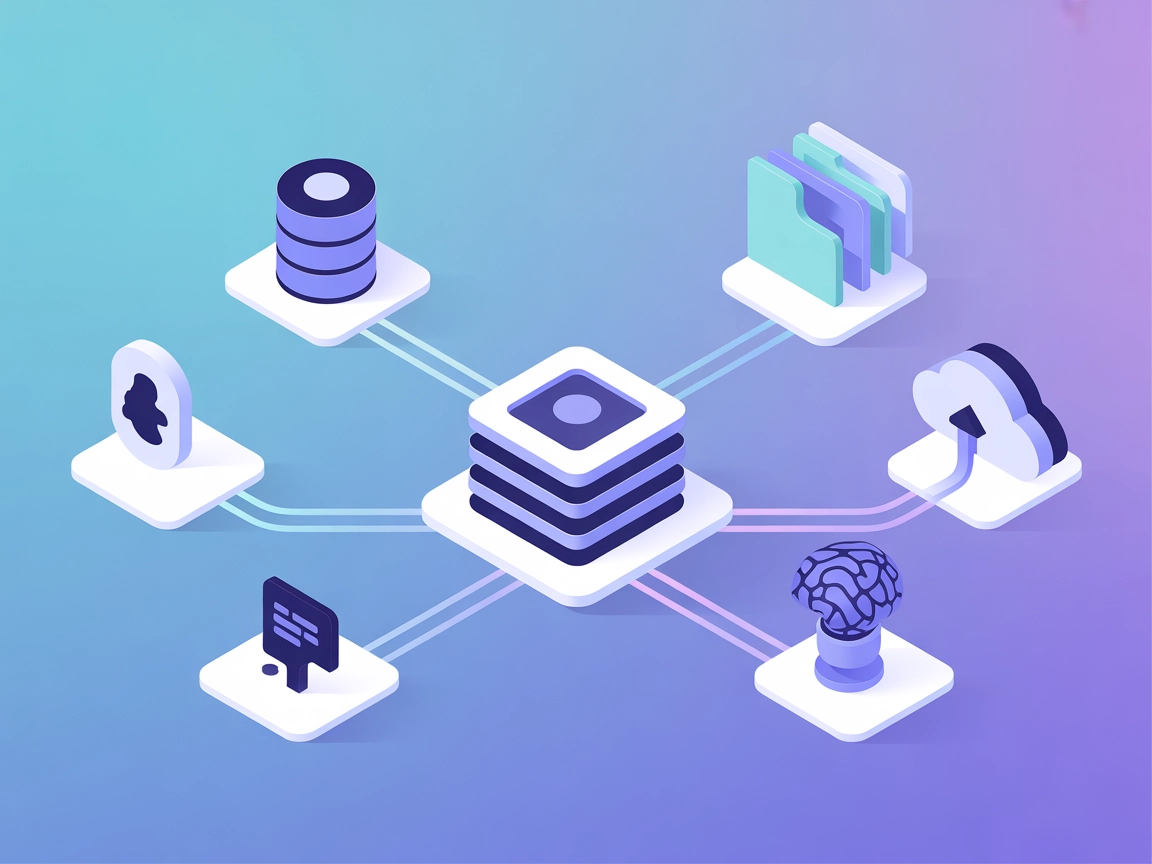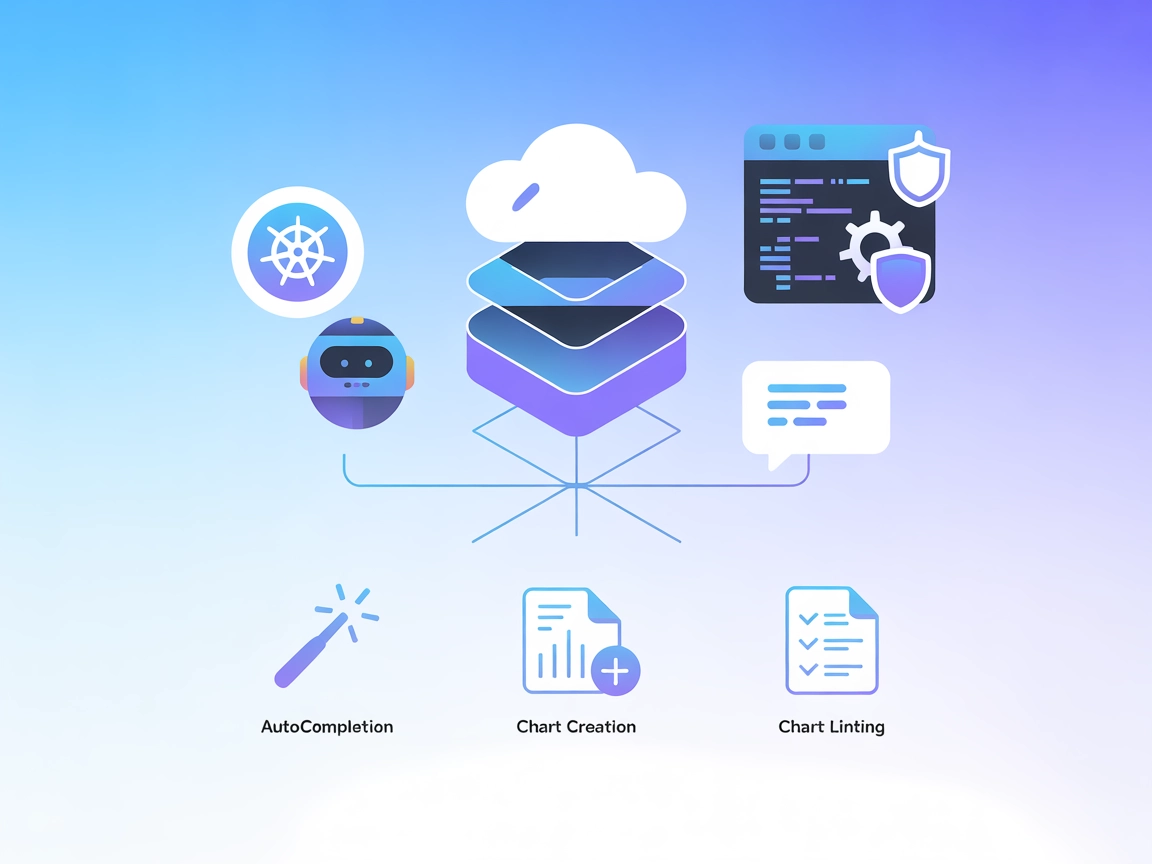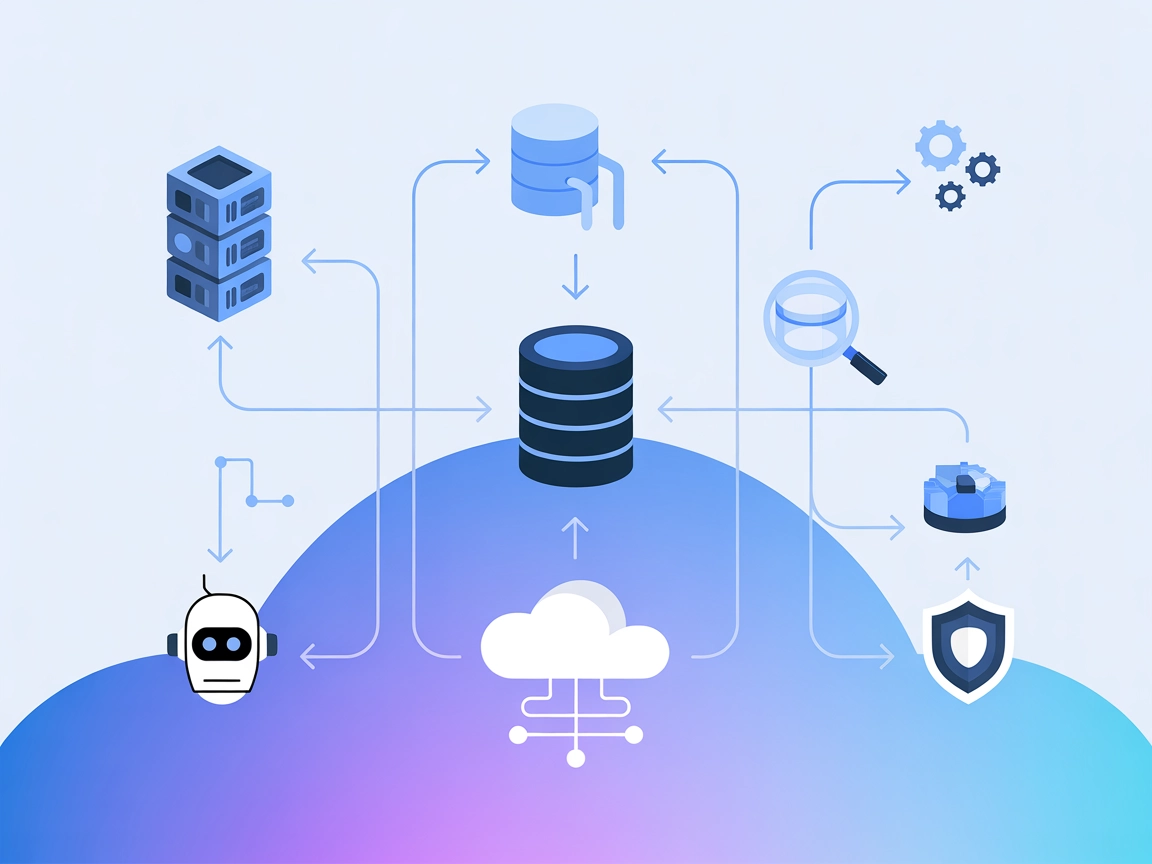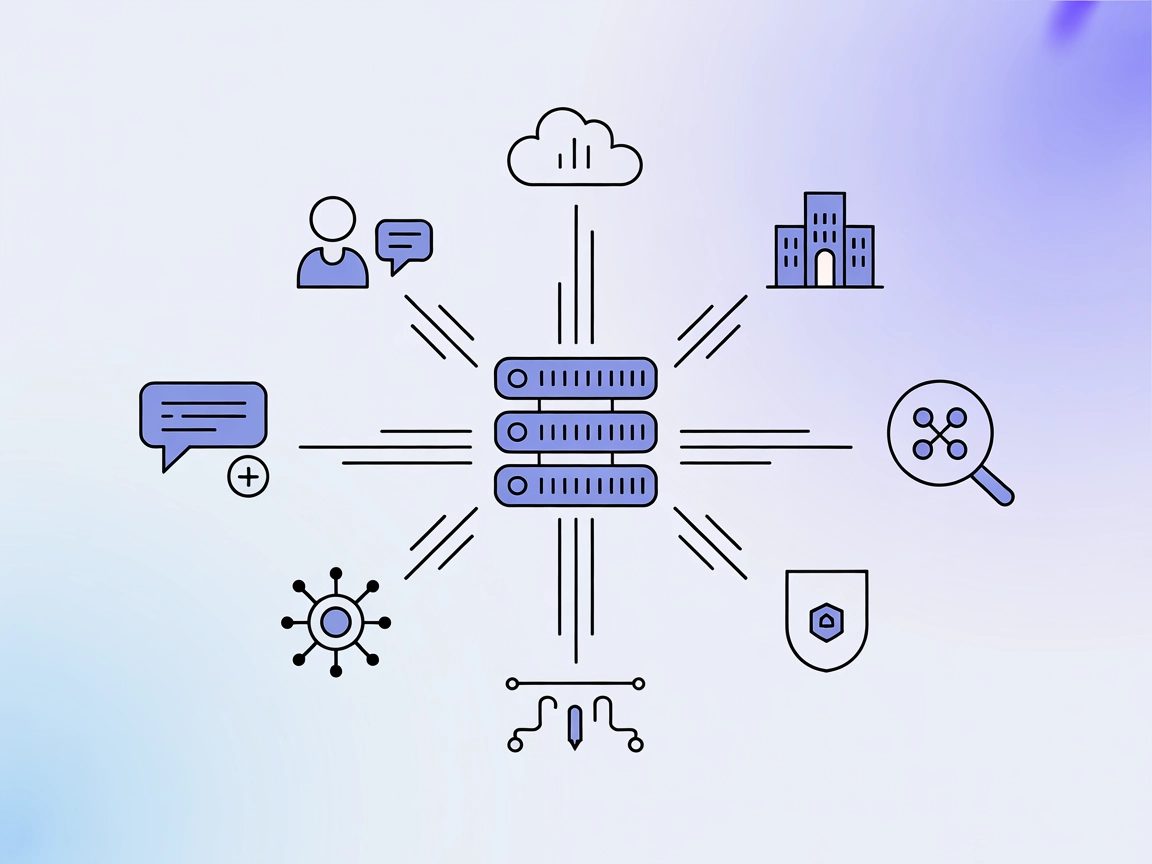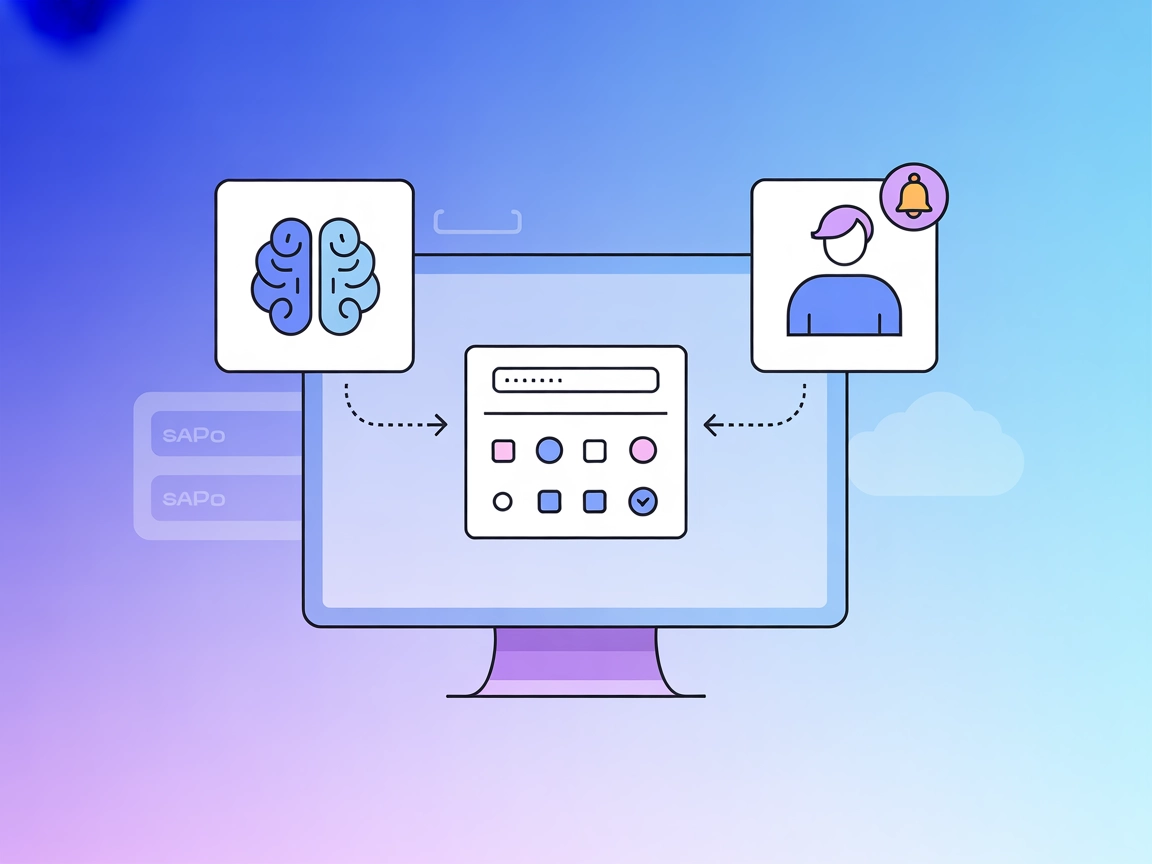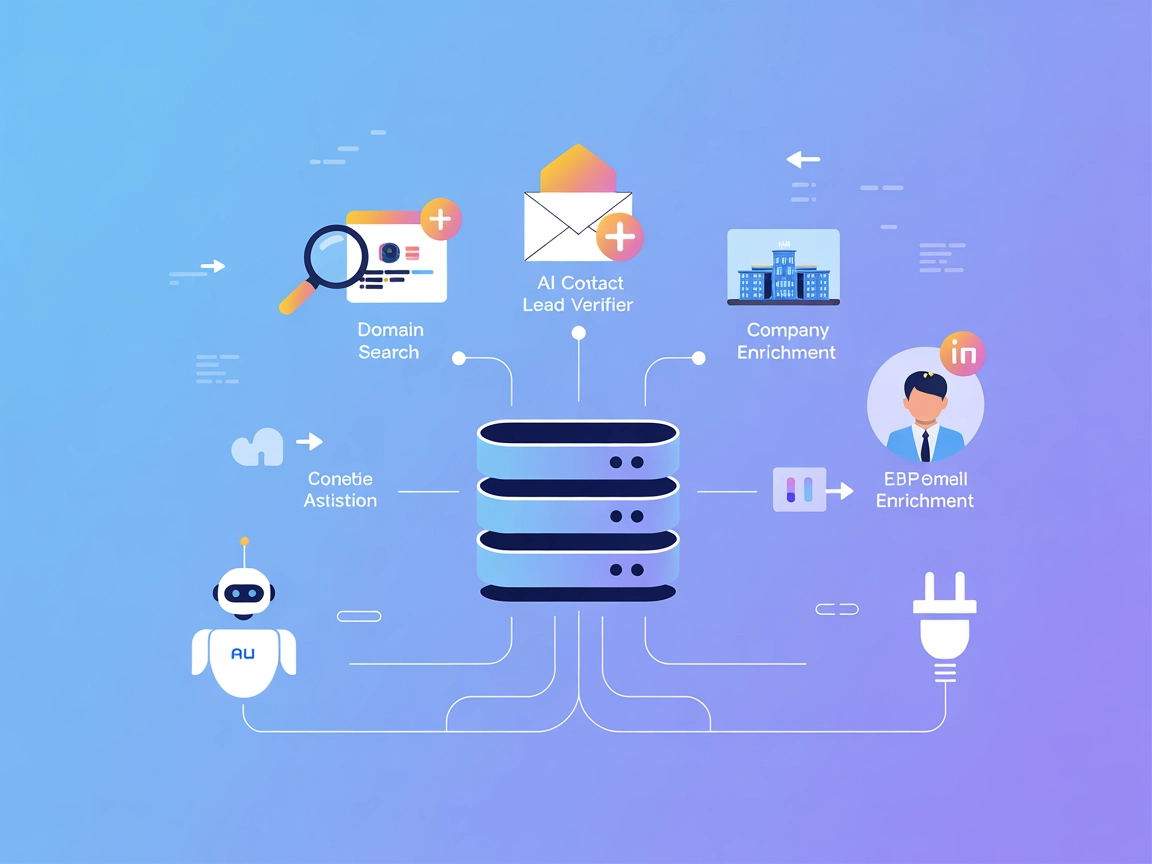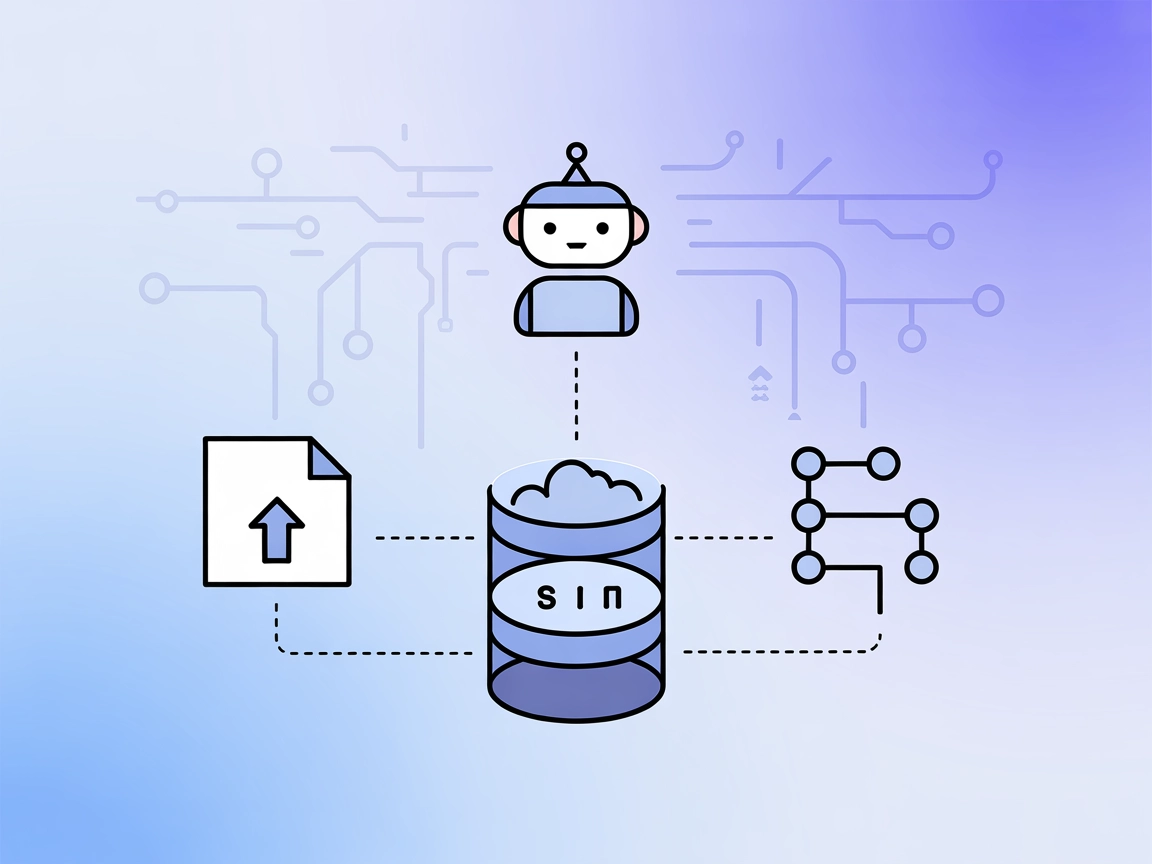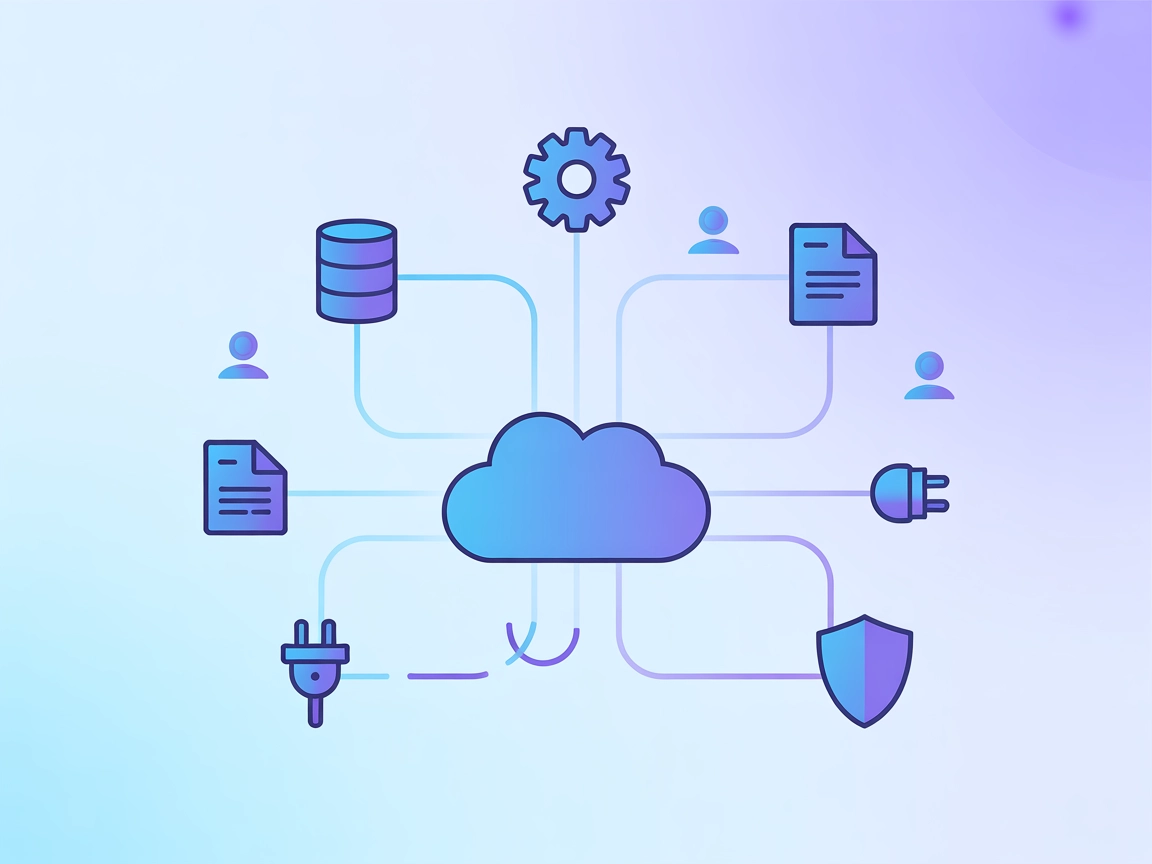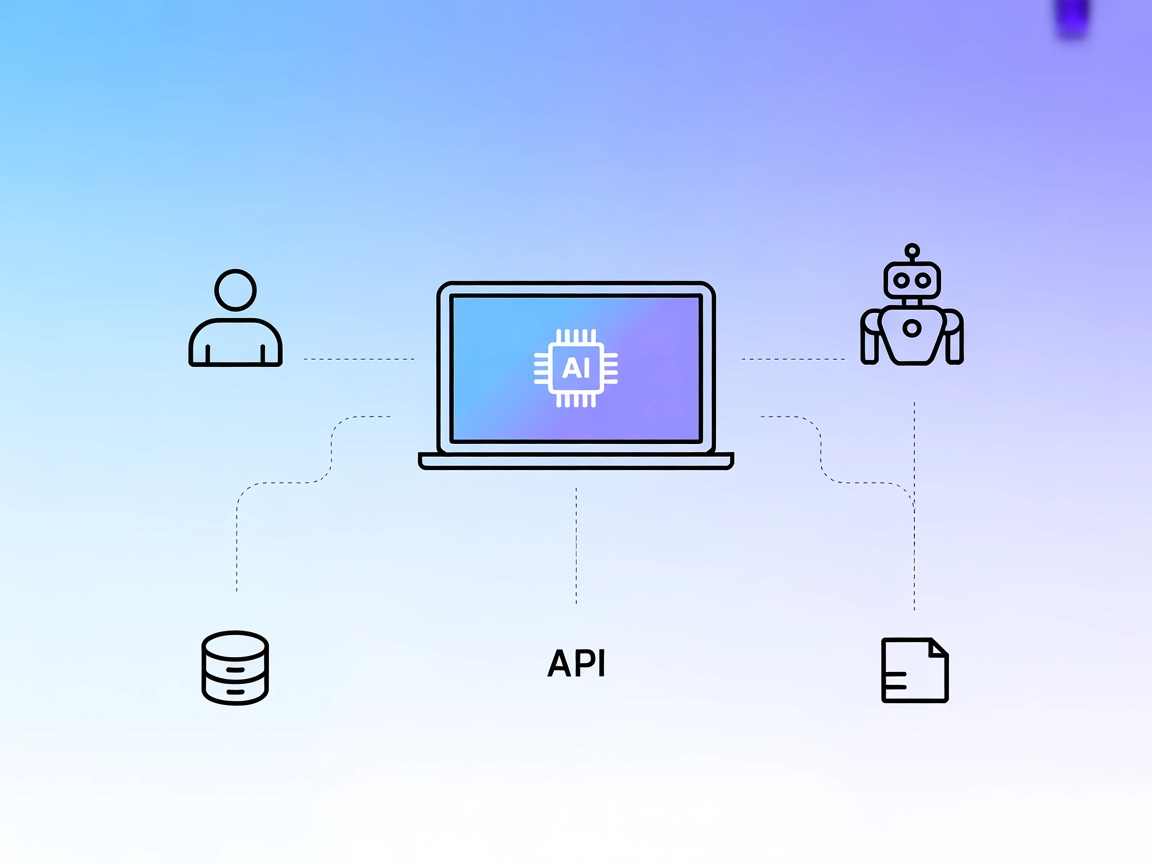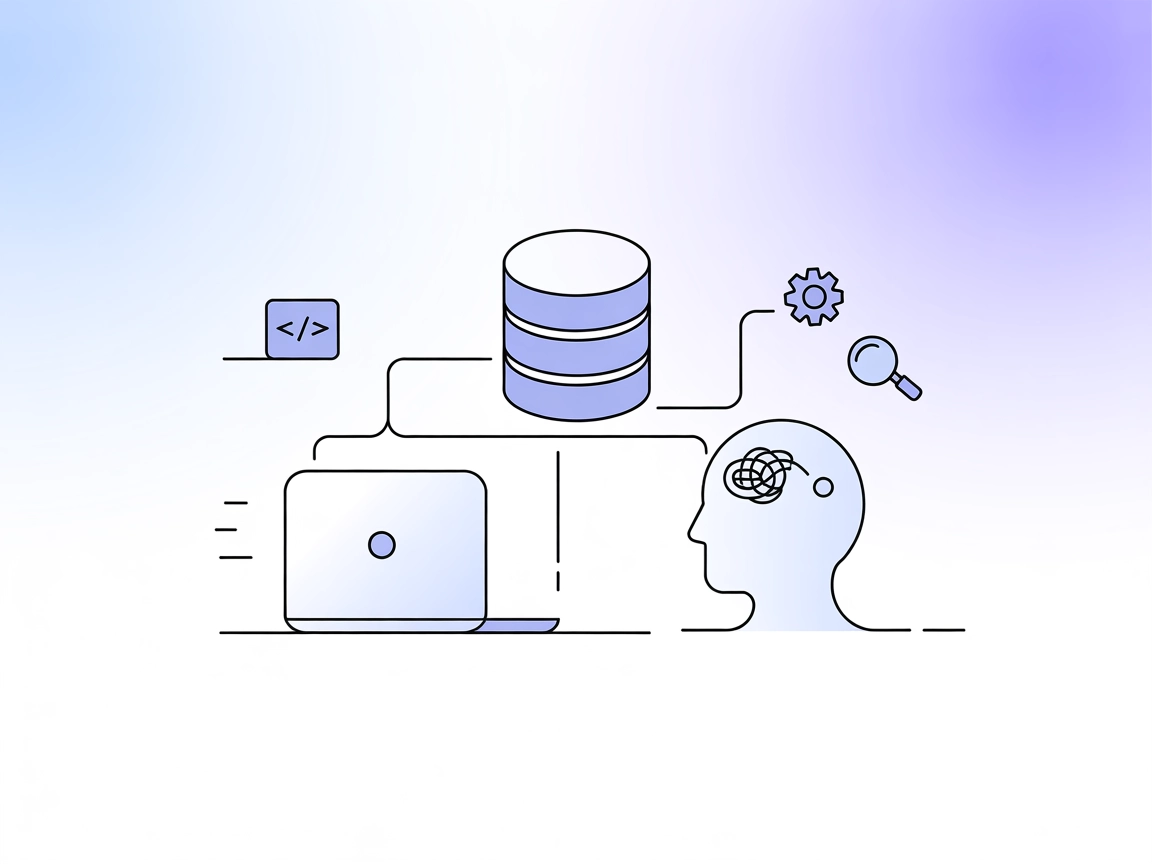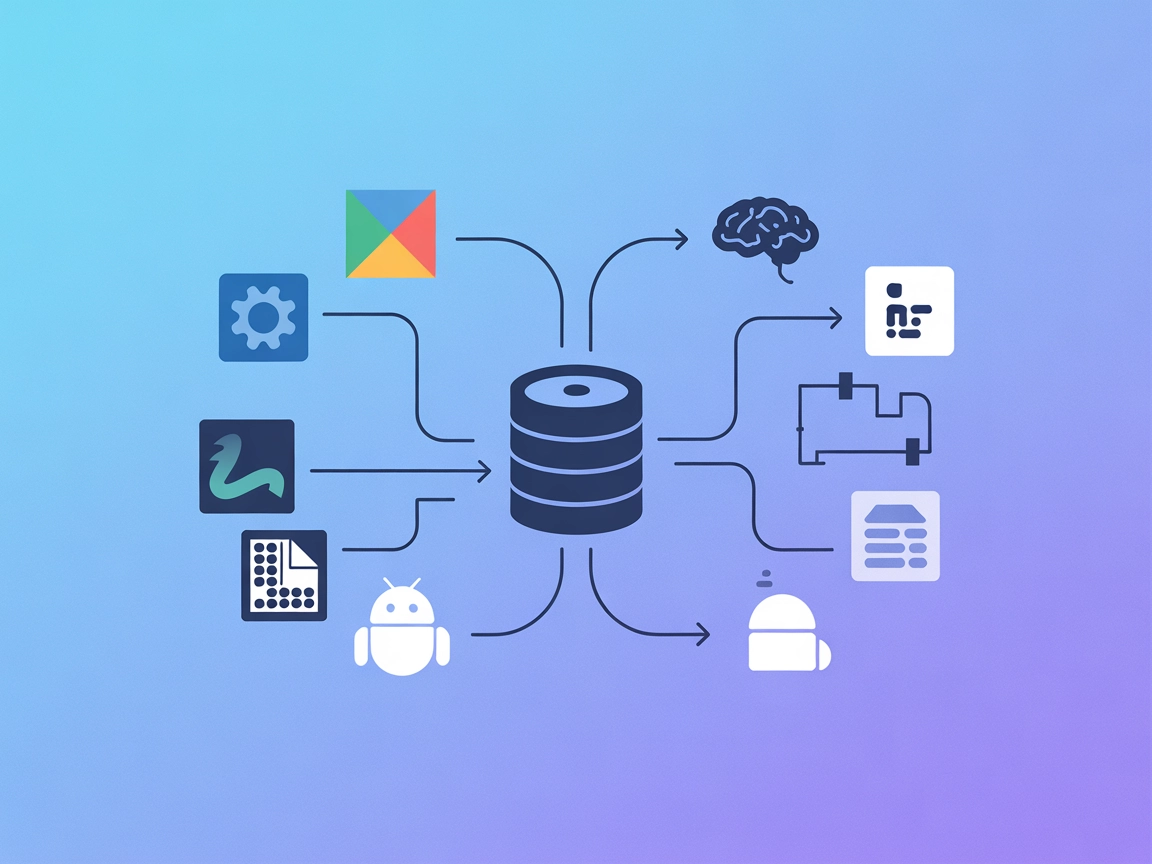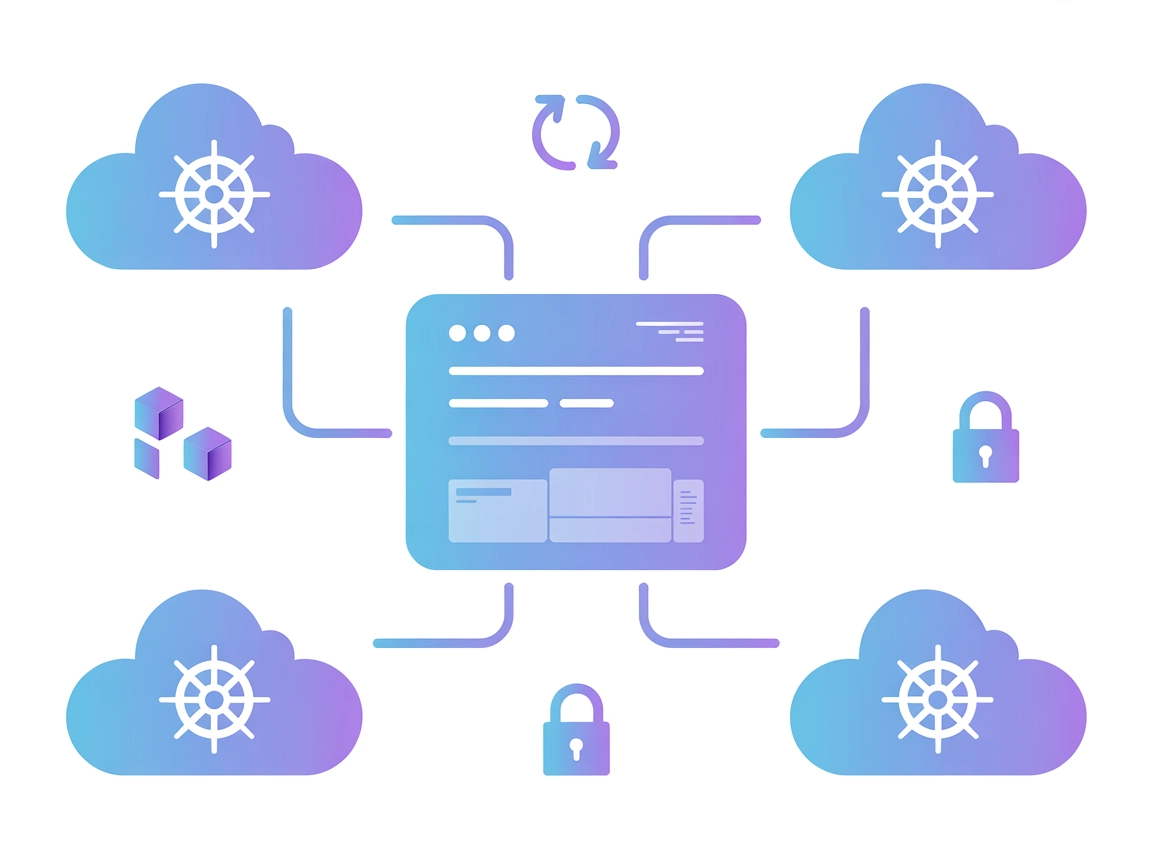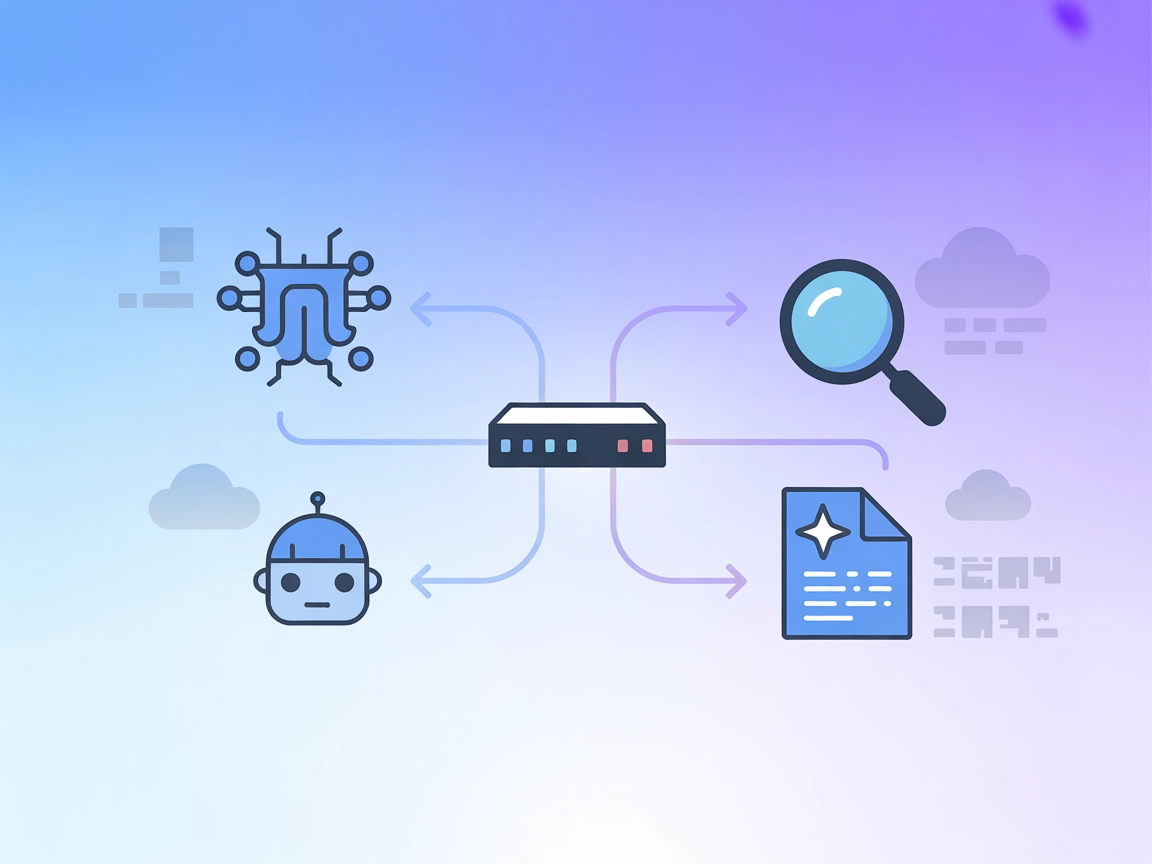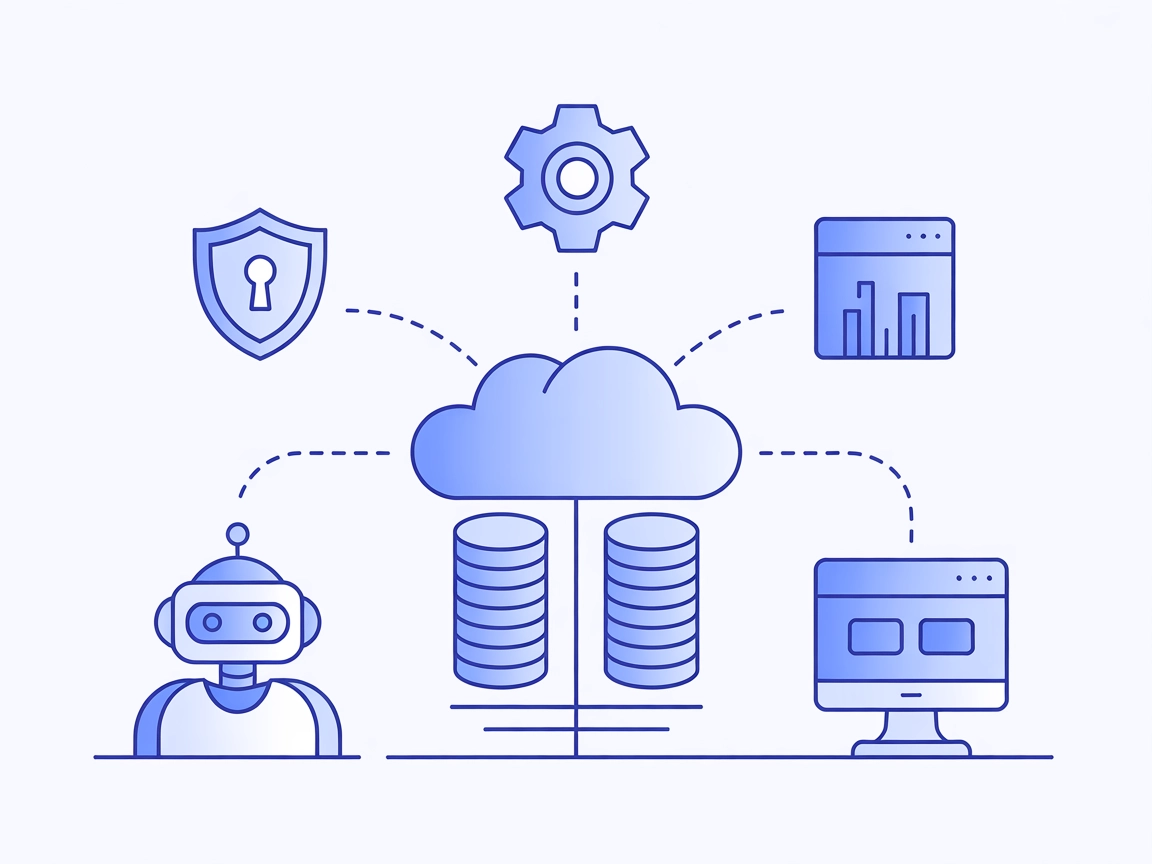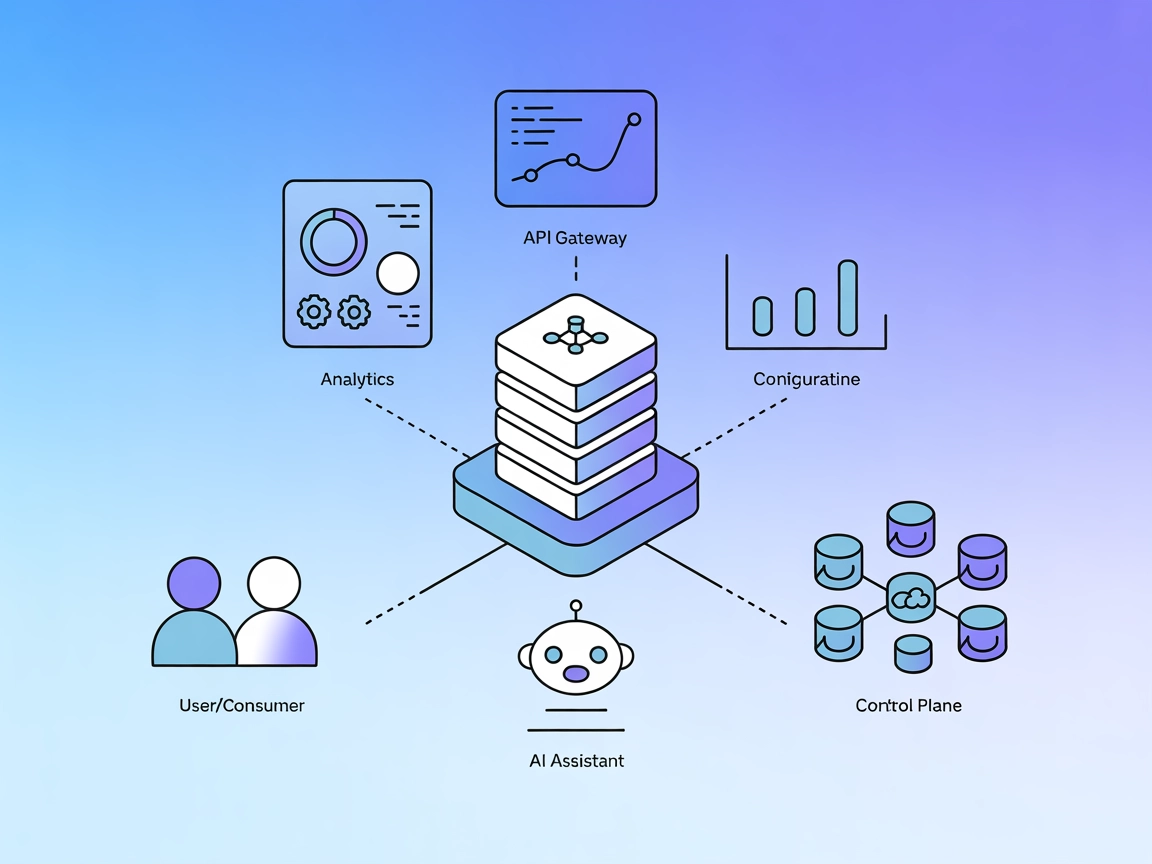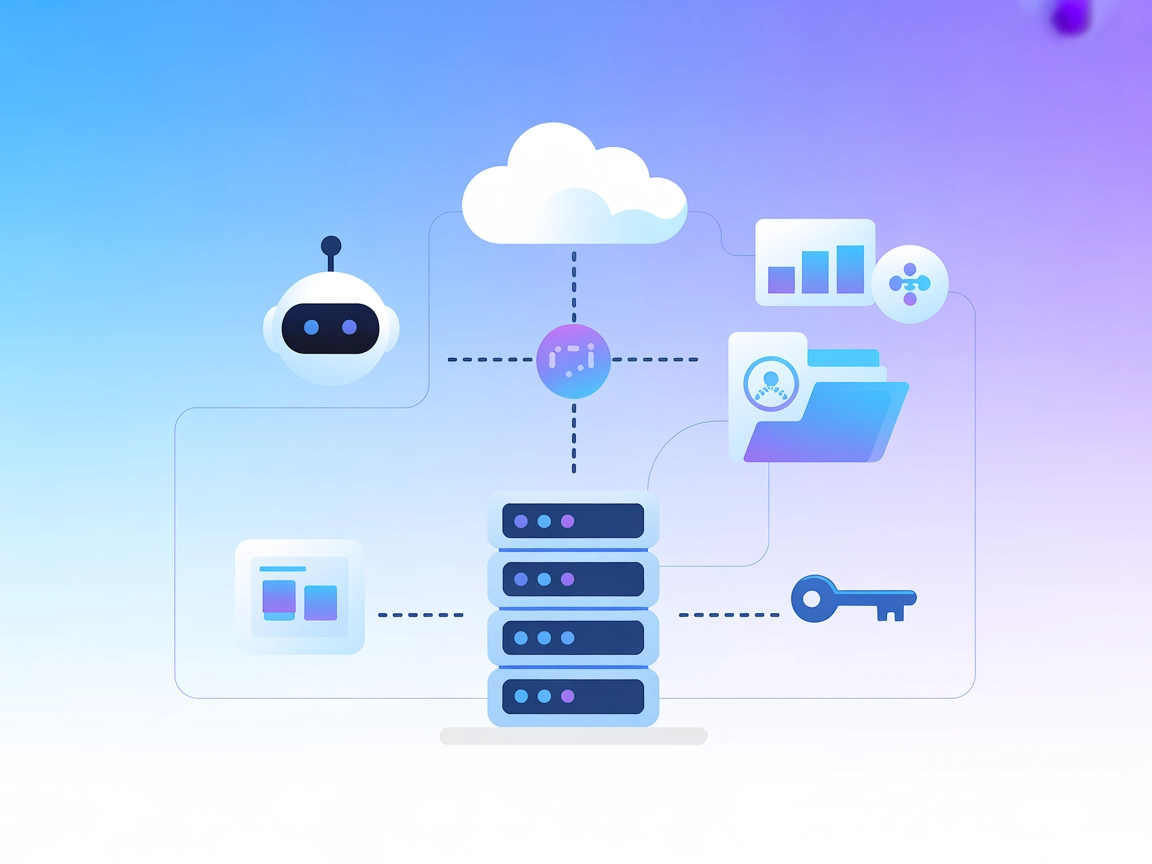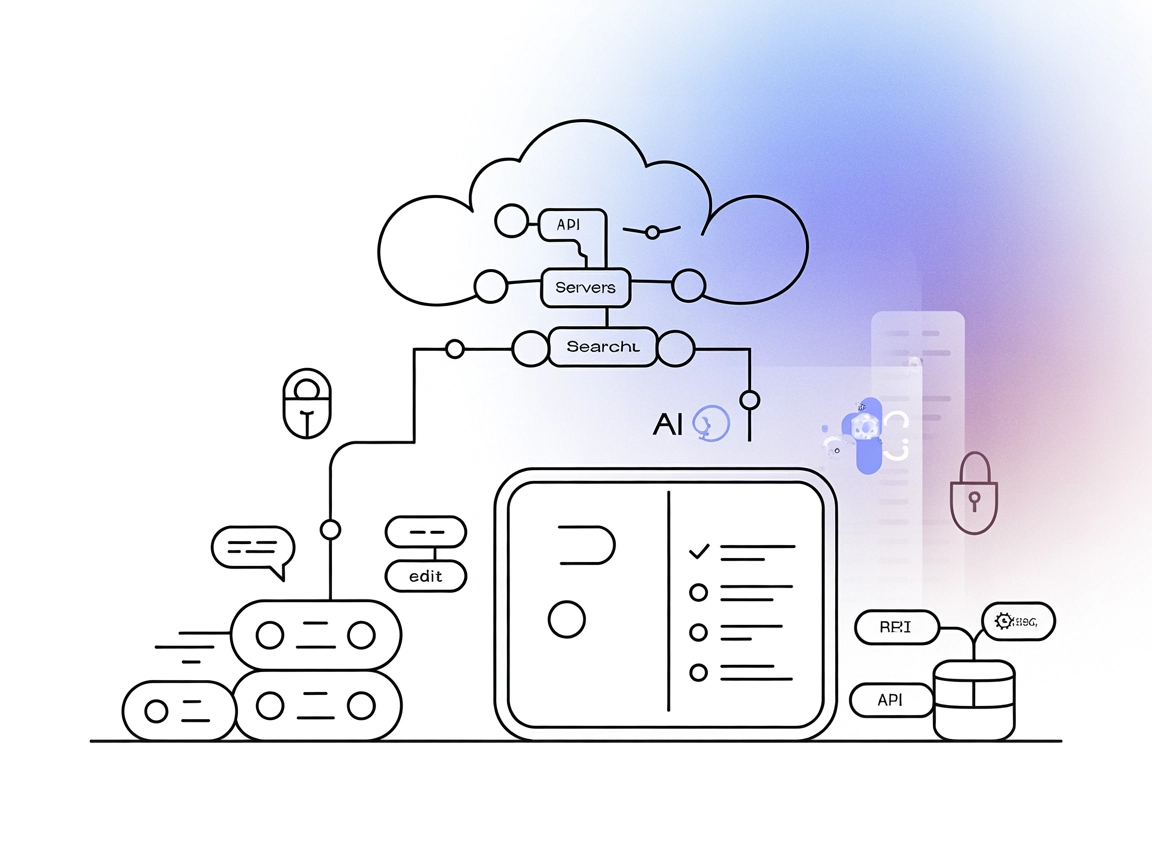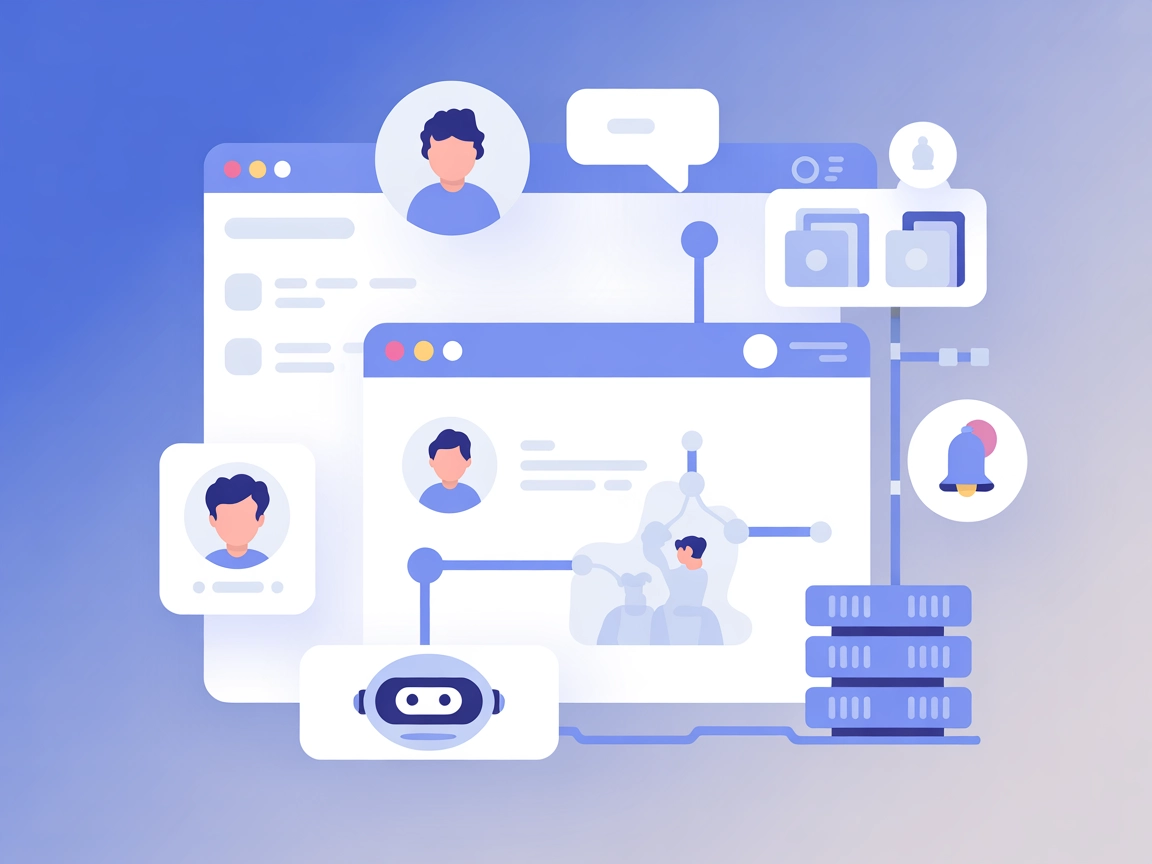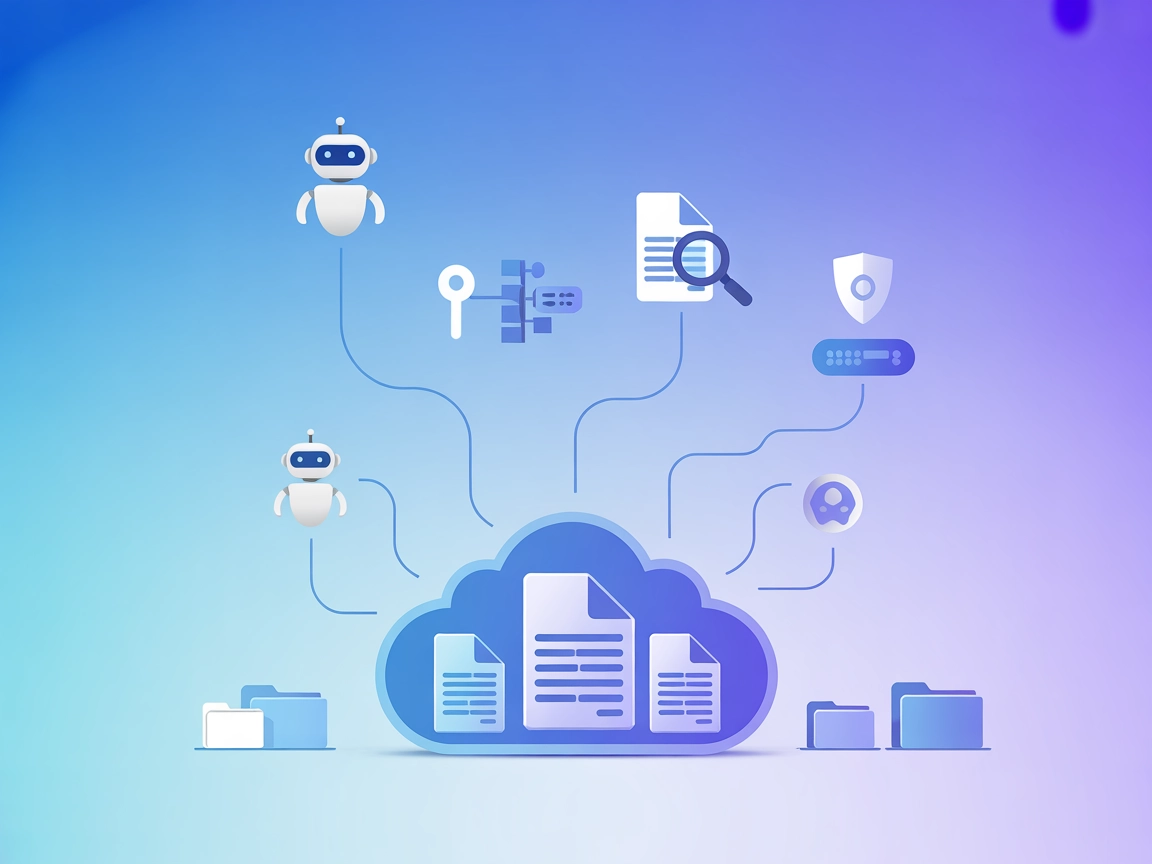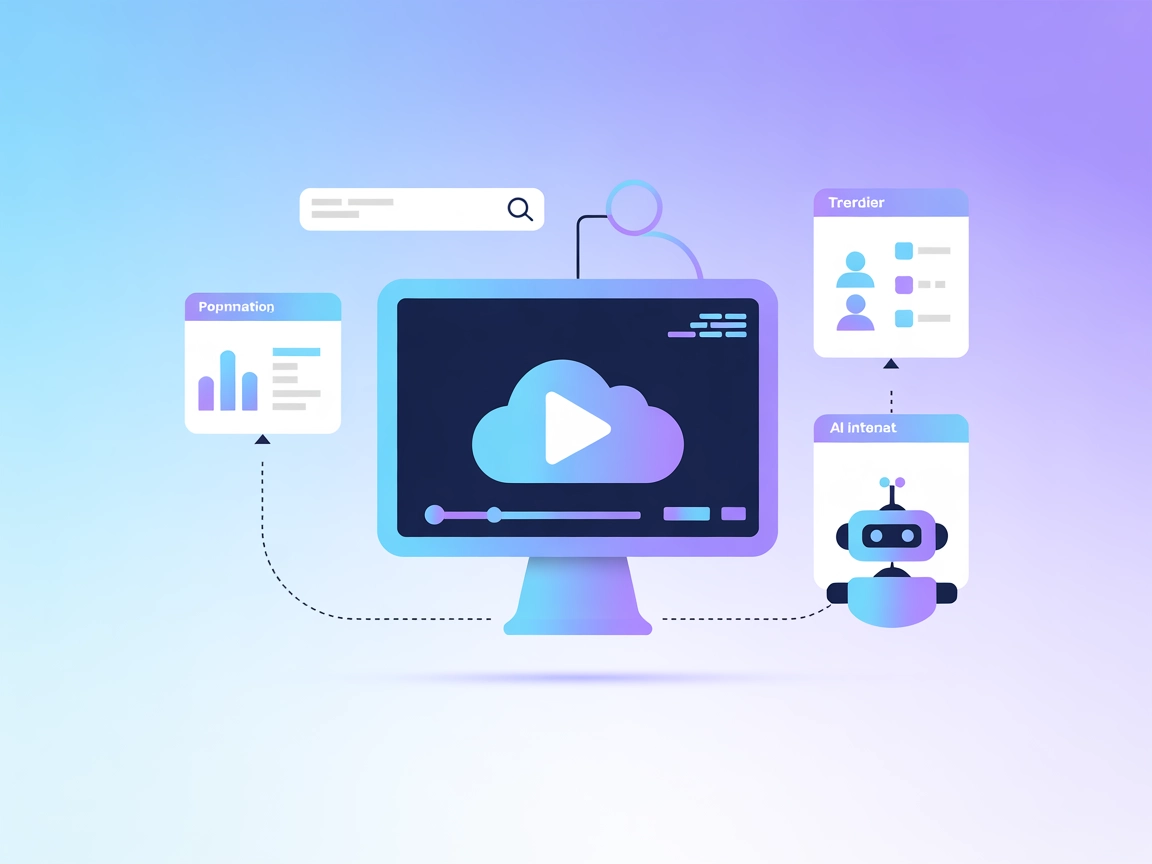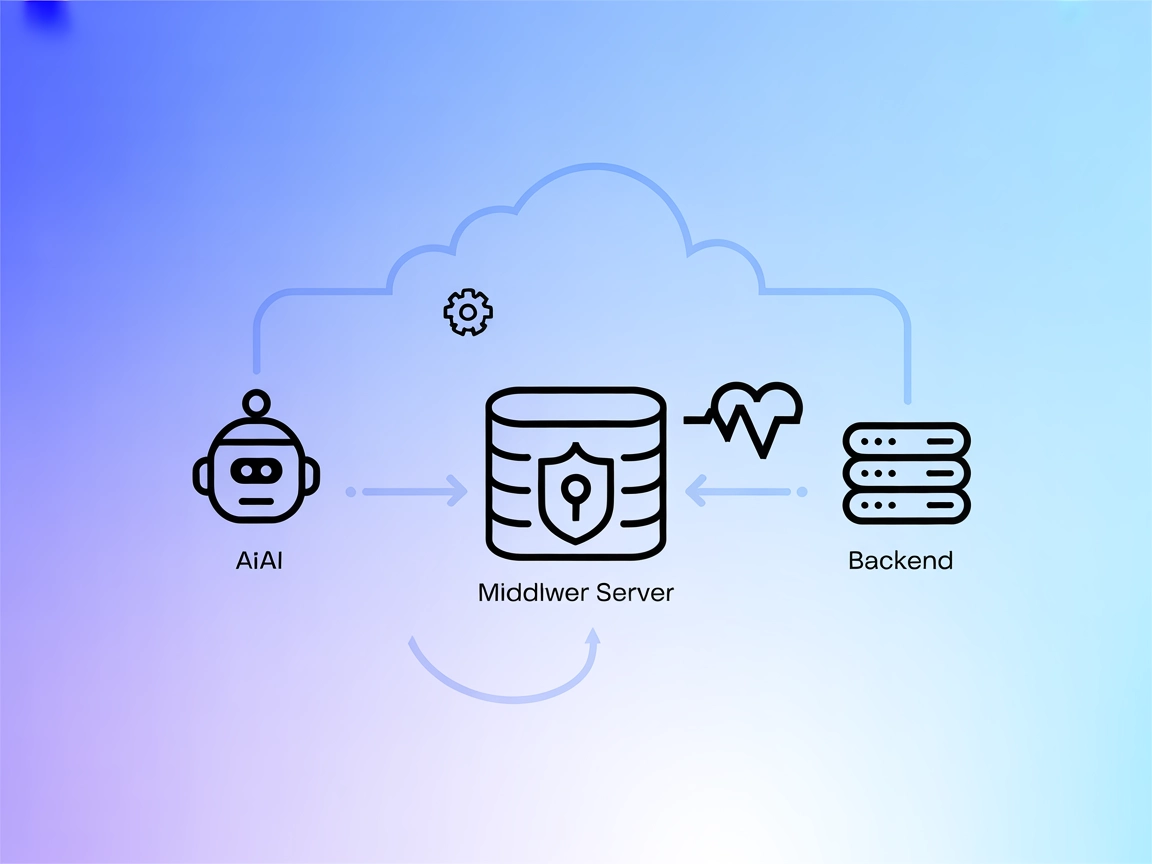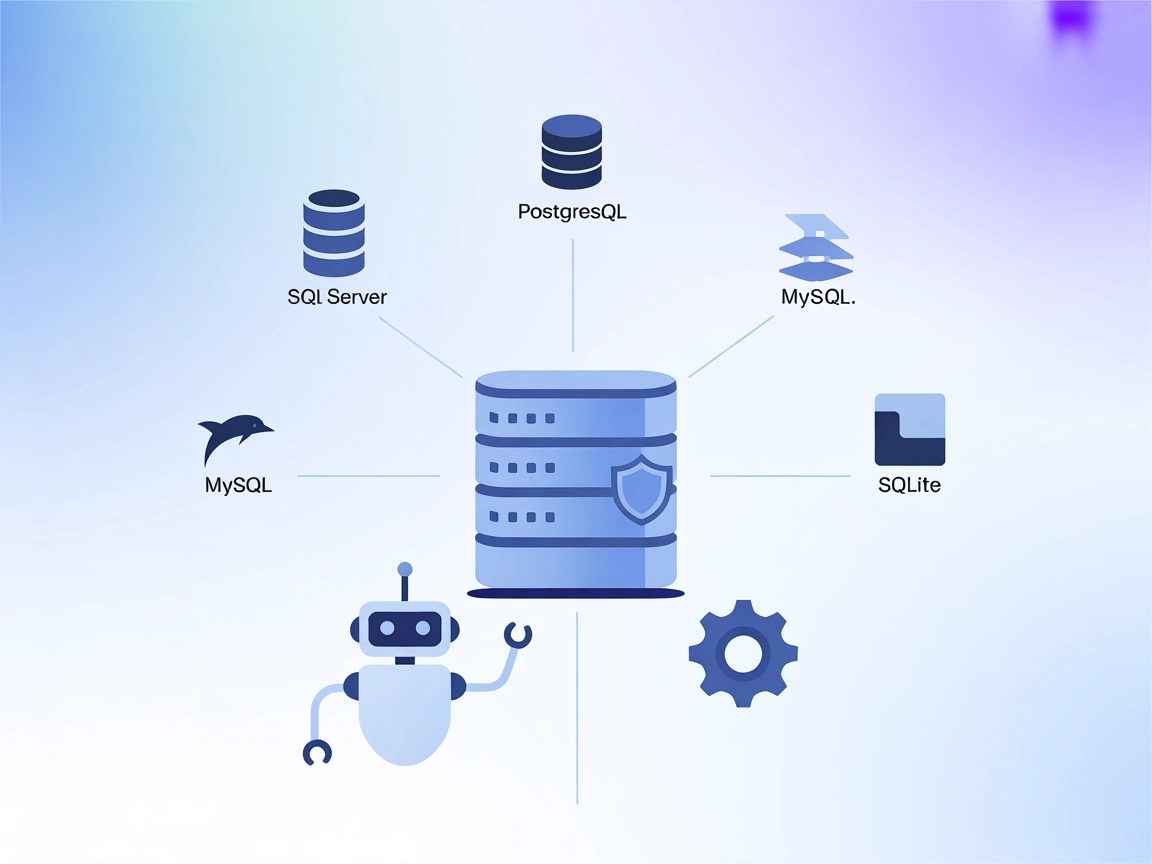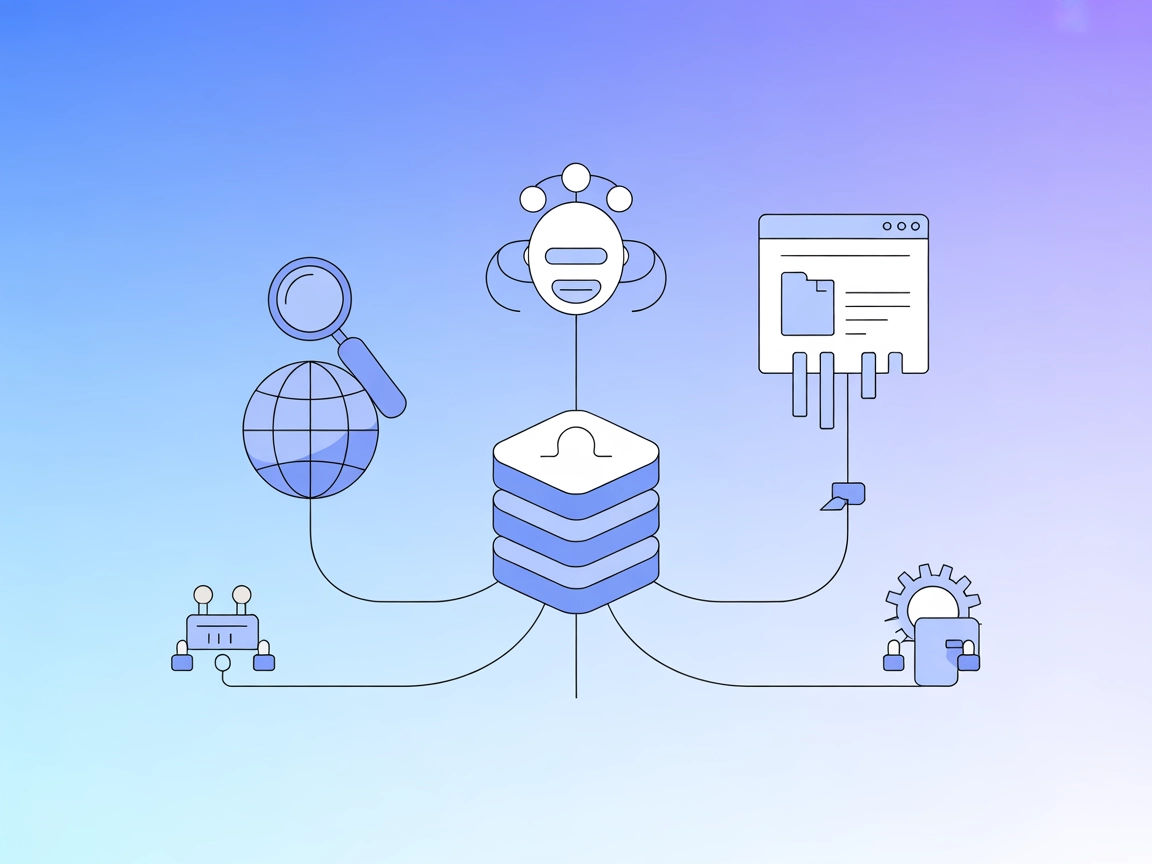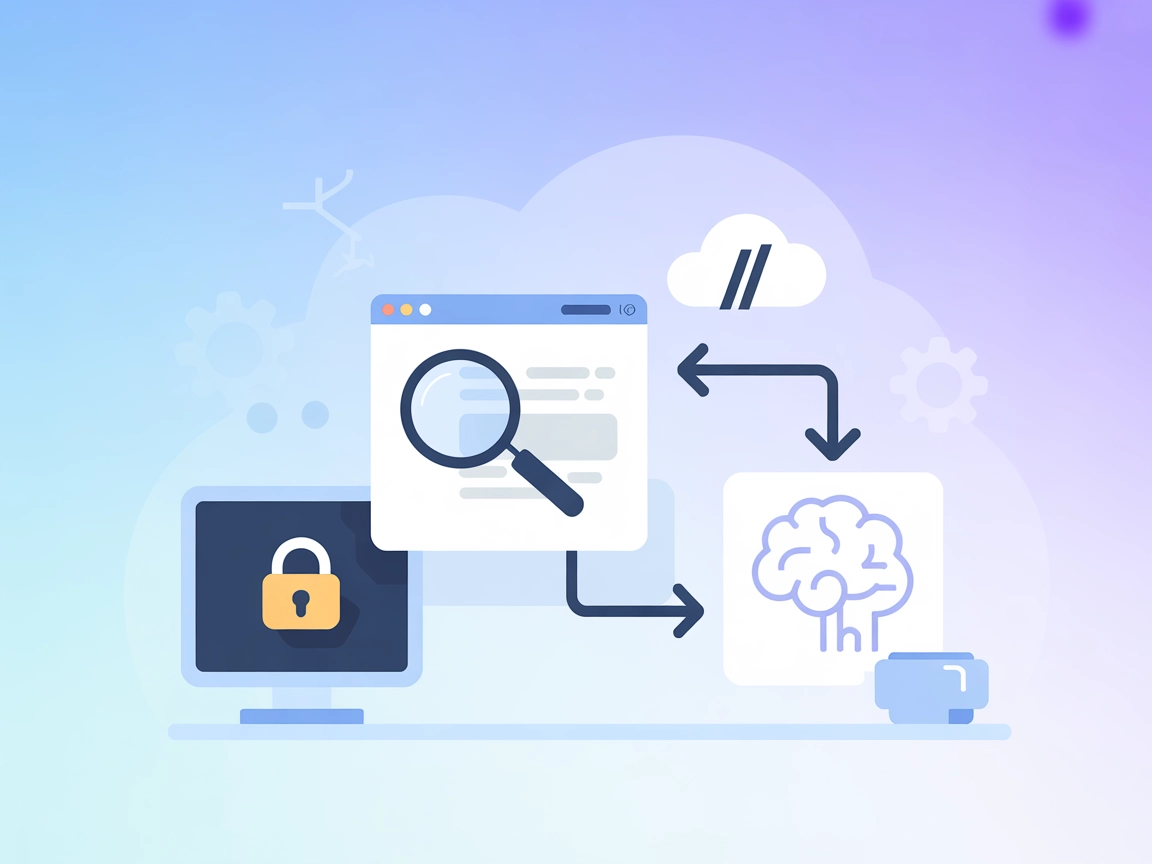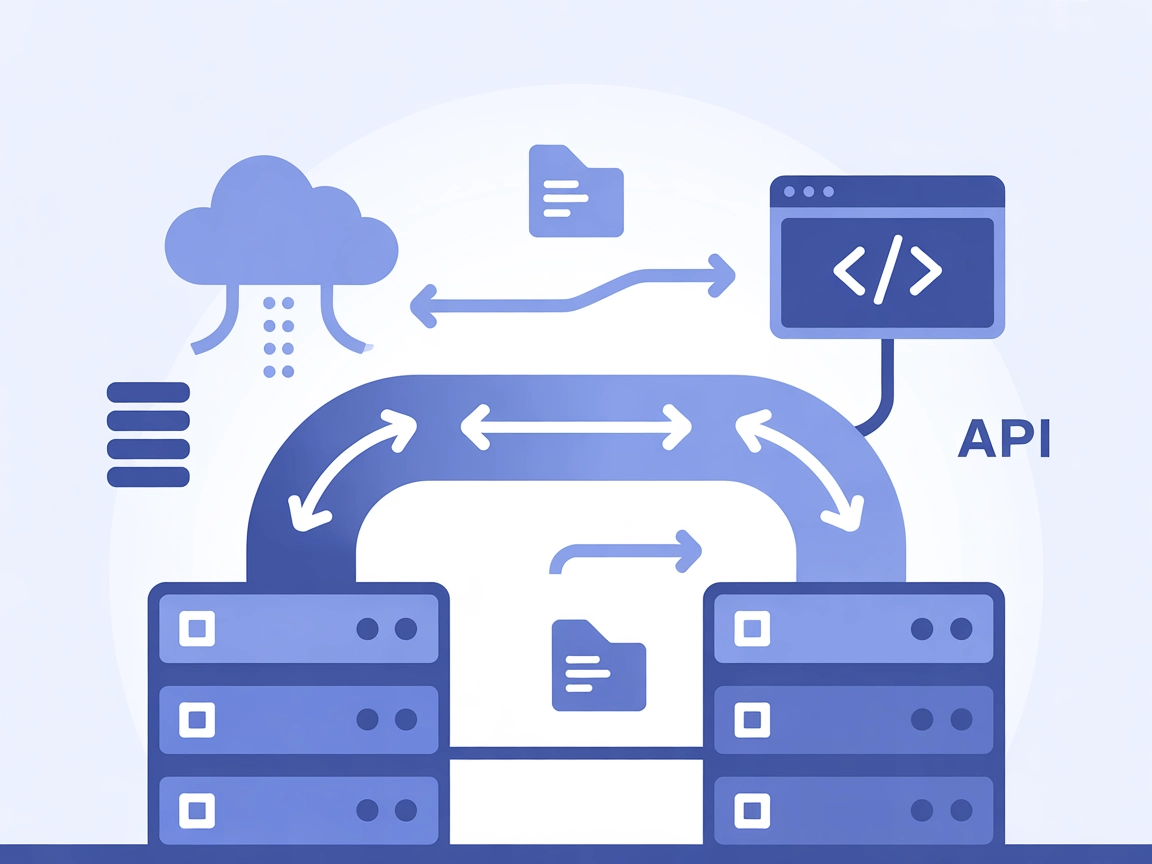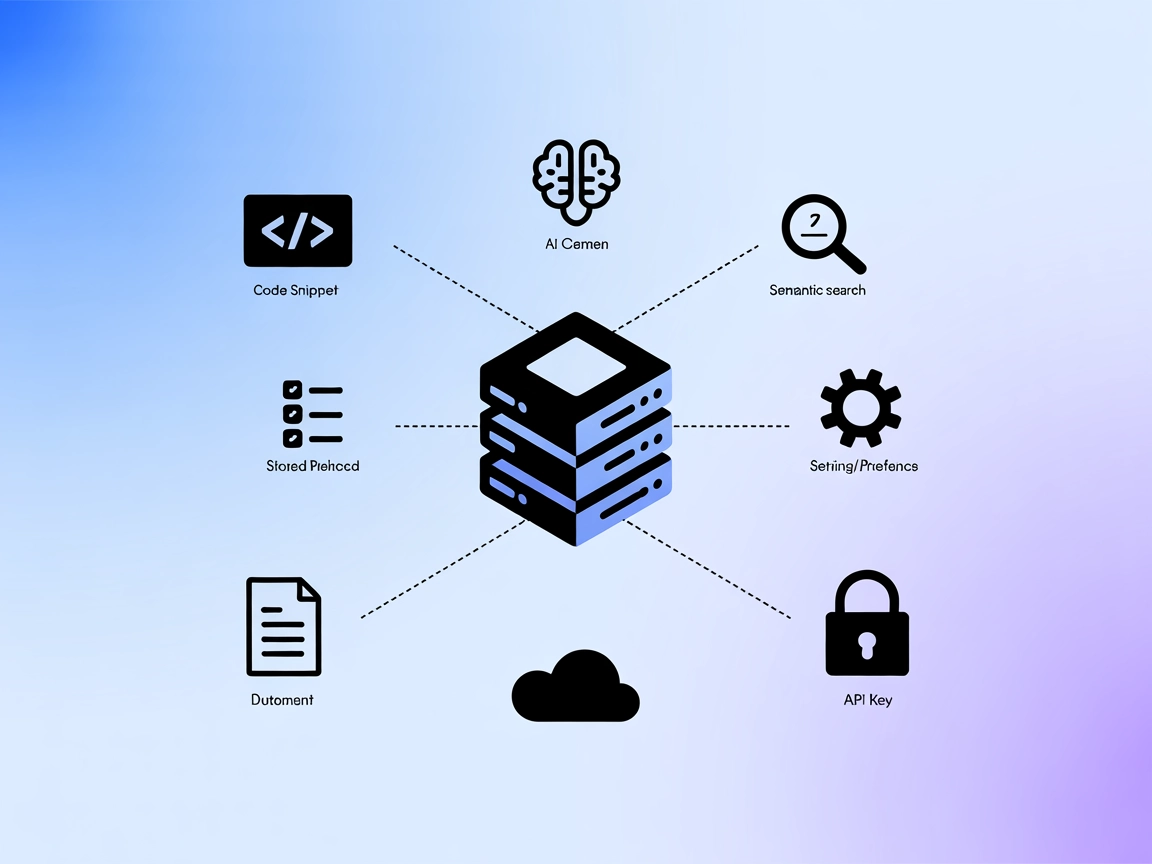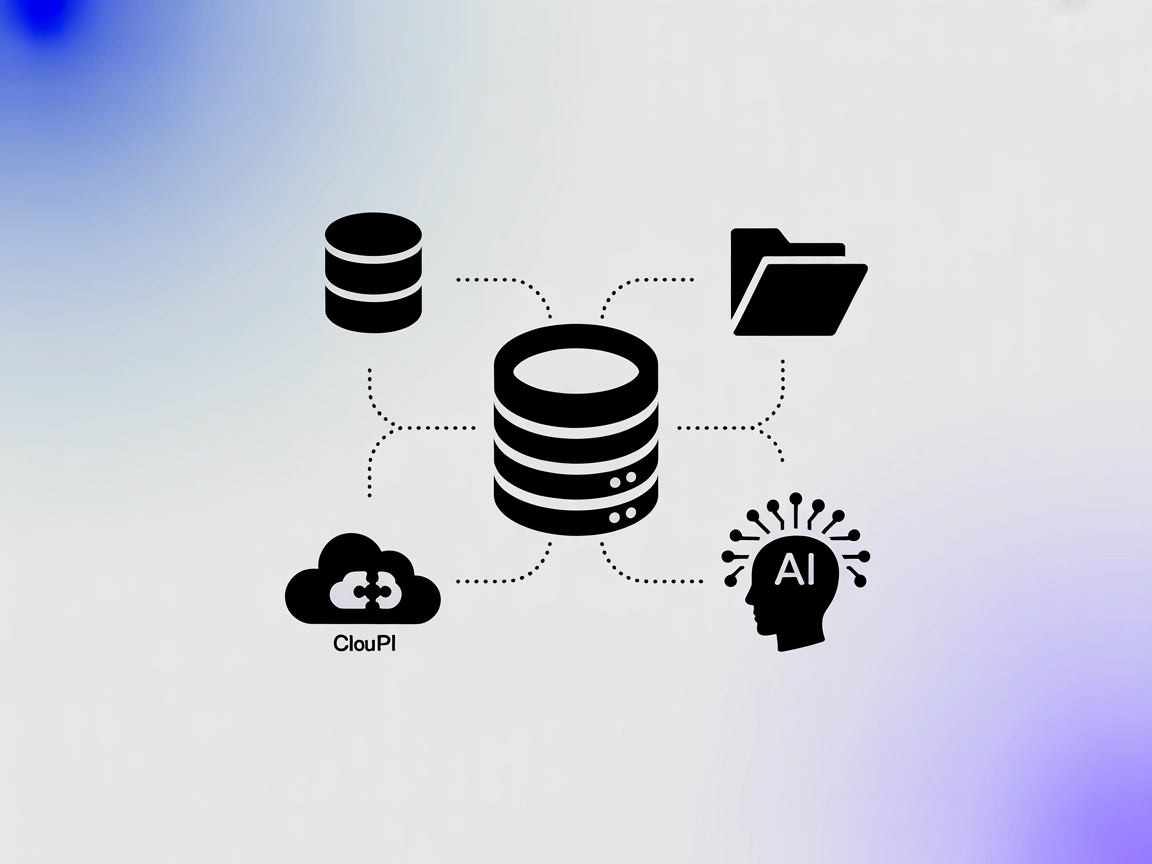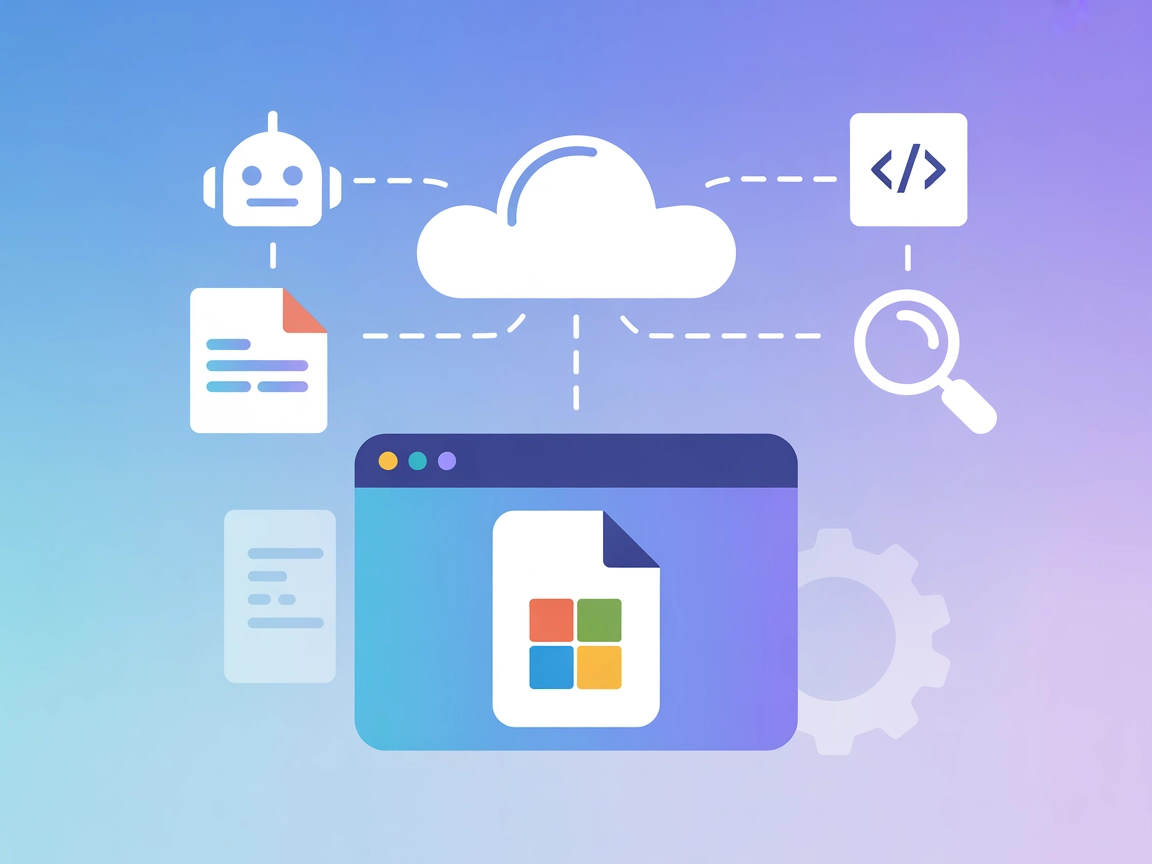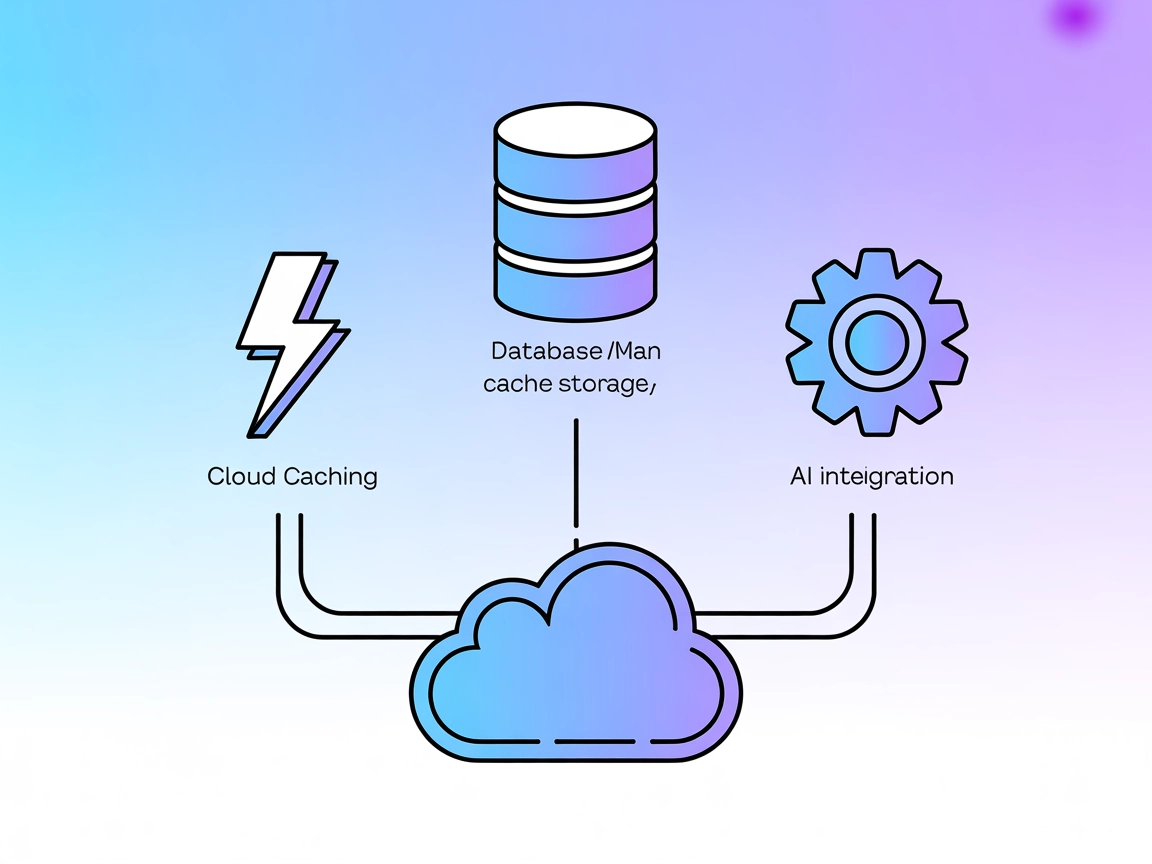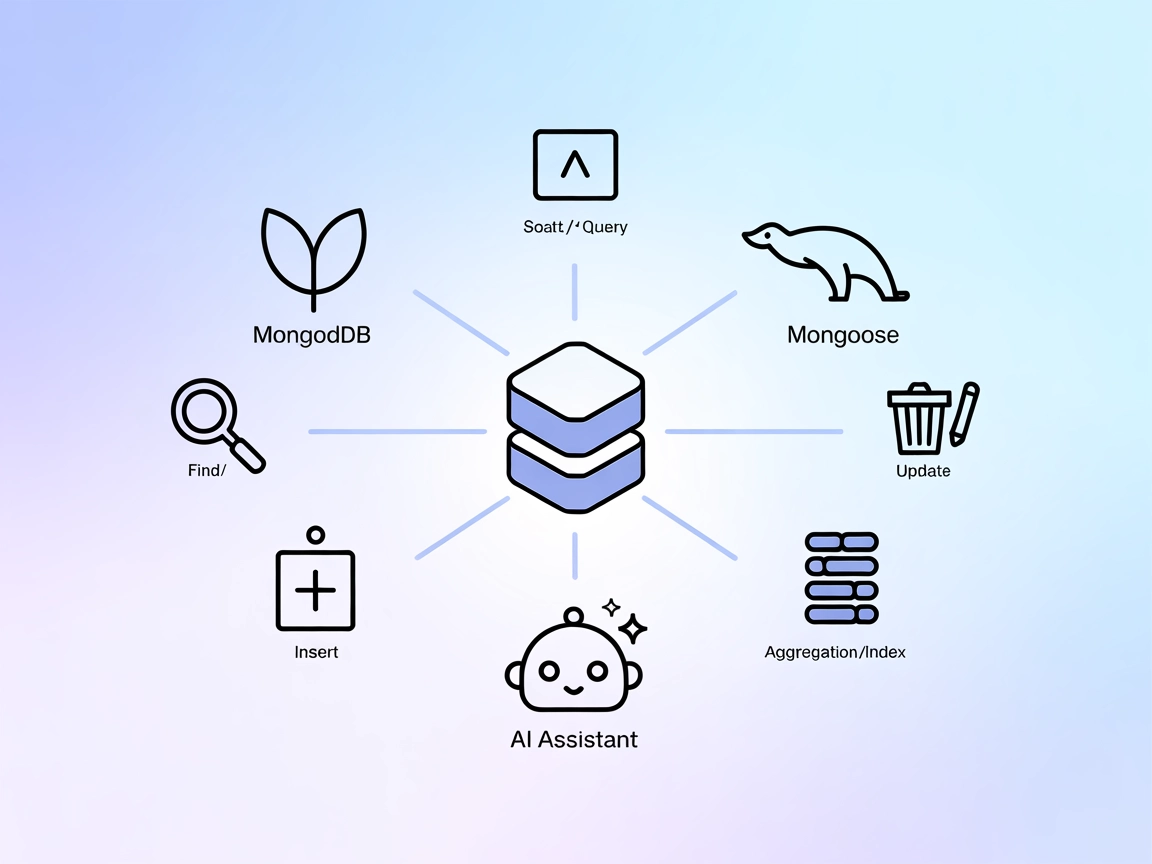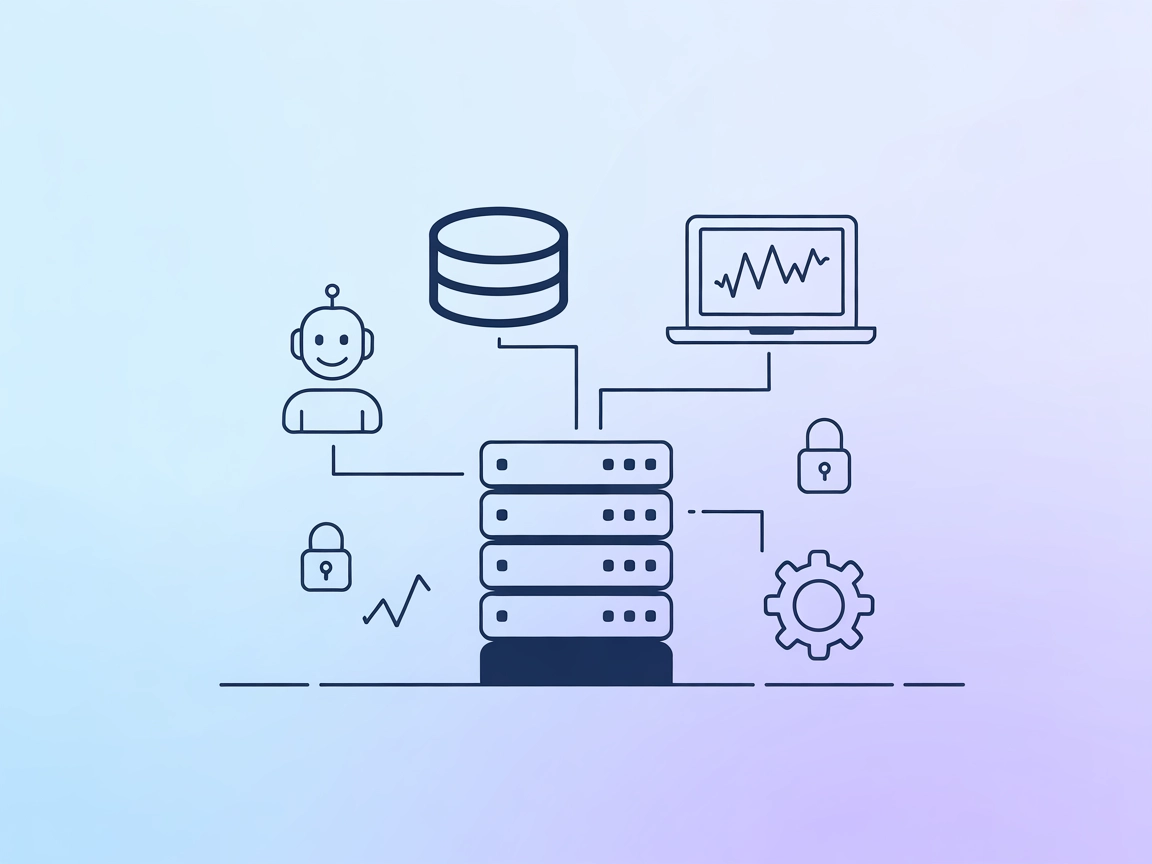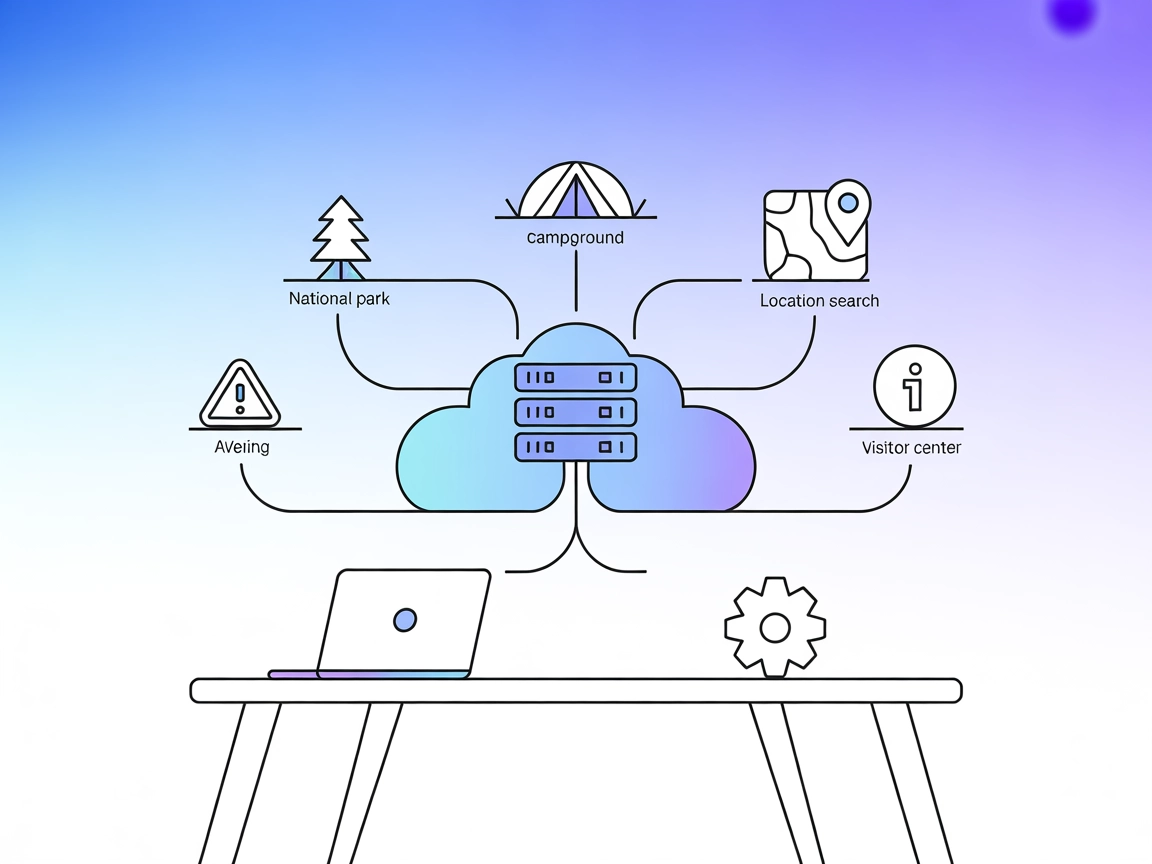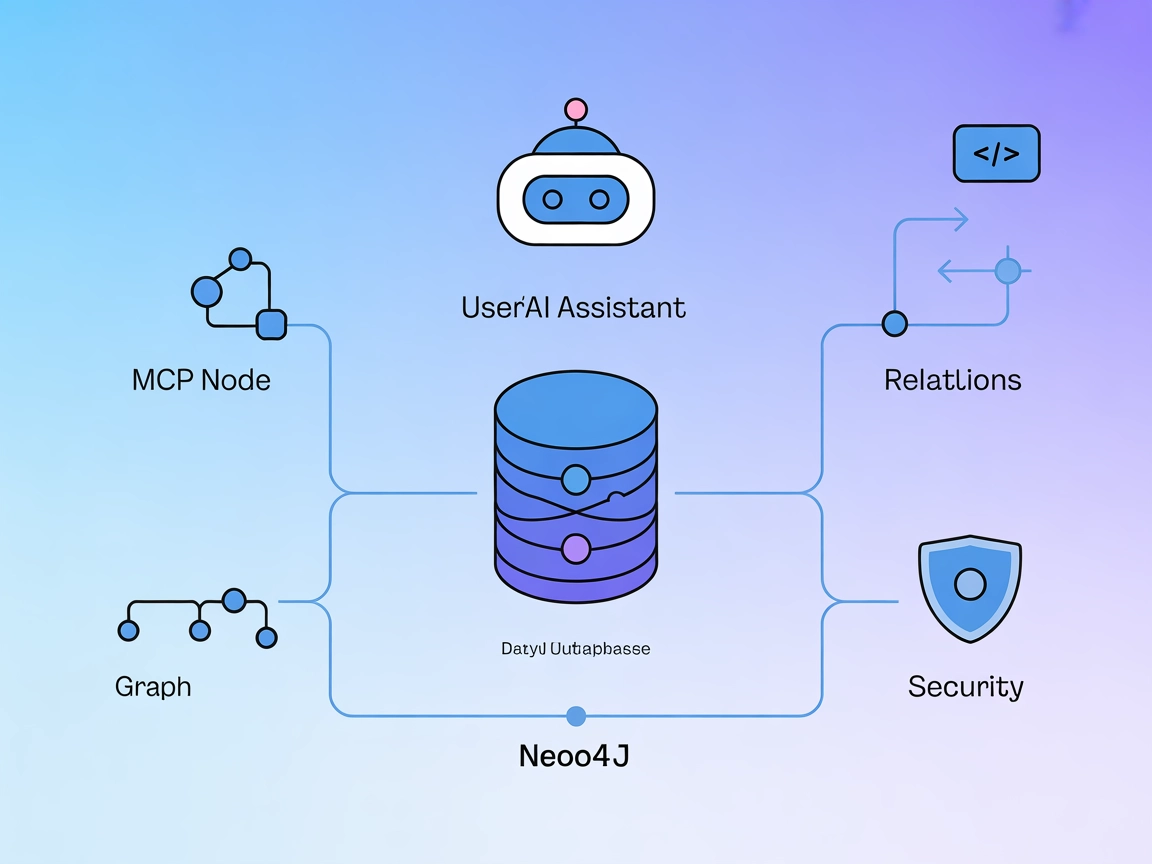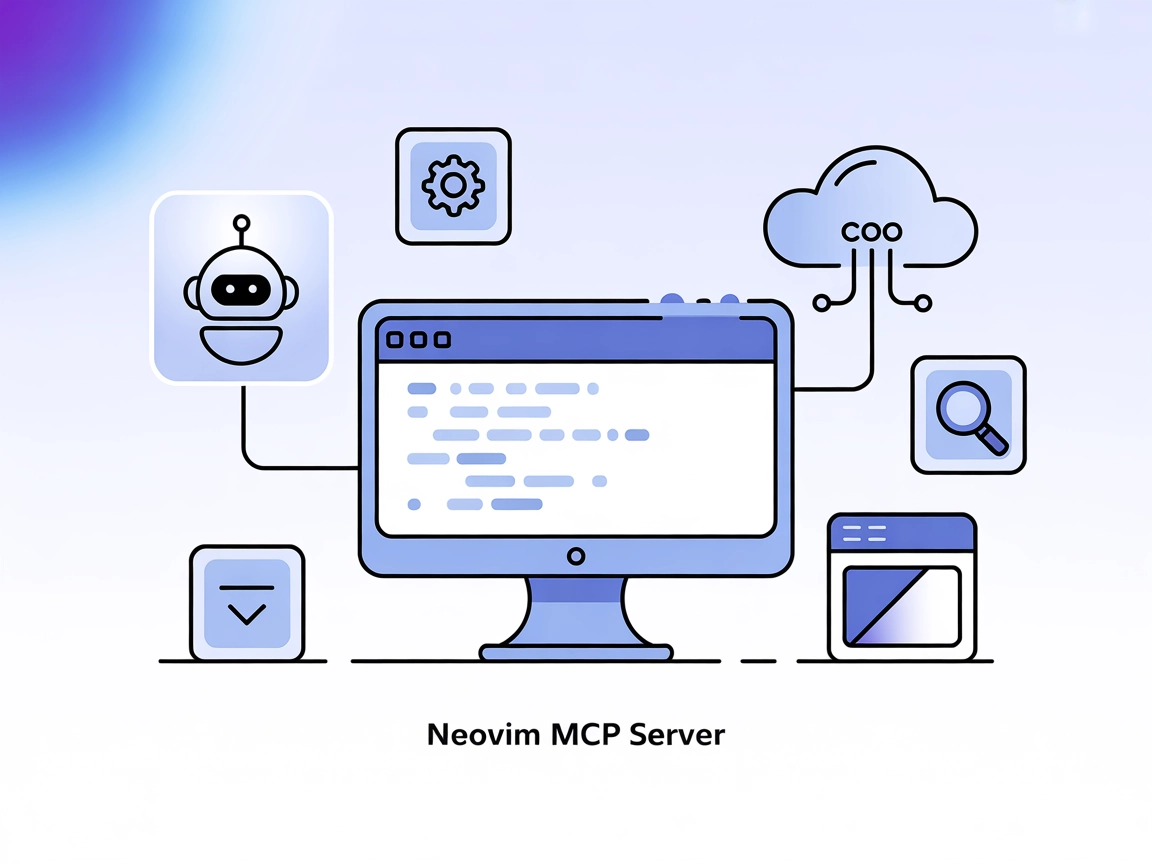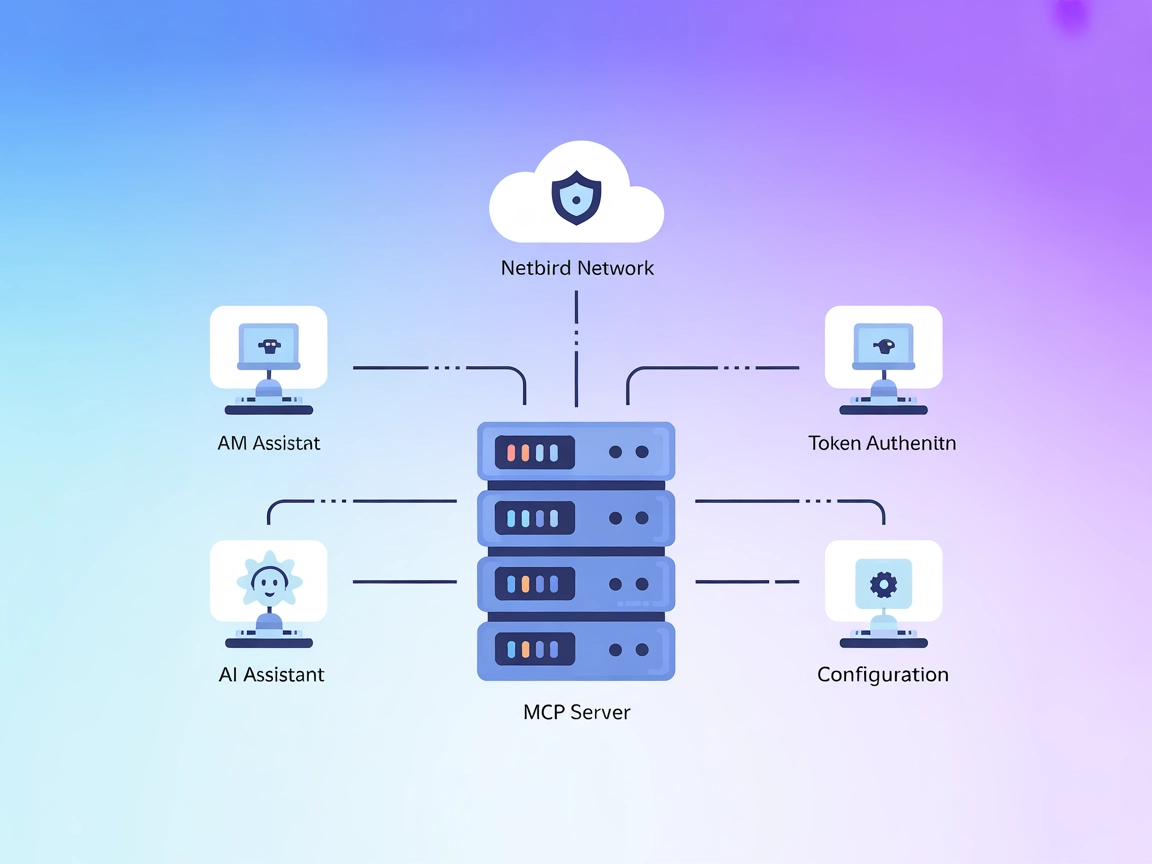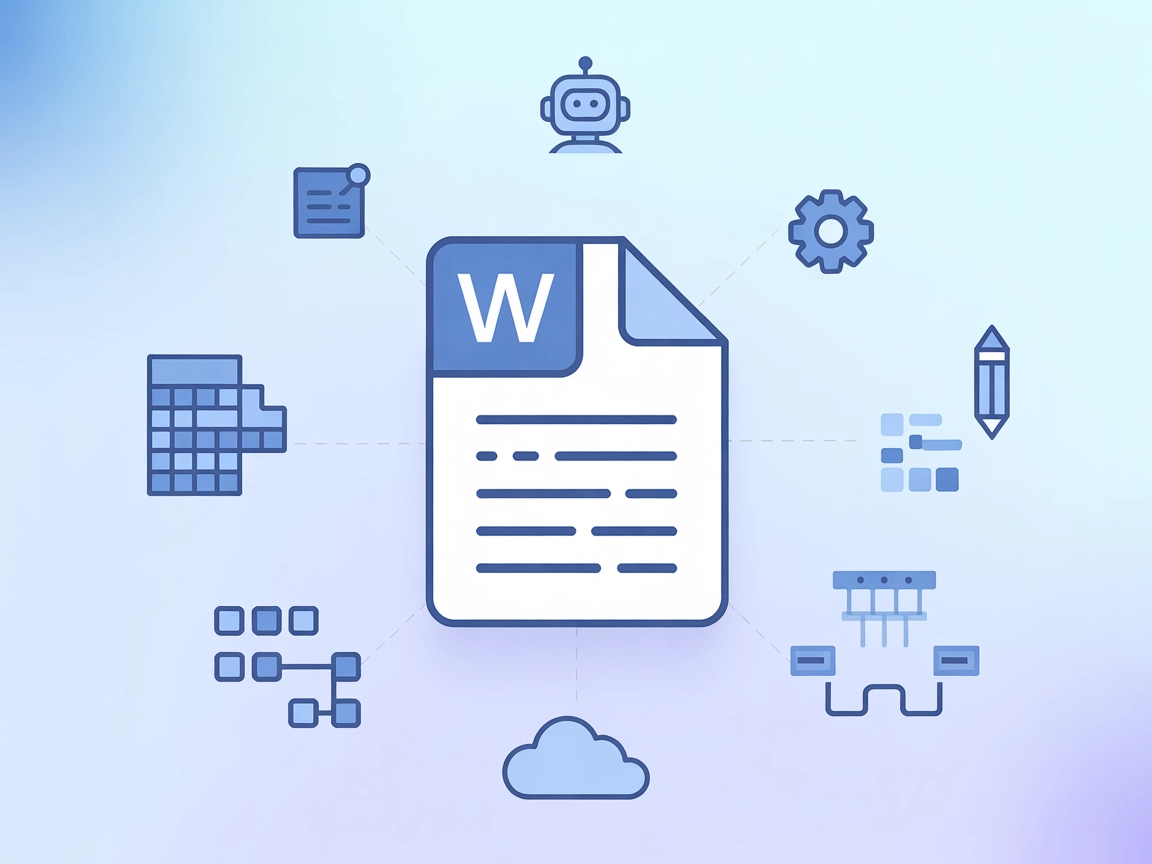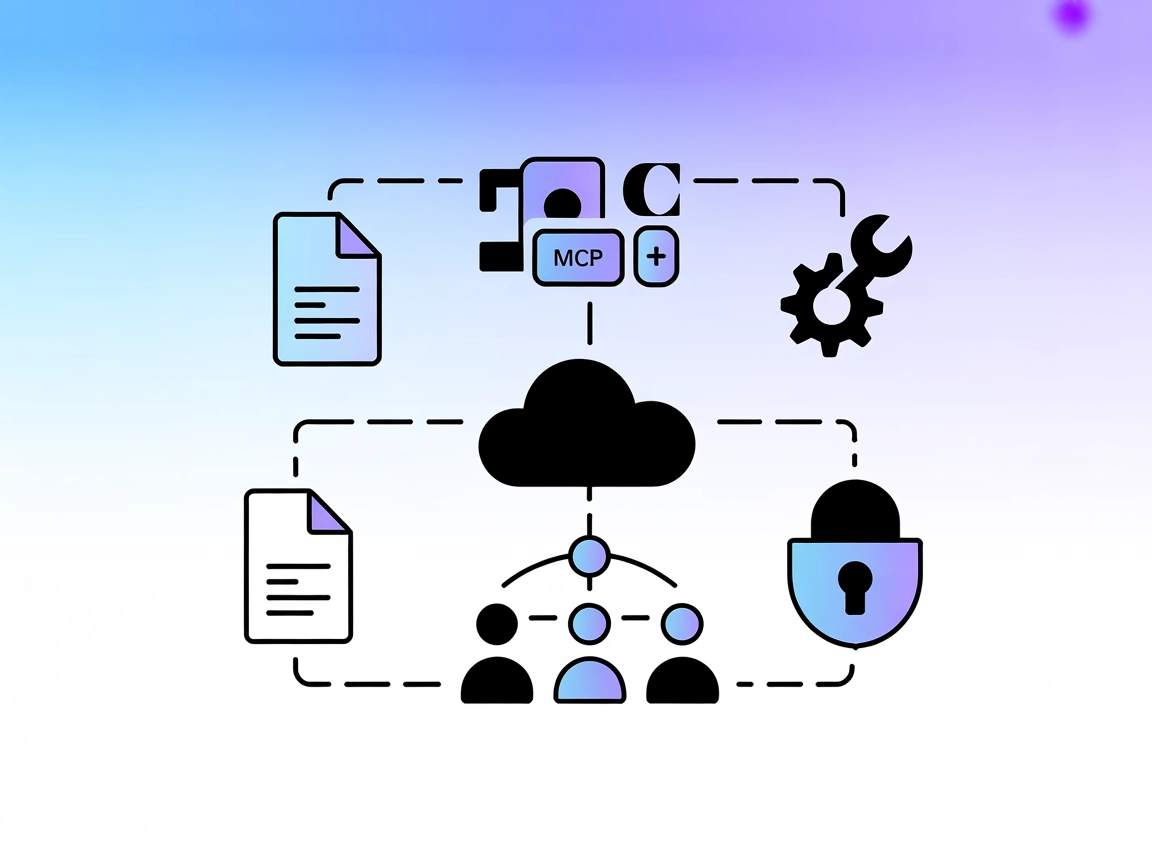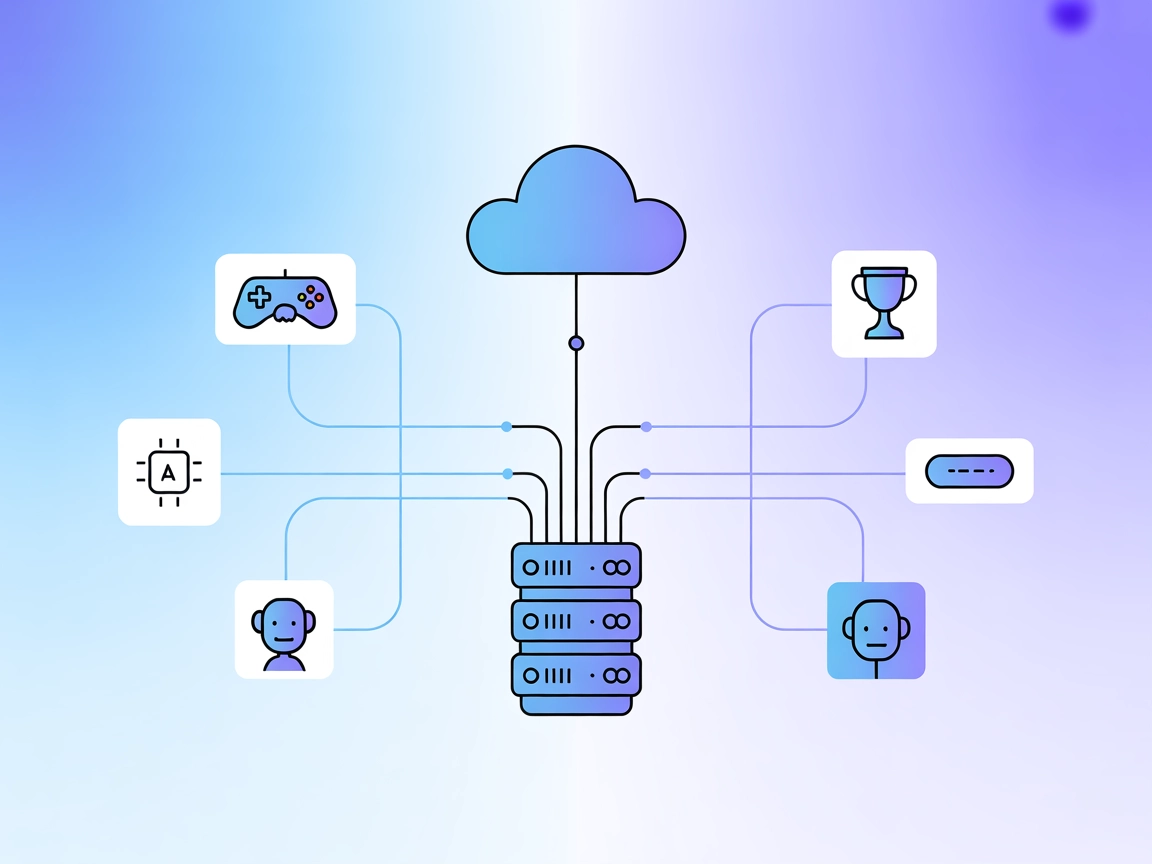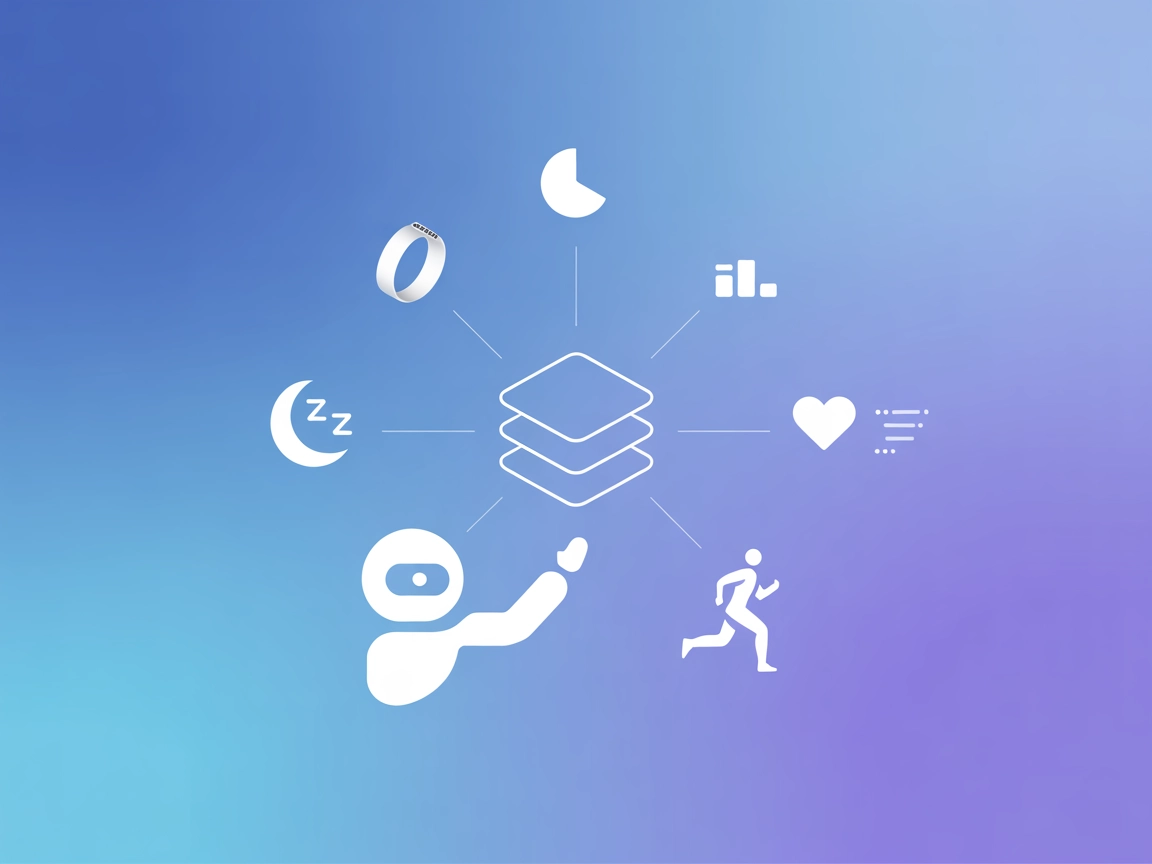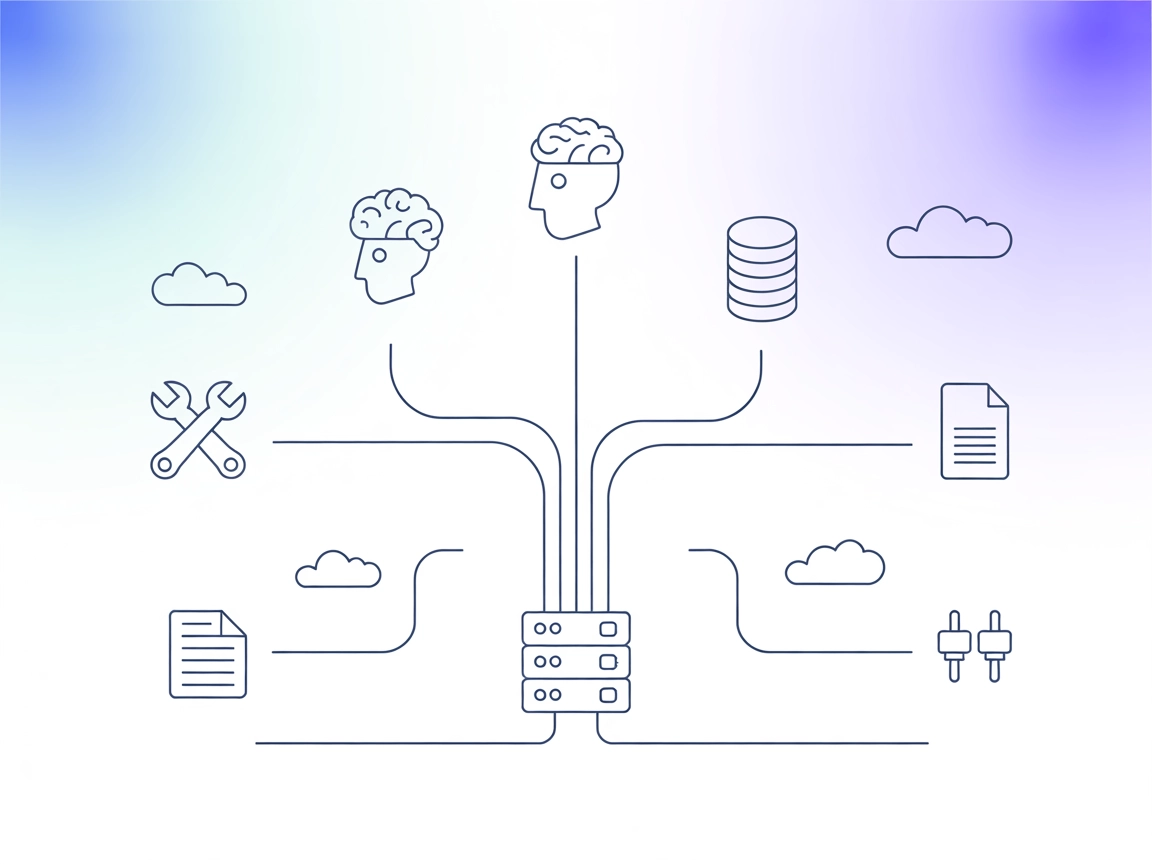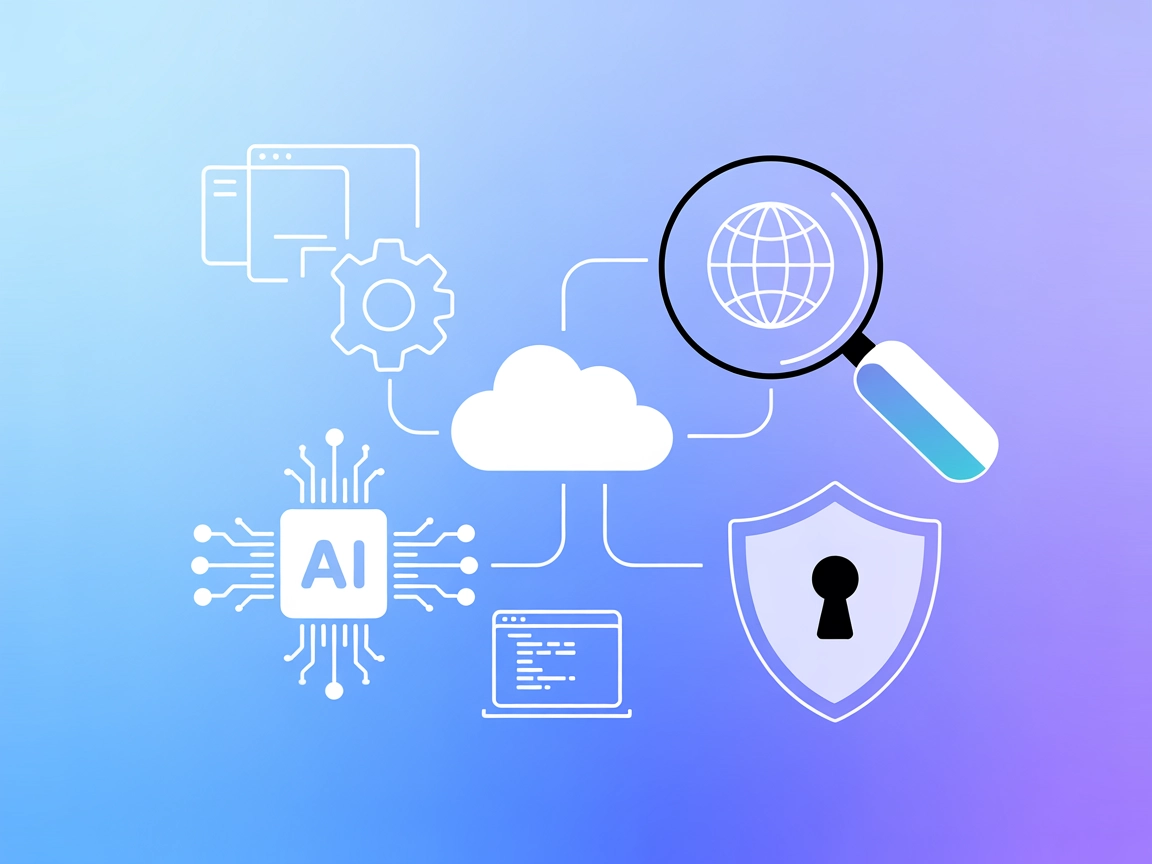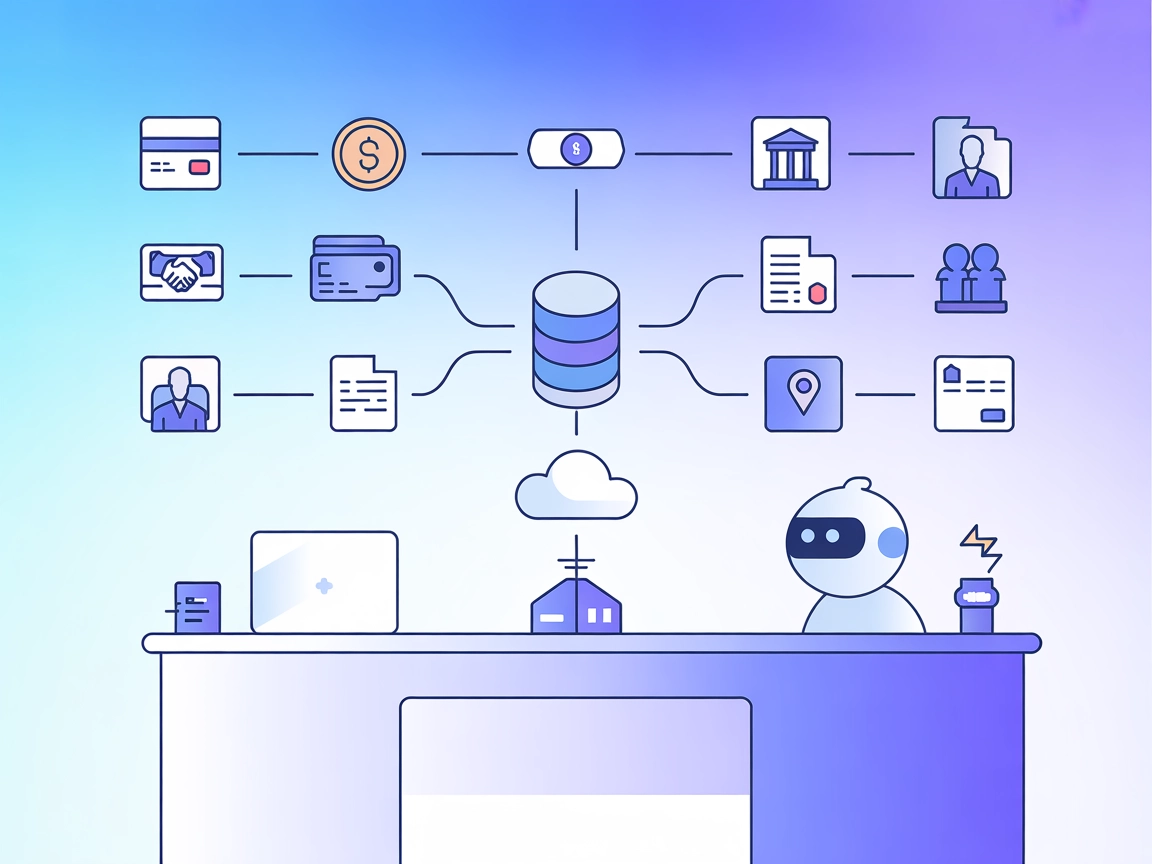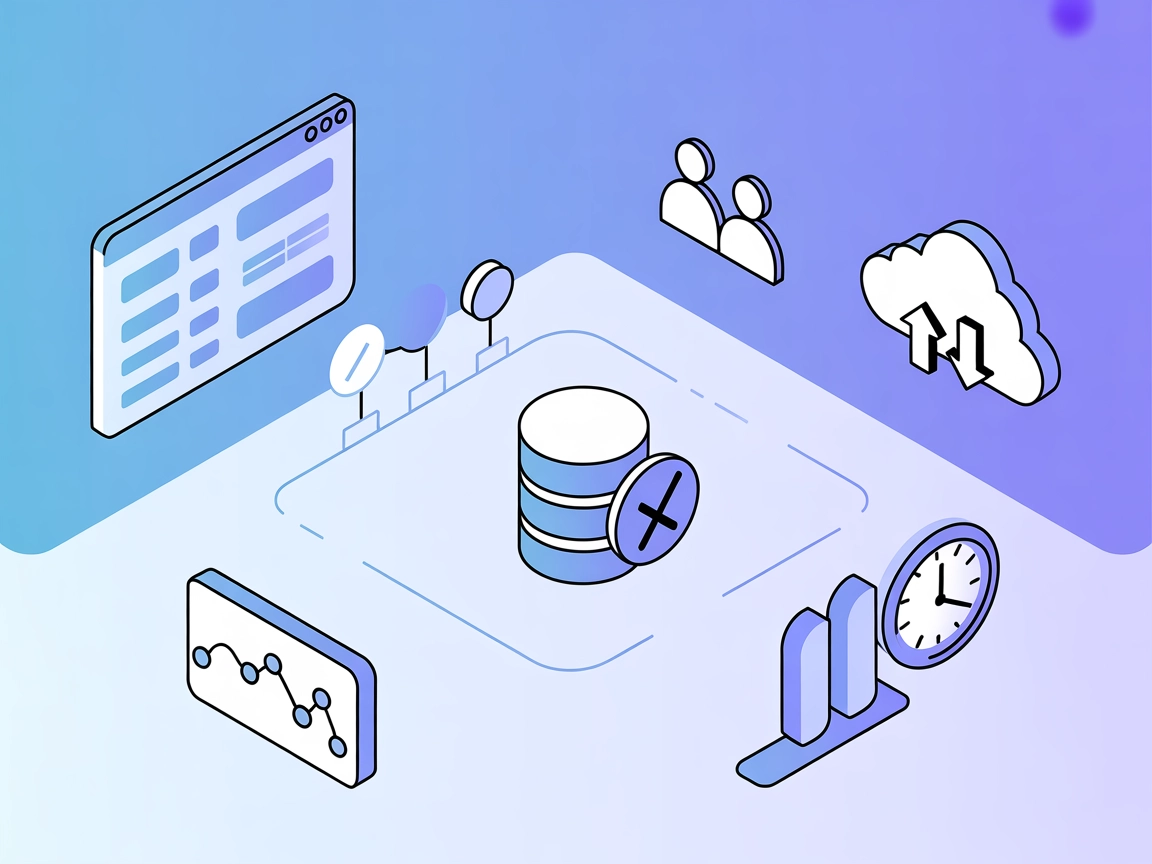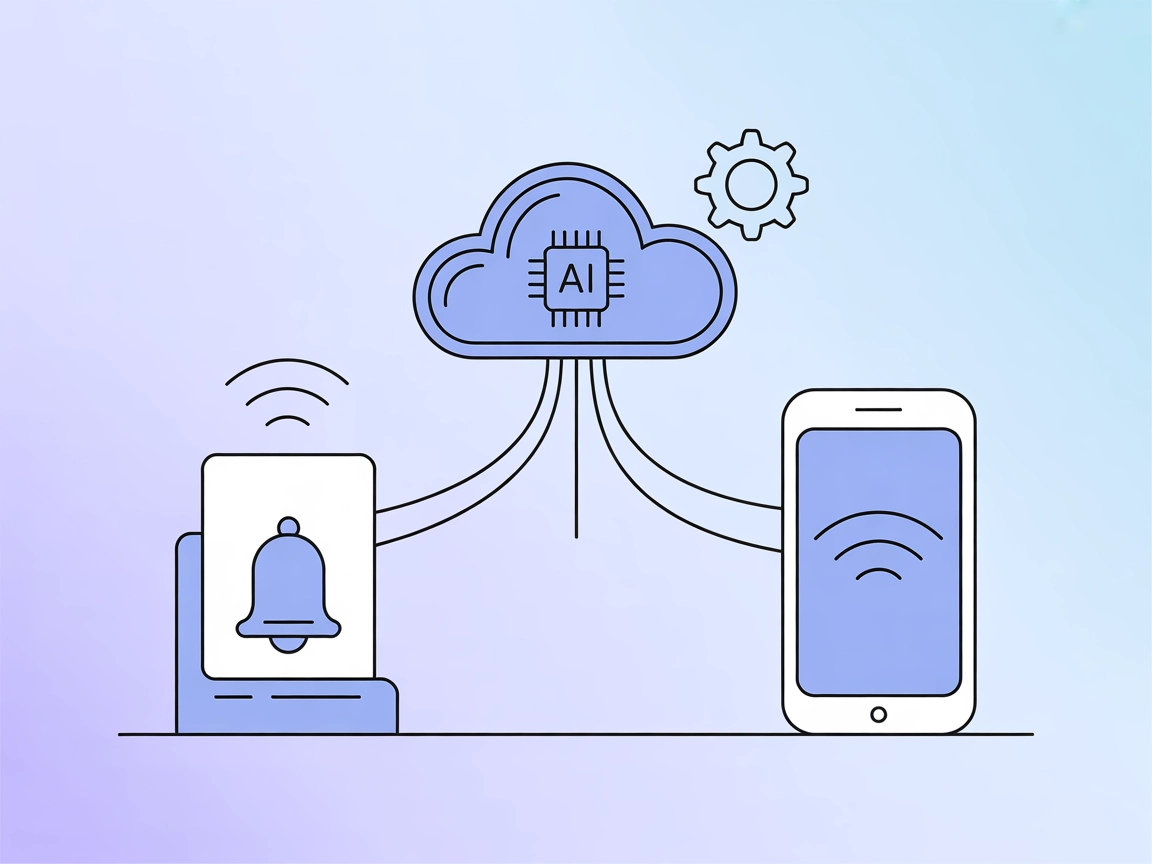
Pushover MCP Server
The Pushover MCP Server connects AI agents and workflows to the Pushover notification platform, enabling real-time, programmable push notifications for alerts, ...
The Pushover MCP Server connects AI agents and workflows to the Pushover notification platform, enabling real-time, programmable push notifications for alerts, ...
The Remote MacOs Use MCP Server enables AI agents to securely automate, control, and manage remote macOS systems without extra software. It bridges AI assistant...
FlowHunt's Replicate MCP Server connector allows seamless access to Replicate's vast AI model hub, enabling developers to search, explore, and run machine learn...
The SingleStore MCP Server allows seamless natural language interaction with SingleStore databases and services via AI assistants. Integrate, manage, and monito...
The snyk-ls MCP Server bridges AI assistants and development workflows with Snyk’s security tools, enabling code vulnerability scanning, security findings manag...
The Starknet MCP Server connects large language models (LLMs) to the Starknet blockchain, enabling AI assistants to query, analyze, and manage blockchain data a...
The Unleash MCP Server bridges AI assistants and LLM applications to the Unleash Feature Toggle system, enabling automated feature flag management, project disc...
WayStation MCP Server is a universal remote Model Context Protocol (MCP) server that connects AI assistants like Claude and ChatGPT to productivity tools such a...
The Weather MCP Server connects FlowHunt and AI assistants to rich, real-time weather data, forecasts, air quality, astronomy, and more via WeatherAPI, streamli...
The XiYan MCP Server enables natural language interaction with databases via advanced text-to-SQL (XiYan-SQL), letting developers and AI assistants query, updat...
The Aiven MCP Server connects FlowHunt AI agents with Aiven's managed cloud services, enabling automated project discovery, service inventory, and real-time clo...
The Amadeus MCP Server integrates the Amadeus Flight Offers Search API into AI assistants and MCP-compatible clients, enabling natural language flight searches ...
The Apple Books MCP Server connects AI assistants with the Apple Books ecosystem, exposing books, collections, annotations, and highlights as structured resourc...
The ArangoDB MCP Server enables seamless interaction between AI agents and the ArangoDB database, supporting core database operations like querying, insertion, ...
The Astra DB MCP Server bridges Large Language Models (LLMs) and Astra DB, enabling secure, automated data querying and management. It empowers AI-driven workfl...
The Atris MCP Server connects the Audius music platform with AI assistants and development tools, enabling advanced music data access, automated content managem...
Connect your AI agents with powerful marketing analytics using the Audiense Insights MCP Server. Seamlessly extract, summarize, and analyze audience intelligenc...
The AWS Resources MCP Server lets AI assistants manage and query AWS resources conversationally using Python and boto3. Integrate powerful AWS automation and ma...
The Bankless Onchain MCP Server enables structured, programmatic access to blockchain data via the Bankless API, supporting AI assistants and developer tools wi...
The BigQuery MCP Server enables secure, read-only access to BigQuery datasets for Large Language Models (LLMs), allowing AI agents and users to explore and anal...
The Bing Search MCP Server integrates Microsoft Bing Search API with FlowHunt and other AI clients, enabling real-time web, news, and image search capabilities ...
BlenderMCP bridges Blender with AI assistants like Claude, enabling automated, AI-driven 3D modeling, scene creation, and asset management through the Model Con...
The Box MCP Server enables seamless integration of FlowHunt with Box, allowing AI-powered workflows to search, analyze, manage, and automate document operations...
The browser-use MCP Server empowers AI agents to control web browsers programmatically using the browser-use library. It enables automated browsing, data extrac...
The BuiltWith MCP Server enables AI agents to analyze and identify the technology stacks behind any website by bridging natural language queries with the BuiltW...
The Chronulus MCP Server acts as middleware connecting AI agents to Chronulus forecasting models and external services, enabling seamless real-time prediction, ...
The Coda MCP Server provides a standardized way for AI assistants to interact with Coda’s platform, enabling document queries, workflow automation, and unified ...
The Contentful MCP Server bridges AI assistants with Contentful’s Management API, enabling seamless content operations—such as querying, updating, and managing ...
The Cursor MCP Installer is a streamlined Model Context Protocol (MCP) server for the Cursor IDE. It automates the installation and configuration of other MCP s...
The Cursor Talk To Figma MCP Server bridges Cursor AI environments and Figma, enabling AI-driven automation, analysis, and modification of design files via stan...
Dappier MCP Server connects AI assistants to real-time web search and premium data from trusted media brands, enabling AI agents to retrieve, analyze, and integ...
The Dart MCP Server connects AI assistants to Dart's project management platform, enabling automated task creation, document management, and project summarizati...
The Deep Research MCP Server enables comprehensive, AI-powered research workflows by automating question elaboration, subquestion generation, web search, conten...
The DeepSeek MCP Server acts as a secure proxy, connecting DeepSeek’s advanced language models to MCP-compatible applications like Claude Desktop or FlowHunt, e...
The DeepSeek MCP Server integrates DeepSeek's advanced language models with MCP-compatible applications, providing secure, anonymized API access and enabling sc...
The Deepseek R1 MCP Server enables seamless integration of DeepSeek’s advanced language models, such as Deepseek R1 and V3, into Claude Desktop and other suppor...
The Defang MCP Server bridges AI assistants with external data sources, APIs, and services, enabling standardized, context-aware workflows for developers buildi...
The E2B MCP Server empowers AI assistants like Claude to securely execute code in isolated sandboxes, automate developer workflows, and enable dynamic real-worl...
The EduBase MCP Server bridges AI assistants and the EduBase e-learning platform, enabling LLMs to automate content creation, exam management, and analytics thr...
The edwin MCP Server bridges AI assistants and external data sources, APIs, and services, enabling smarter, context-aware agents in FlowHunt by exposing resourc...
The Exa MCP Server enables FlowHunt and AI assistants to access real-time web search via the Exa AI Search API, allowing for up-to-date answers, research, fact-...
The Excel MCP Server enables AI agents to seamlessly create, read, modify, and manage Excel workbooks without Microsoft Excel installed, unlocking automated dat...
The fabric-mcp-server is an MCP server that exposes Fabric patterns as callable tools for AI-driven workflows, enabling integration with Cline and other platfor...
The Facebook Ads MCP Server integrates FlowHunt with the Facebook Ads platform, enabling AI-driven automation and management of ad campaigns, performance analyt...
The Fewsats MCP Server bridges AI assistants and the Fewsats platform, enabling secure wallet access, payment management, and automated purchasing within FlowHu...
The Financial Datasets MCP Server enables seamless access to real-time and historical financial data—including stock prices, statements, and crypto data—integra...
The Fitbit MCP Server enables AI assistants and developers to access, analyze, and automate workflows using Fitbit health and fitness data. Seamlessly connect F...
The git-mcp-go MCP Server enables seamless interaction with Git repositories using Large Language Models (LLMs), allowing AI assistants to automate codebase man...
The GitHub Actions MCP Server empowers AI assistants to manage GitHub Actions workflows, automate CI/CD tasks, analyze workflow runs, and enhance security in so...
Goal Story MCP Server empowers users to achieve their aspirations by transforming goals into engaging narratives. It integrates with AI agents and productivity ...
The Grafbase MCP Server bridges AI assistants and external data sources or APIs, enabling LLMs to access real-time data, automate workflows, and extend capabili...
The Helm Chart CLI MCP Server bridges AI assistants and the Helm package manager for Kubernetes, enabling natural language automation of Helm workflows such as ...
The Hologres MCP Server bridges AI agents and Hologres databases, enabling secure, standardized database operations, metadata inspection, and scalable data anal...
The HubSpot MCP Server connects AI assistants directly to HubSpot CRM, enabling seamless access to contacts, companies, and engagement data. With built-in vecto...
The Human-In-the-Loop MCP Server for FlowHunt enables seamless integration of human judgment, approval, and input into AI workflows through real-time interactiv...
Integrate the Hunter MCP Server with FlowHunt to enable your AI agents to access powerful B2B data, automate lead generation, verify emails, enrich contact and ...
The iFly-Spark-Agent-MCP Server bridges AI assistants with the iFlytek SparkAgent Platform using the Model Context Protocol (MCP), enabling seamless file upload...
The Integration App MCP Server provides AI assistants with secure, token-based access to a unified ecosystem of APIs, tools, and data sources, enabling powerful...
The interactive-mcp MCP Server enables seamless, human-in-the-loop AI workflows by bridging AI agents with users and external systems. It supports cross-platfor...
The JDBC MCP Server bridges AI assistants and SQL databases using the JDBC protocol, enabling real-time queries, analytics automation, and streamlined database ...
The JetBrains MCP Server connects AI agents with JetBrains IDEs like IntelliJ, PyCharm, WebStorm, and Android Studio, enabling automated workflows, code navigat...
The k8s-multicluster-mcp MCP Server provides seamless, centralized management of multiple Kubernetes clusters via a standardized API, supporting resource operat...
The Kagi MCP Server bridges AI assistants with Kagi's advanced search and summarization tools, empowering LLMs to access real-time, high-quality web data for en...
The kintone MCP Server enables seamless integration between AI assistants and the kintone platform, allowing AI tools to query, update, and interact with kinton...
The Kong Konnect MCP Server integrates AI assistants with Kong Konnect's API Gateway, enabling natural language queries for analytics, configuration, and contro...
The KurrentDB MCP Server enables AI assistants and developers to seamlessly interact with KurrentDB, a stream-based database, by exposing powerful tools for que...
The Lightdash MCP Server bridges AI assistants and Lightdash, a modern business intelligence platform, enabling seamless programmatic access to analytics projec...
The Linear MCP Server connects Linear’s project management platform with AI assistants and LLMs, empowering teams to automate issue management, search, updates,...
Integrate AI assistants with Liveblocks for real-time collaboration. The Liveblocks MCP Server enables AI agents to automate and manage rooms, threads, comments...
The LlamaCloud MCP Server connects AI assistants to multiple managed indexes on LlamaCloud, enabling enterprise-scale document retrieval, search, and knowledge ...
The LottieFiles MCP Server empowers AI assistants and developers to programmatically search, retrieve, and interact with Lottie animations, streamlining integra...
The Magic Meal Kits MCP Server acts as a secure bridge between AI assistants and the Magic Meal Kits API, enabling programmatic health checks, server version qu...
The MCP Database Server enables secure, programmatic access to popular databases like SQLite, SQL Server, PostgreSQL, and MySQL for AI assistants and automation...
The mcp-google-search MCP Server bridges AI assistants and the web, enabling real-time search and content extraction using the Google Custom Search API. It empo...
The mcp-local-rag MCP Server enables privacy-respecting, local Retrieval-Augmented Generation (RAG) web search for LLMs. It allows AI assistants to access, embe...
The mcp-proxy MCP Server bridges Streamable HTTP and stdio MCP transports, enabling seamless integration between AI assistants and diverse Model Context Protoco...
The mcpignore-filesystem MCP Server brings secure, granular control to AI agent file access by supporting `.mcpignore` patterns. Safeguard sensitive data, autom...
The mem0 MCP Server connects AI assistants with structured storage, retrieval, and semantic search for code snippets, documentation, and coding best practices. ...
The Metoro MCP Server bridges AI agents with external data sources, APIs, and services, enabling FlowHunt users to automate workflows, standardize integrations,...
The Microsoft Docs MCP Server provides real-time, authoritative access to Microsoft documentation for AI assistants, IDEs, and development tools. Enhance workfl...
The Momento MCP Server bridges AI assistants with Momento Cache, providing efficient cache operations via MCP tools for real-time data retrieval, cache manageme...
The MongoDB Mongoose MCP Server enables FlowHunt and other AI assistants to interact directly with MongoDB databases, supporting robust data validation, operati...
Integrate real-time and historical financial data into your AI workflows with the Nasdaq Data Link MCP Server. Seamlessly connect AI assistants to the Nasdaq Da...
The National Parks MCP Server bridges AI assistants and developer tools with the U.S. National Park Service API, providing real-time access to park data, alerts...
The Neo4j MCP Server bridges AI assistants with the Neo4j graph database, enabling secure, natural language-driven graph operations, Cypher queries, and automat...
The Neovim MCP Server bridges AI assistants and Neovim, allowing advanced text editing, file navigation, and codebase management directly from your AI-powered w...
Integrate Netbird's network management capabilities into your AI workflows with the Netbird MCP Server. Securely retrieve configuration, status, and network det...
The Obsidian MCP Server bridges AI assistants and Markdown knowledge bases like Obsidian vaults. It enables tools such as Claude Desktop to search, read, and su...
The Office-Word MCP Server bridges AI assistants and Microsoft Word documents, enabling automated document creation, editing, formatting, and content extraction...
The ONLYOFFICE DocSpace MCP Server bridges AI assistants and tools with ONLYOFFICE DocSpace, enabling secure, automated document management, collaboration, and ...
The OP.GG MCP Server provides seamless access to OP.GG gaming data for AI agents via FlowHunt, enabling real-time analytics, player statistics, leaderboards, an...
The OpenWeather MCP Server connects AI assistants to real-time weather data using the OpenWeatherMap API. It enables retrieval of current weather and 5-day fore...
The Oura MCP Server enables AI assistants to securely access, analyze, and visualize health data from Oura Ring, providing structured endpoints for sleep, readi...
The Pagos MCP Server bridges AI assistants with the Pagos API, enabling real-time access to BIN (Bank Identification Number) data for secure and intelligent pay...
The PAIML MCP Agent Toolkit by Pragmatic AI Labs is a zero-configuration MCP server designed to make AI agent workflows more deterministic. It enables seamless ...
Integrate real-time, web-wide research into your AI workflows with the Perplexity Ask MCP Server. This MCP server bridges Perplexity's Sonar API with tools like...
The Placid.app MCP Server bridges AI assistants and creative automation by exposing Placid’s template-based image and video generation API as MCP tools. Enable ...
The Qiniu MCP Server bridges AI assistants and LLM clients with Qiniu Cloud’s storage and multimedia services. It enables automated file management, media proce...
The Ramp MCP Server bridges AI assistants with the Ramp financial data platform, enabling automated workflows, data analysis, and financial process automation t...
The Raygun MCP Server bridges AI assistants and Raygun's robust API, enabling automated error management, deployment tracking, performance monitoring, source ma...

